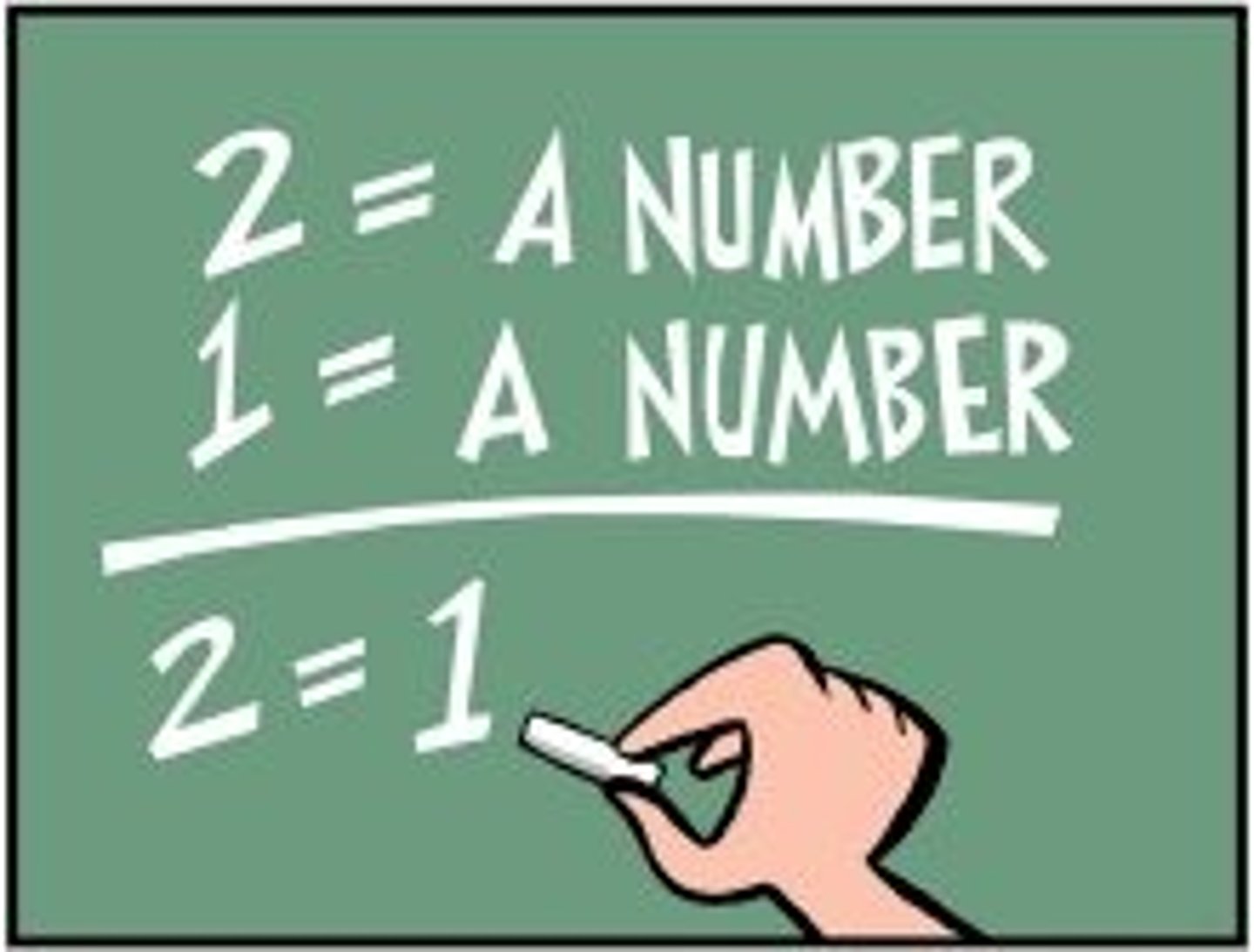Vocab Test 1-8 Review Words Only 2025
1/125
There's no tags or description
Looks like no tags are added yet.
Name | Mastery | Learn | Test | Matching | Spaced |
|---|
No study sessions yet.
126 Terms
analysis
the process of studying the whole by examining its parts

apostrophe
addressing an absent person or personified object or idea
climax
the highest point of interest in a literary work
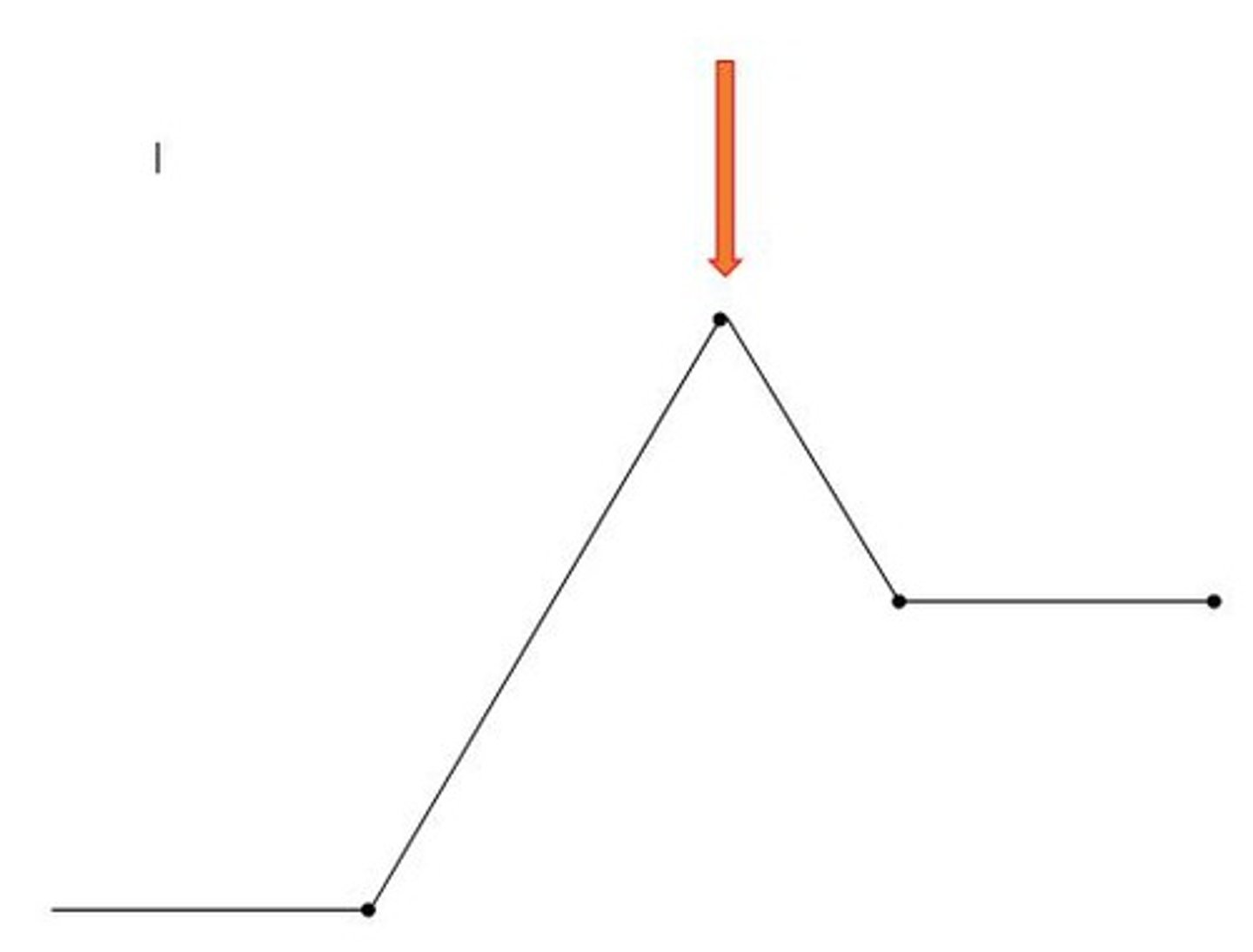
epigram
brief, pointed statement in prose or verse
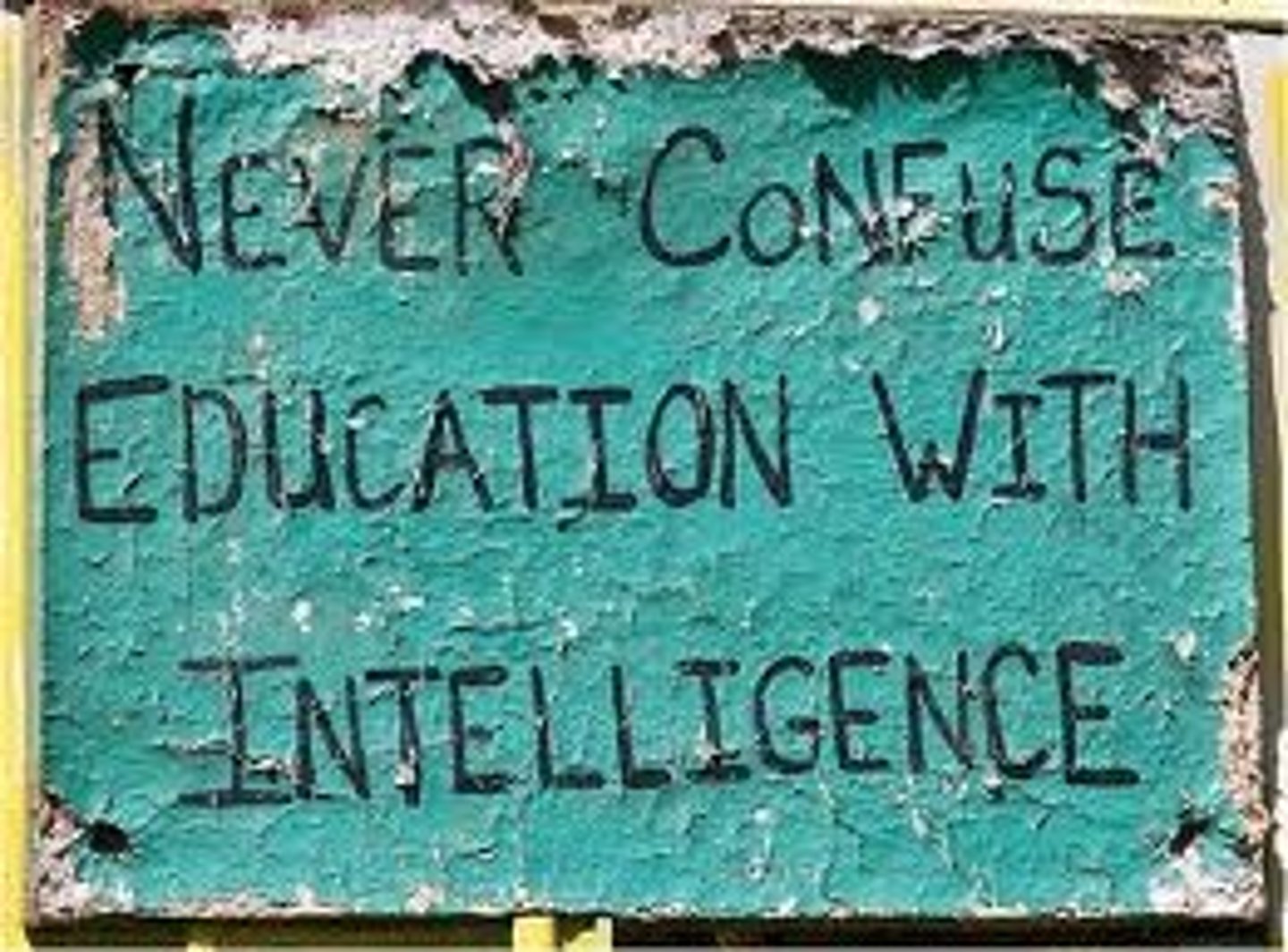
foil
a character who provides contrast to or for another character

frame device
a story within a story

in medias res
"in the middle" when the story begins in the middle of the action

maxim
A concise statement, often offering advice; an adage
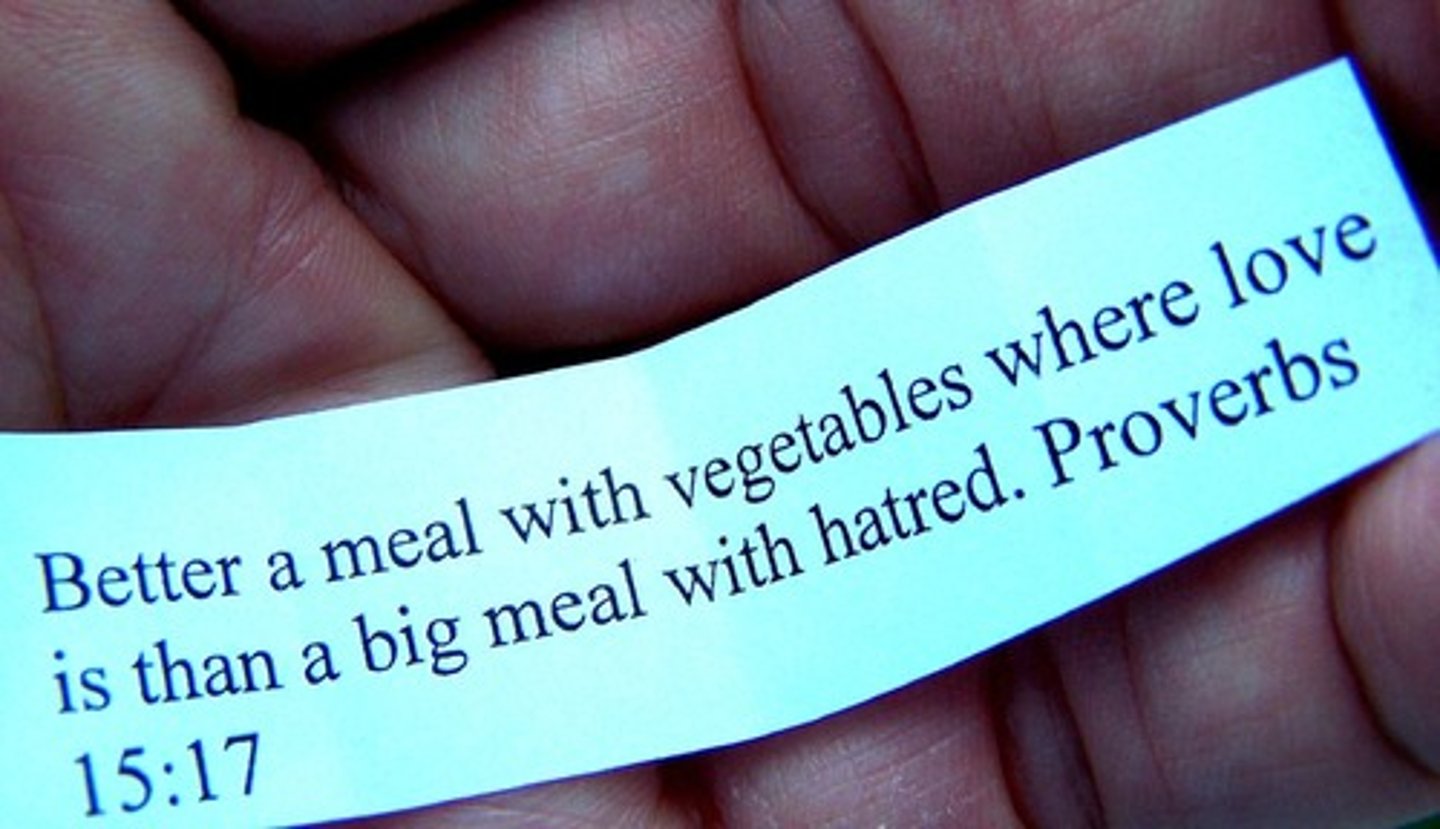
objectivity
freedom from the expression of personal sentiments, attitudes, or emotion

protagonist
The central character in a work of literature

sonnet
a fourteen-line lyric poem, usually written in rhymed iambic pentameter, focused on a single theme
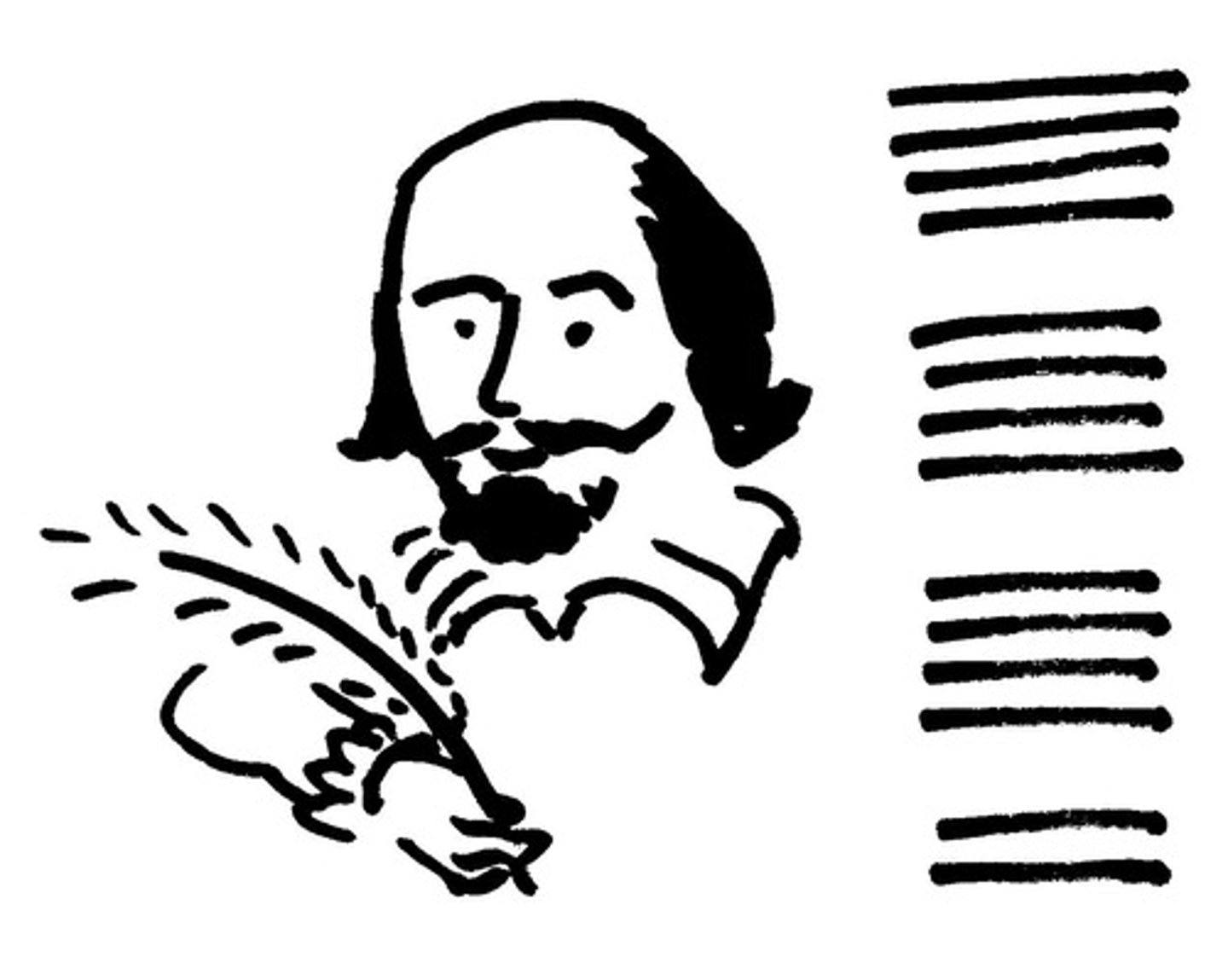
speaker
in a poem, the voice that "talks" to the reader as a narrator does in a story
synechdoche
figurative language that uses a part of a thing to represent the whole. Example: "wheels" for a car, "hired hands" for paid workers
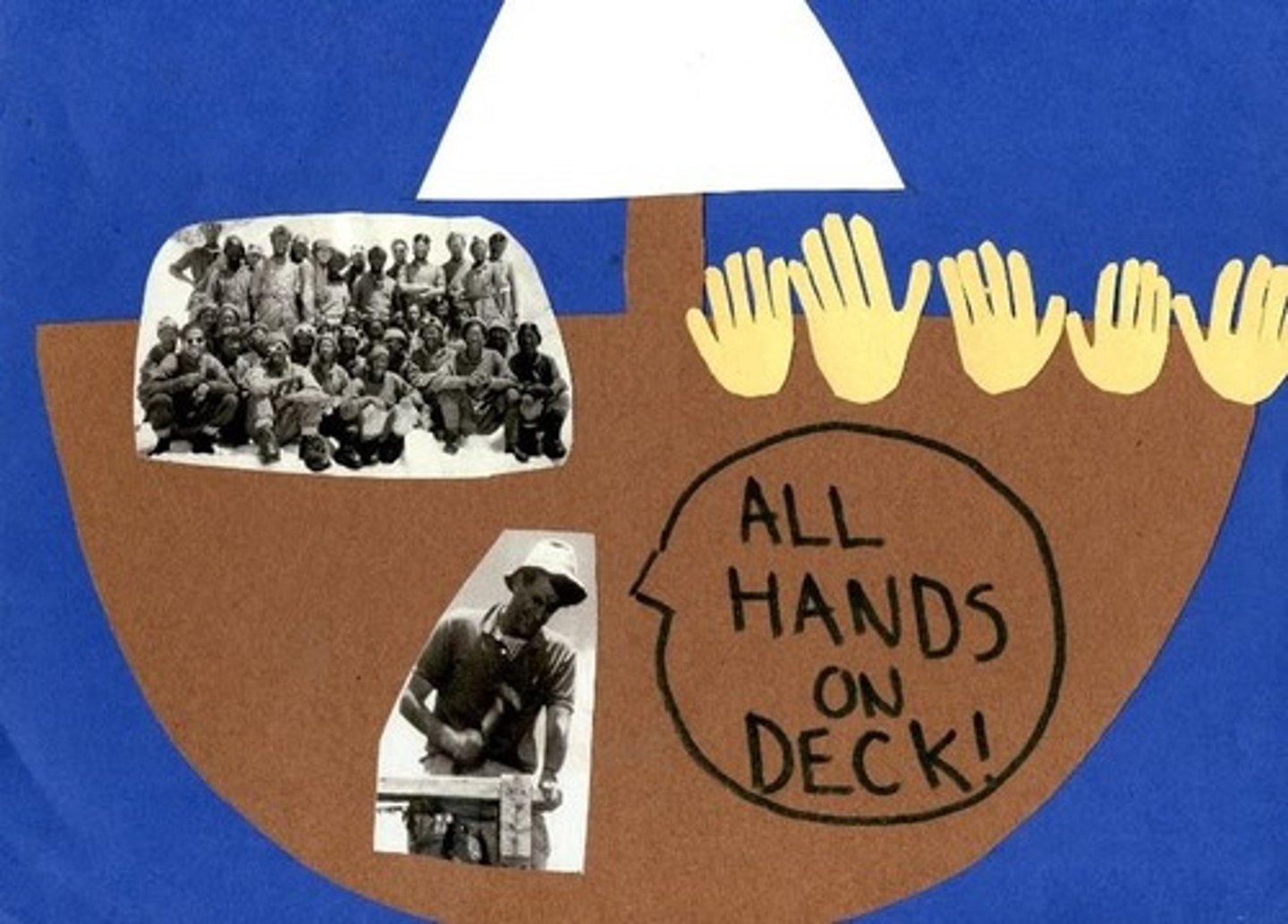
The Enlightenment
A movement in the 18th century that advocated the use of reason in the reappraisal of accepted ideas and social institutions.
analogy
comparison made between two objects, situations, or ideas that are somewhat alike, but unalike in most respects
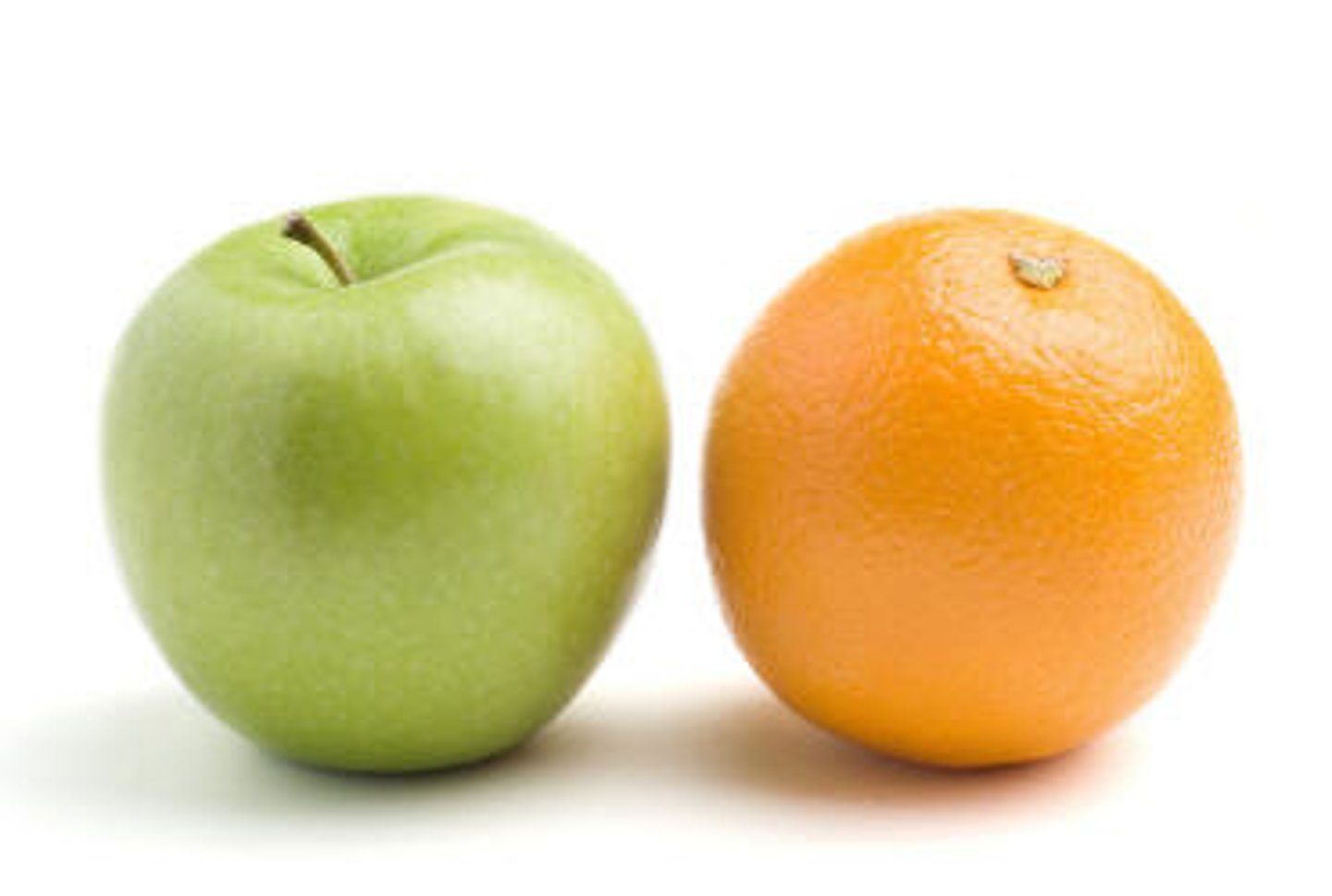
aphorism
concise, pointed truth or observation about life
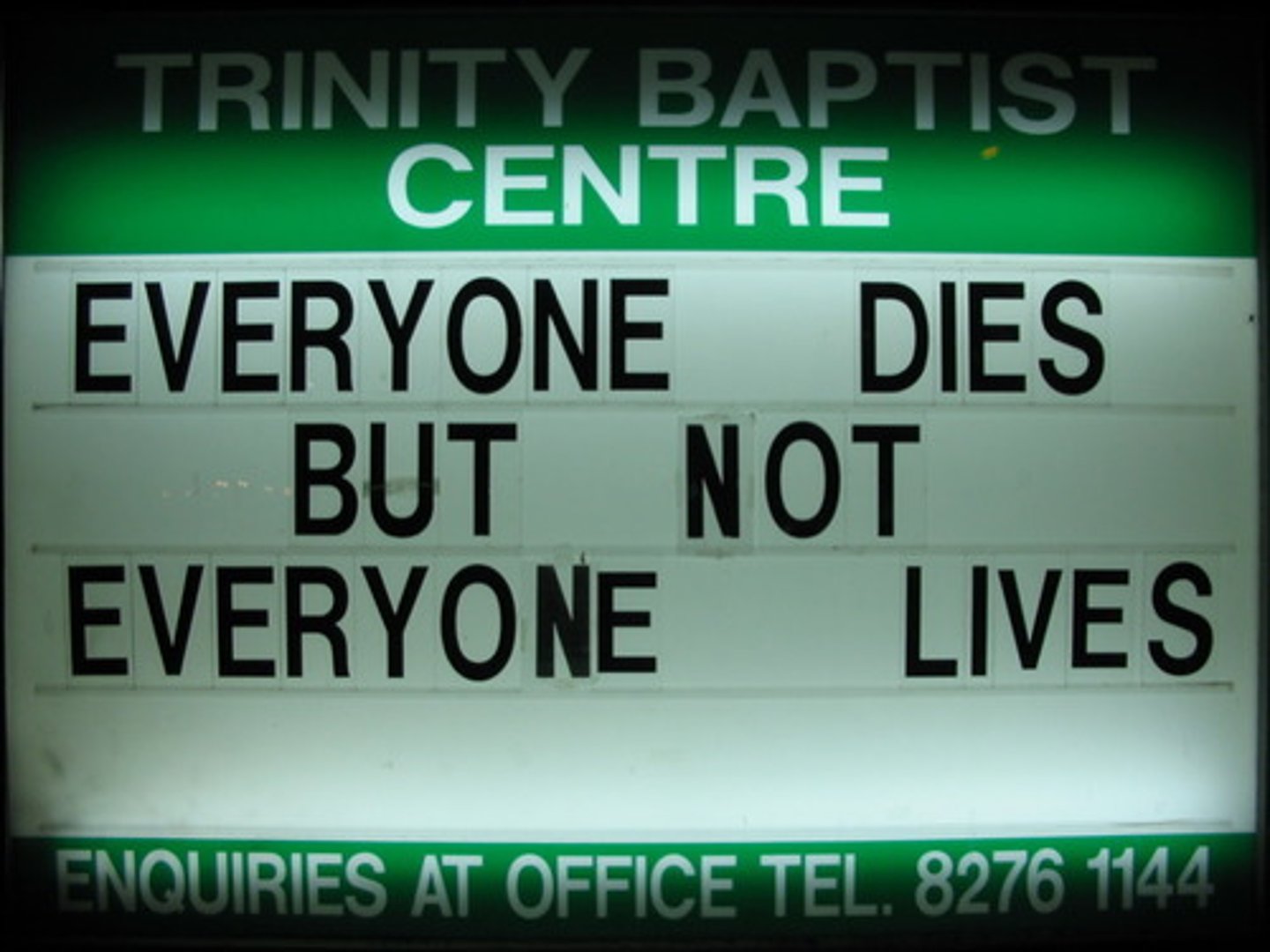
cliché
a trite, overused phrase
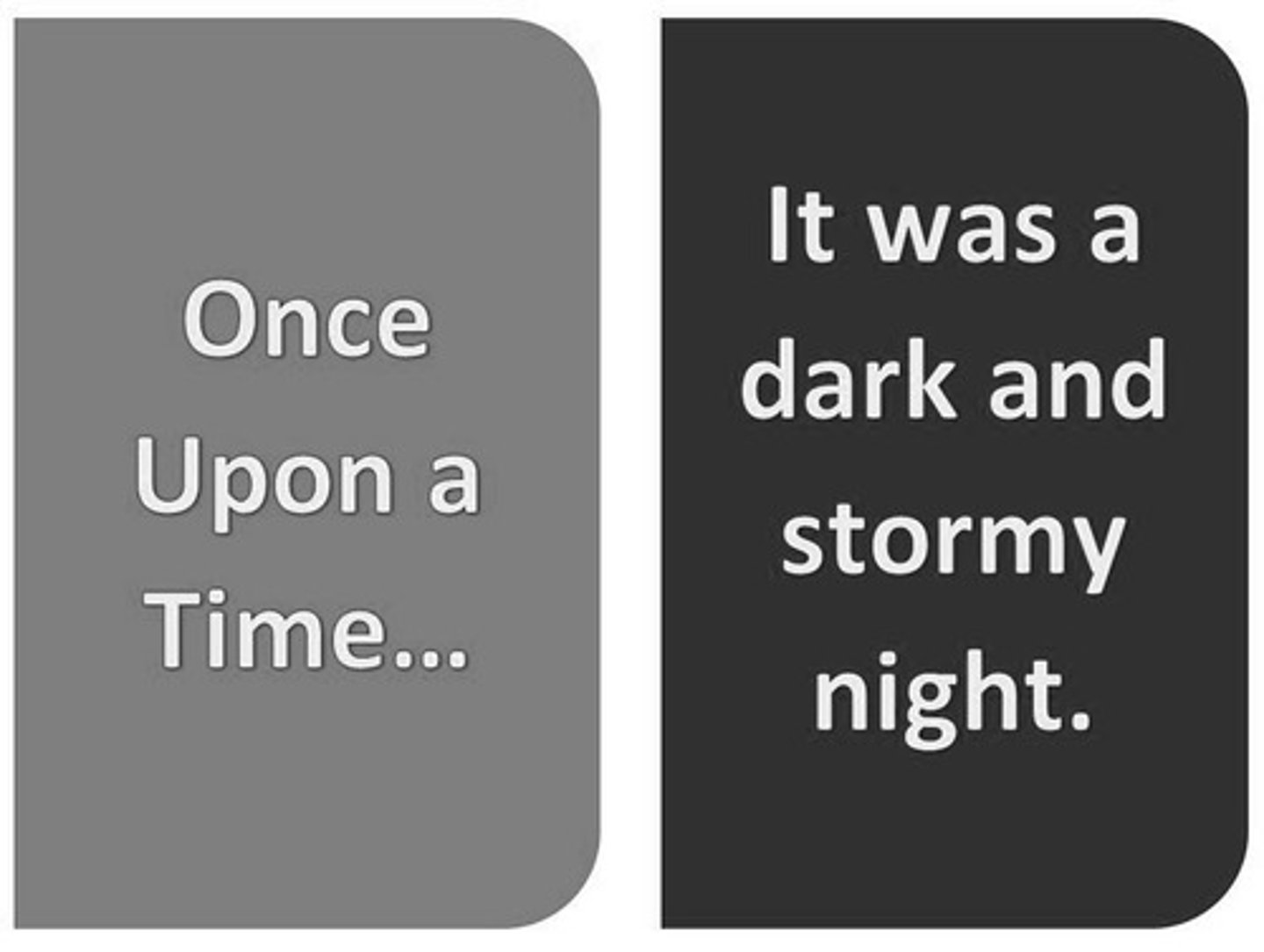
dramatic monologue
poem in which the speaker addresses a silent listener

epic
a long, narrative poem about adventure of gods or a hero
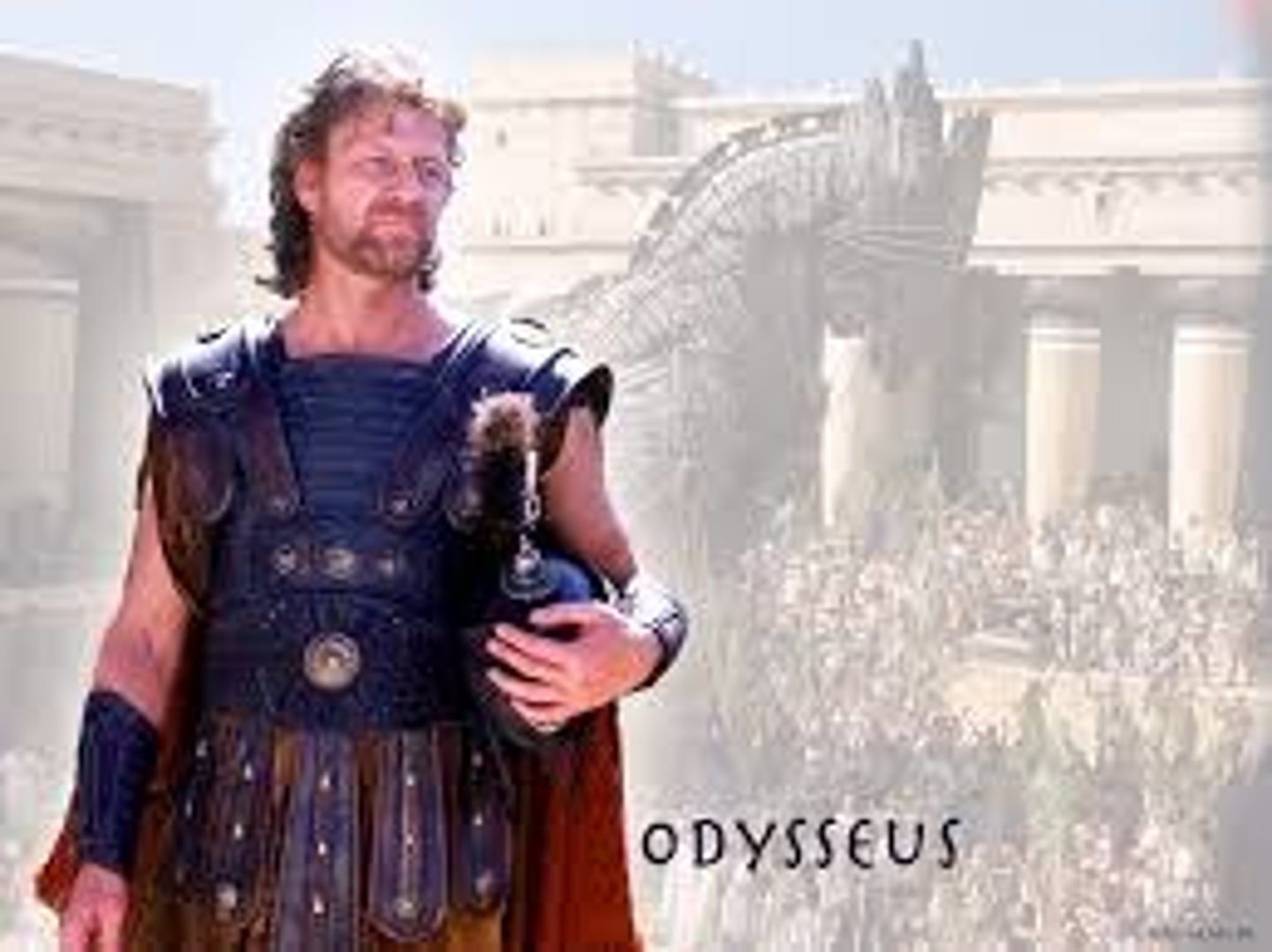
flat character
character with a single quality and does not develop during the course of the story

grotesque
characterized by distortions or incongruities
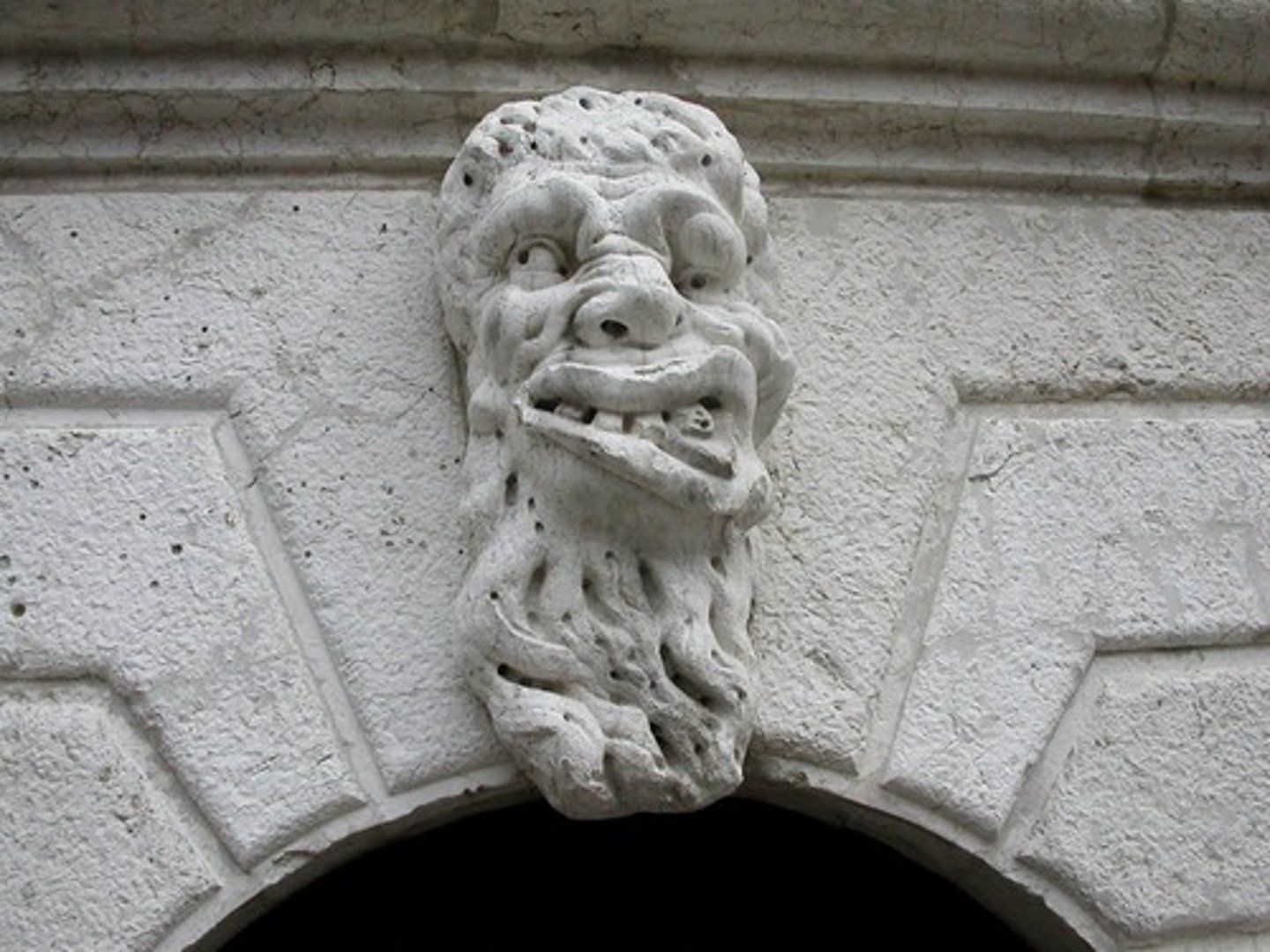
induction
form of argument in which the conclusion is probably but not necessarily true

juxtaposition
two contrasting elements side-by-side

lyric poem
musical verse that expresses the observations and feelings of the speaker
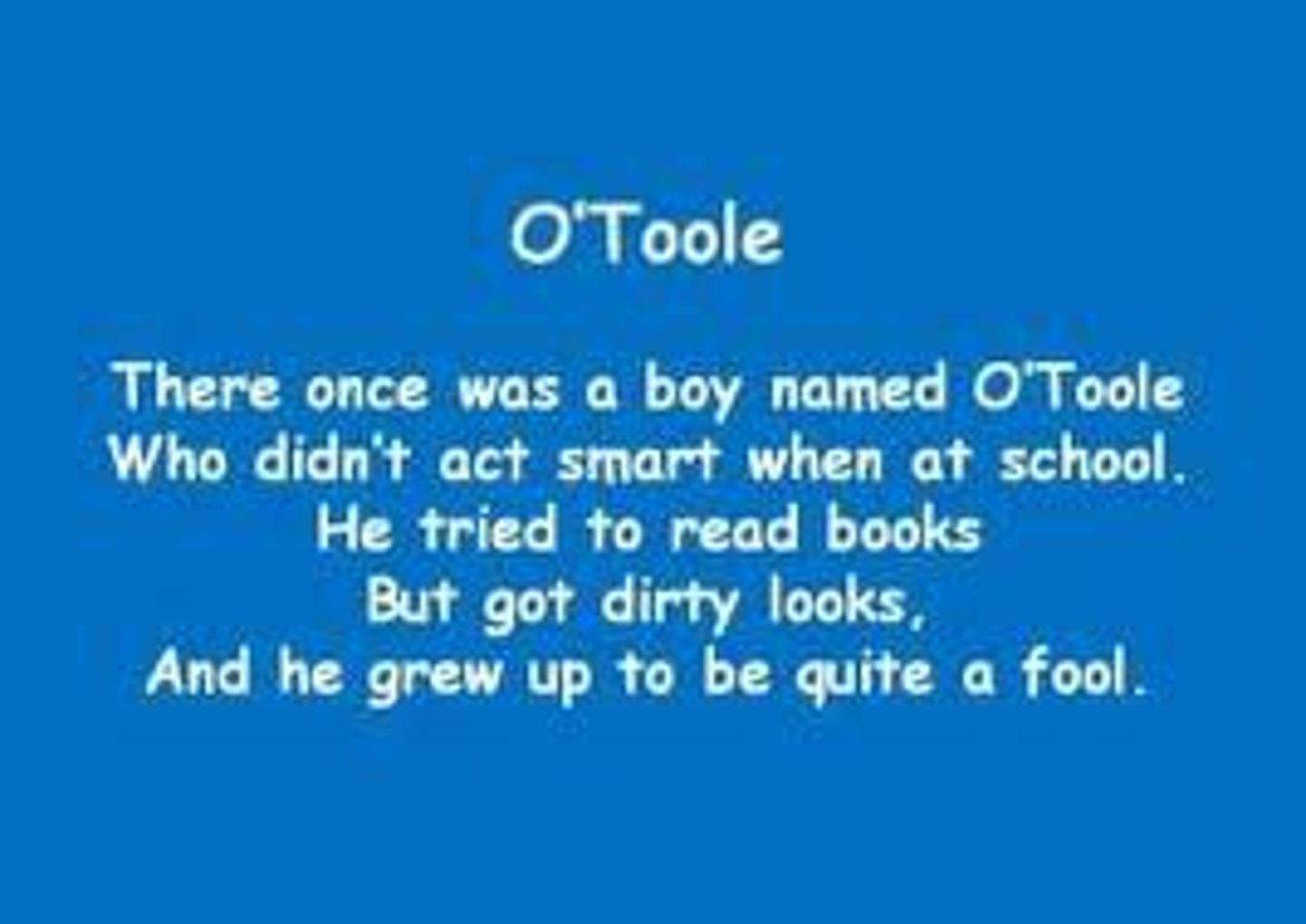
naturalism
writing that demonstrates a deep interest in nature

parody
imitates or mocks another work
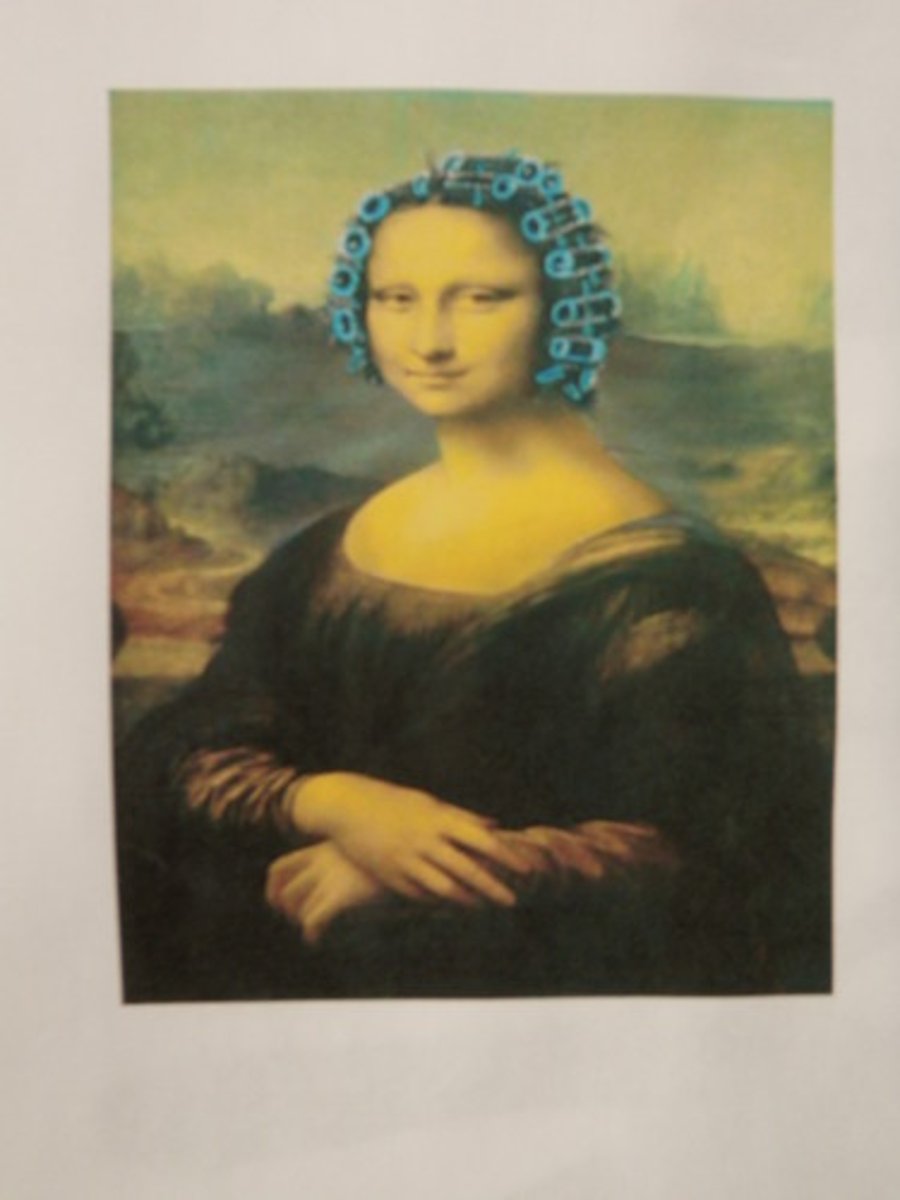
realism
any effort to offer accurate and detailed portrayal of actual life; "true to life"
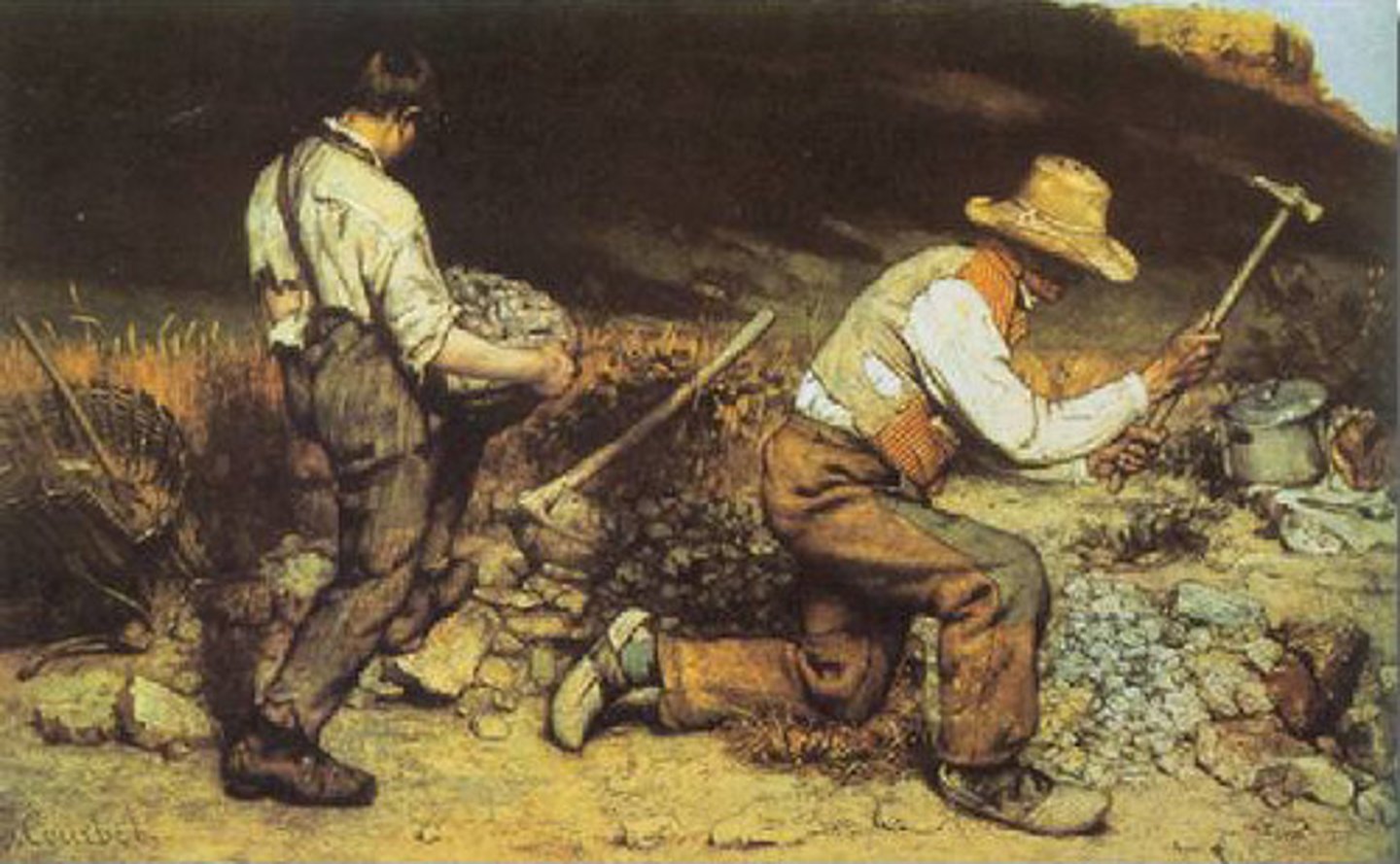
sarcasm
a type of verbal irony that refers to a remark in which the literal meaning is complimentary, but the actual meaning is critical
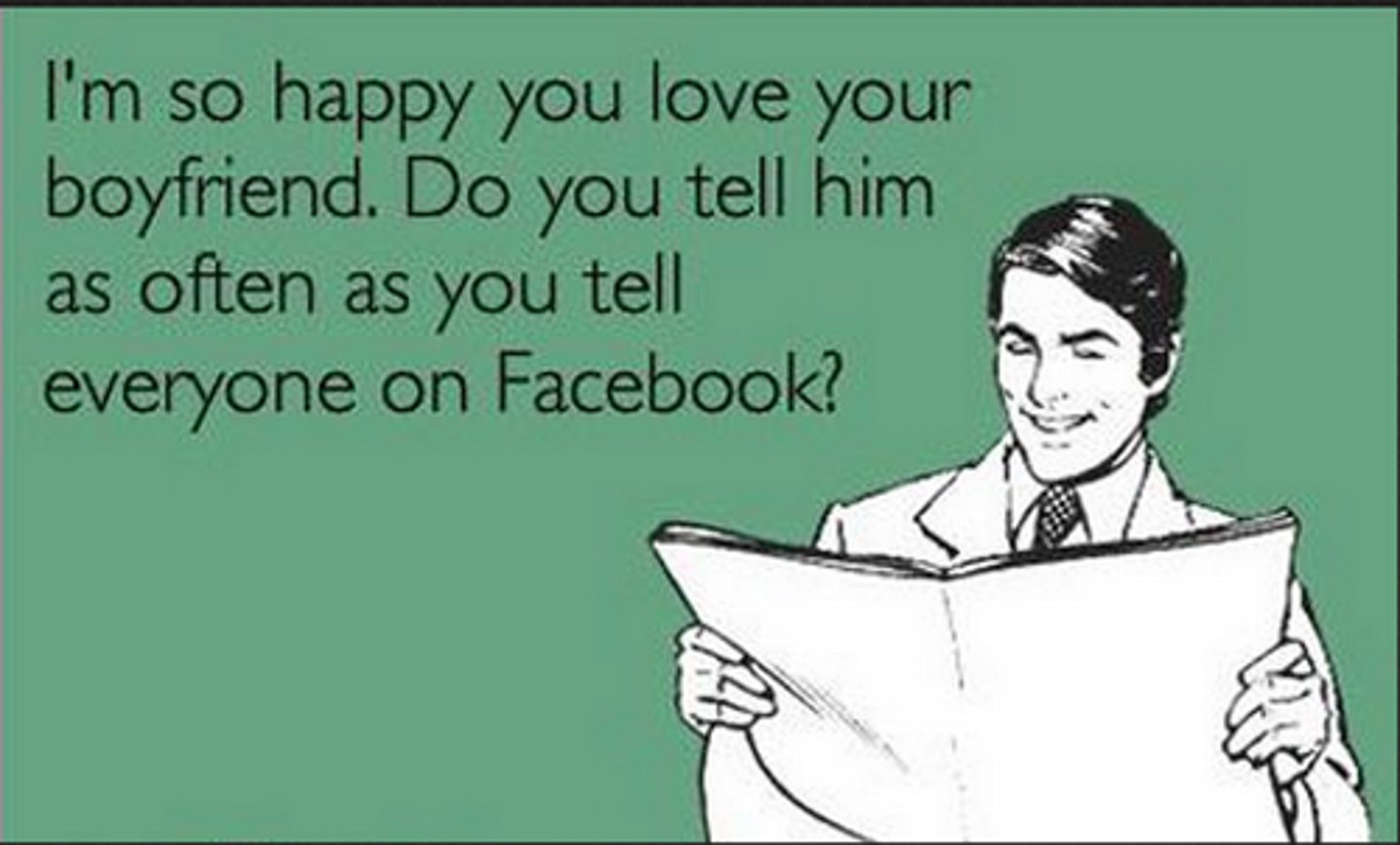
soliloquy
speech in which a character speaks his or her thought aloud, not speaking to other characters, to reveal inner thoughts, feelings, or plans to the audience
anachronism
something out of the proper time
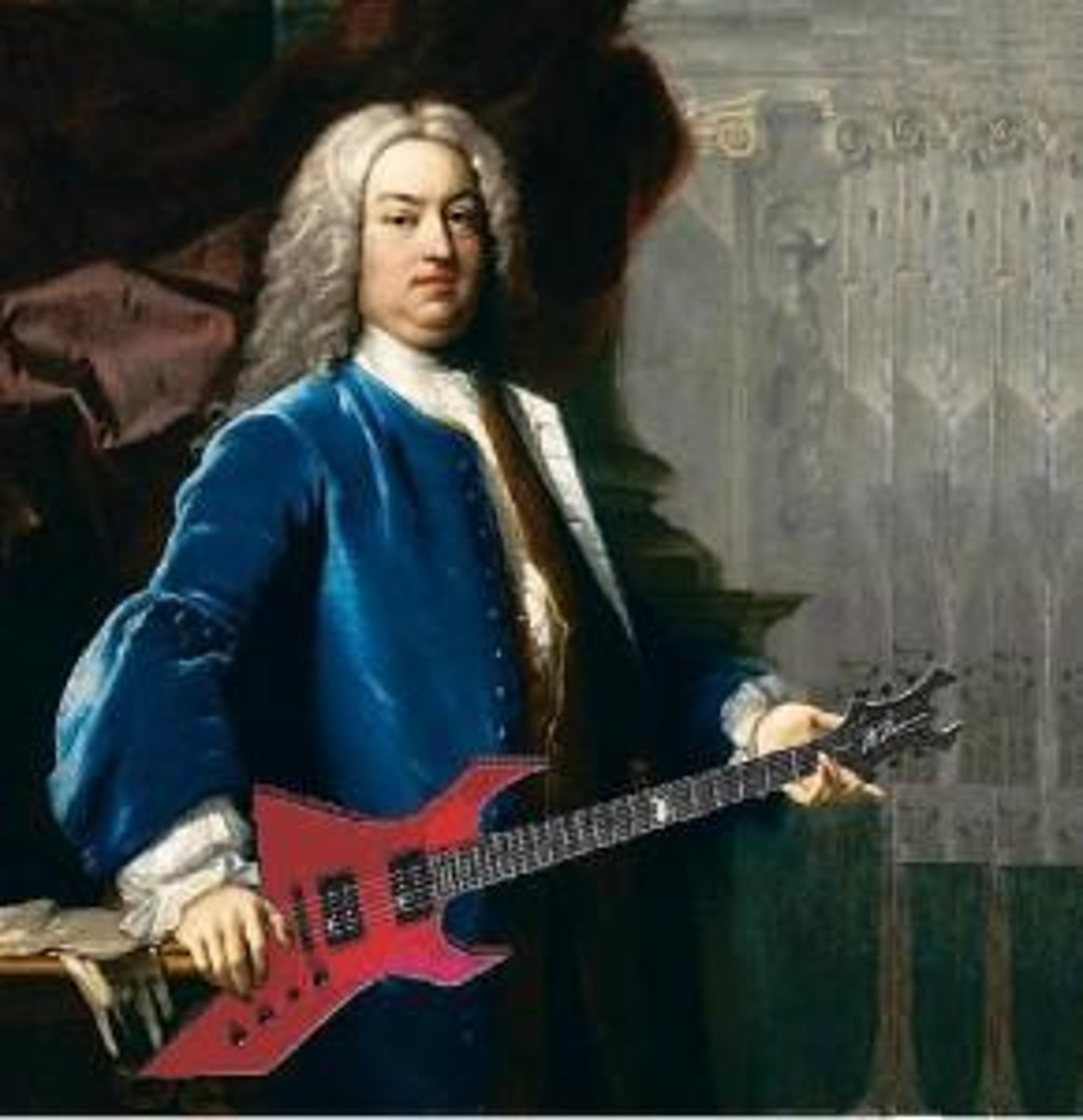
antithesis
the opposition or contrast of ideas; the direct opposite.
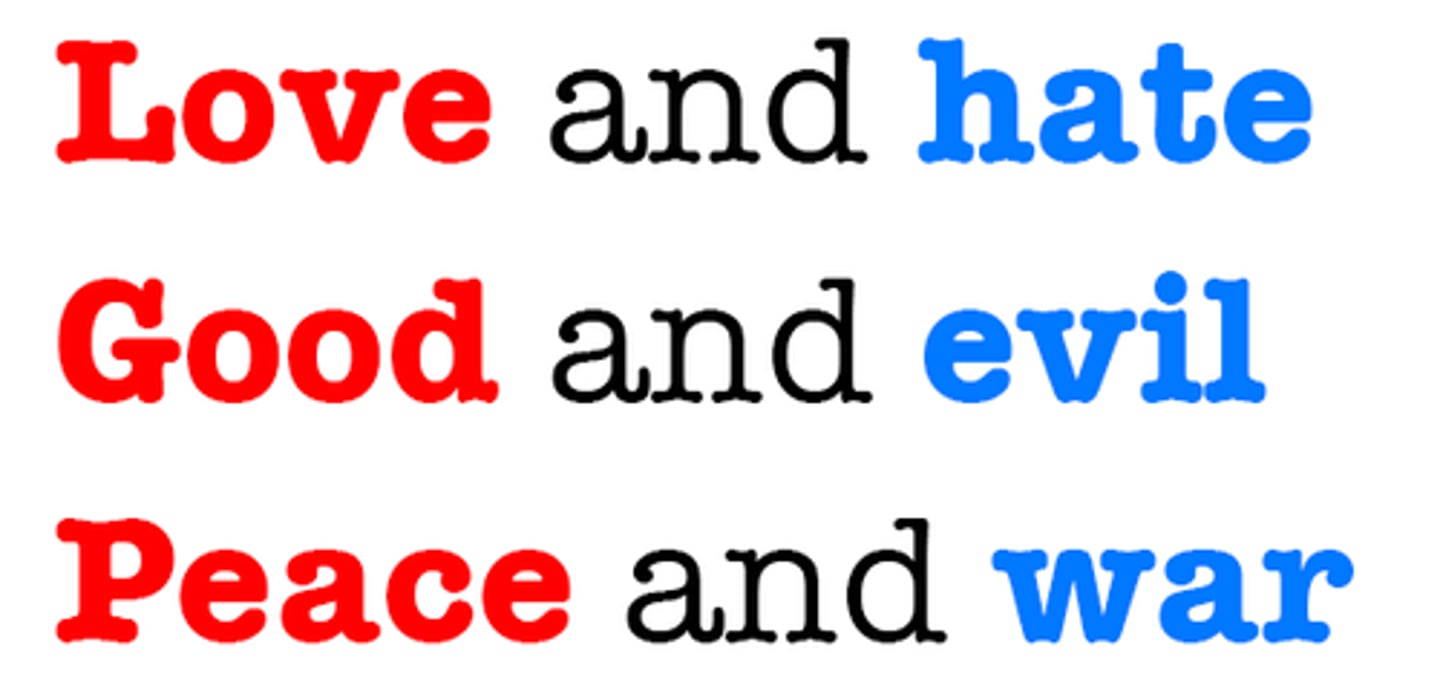
classical
express dominance of form over content or emotion; usually referring to the classics
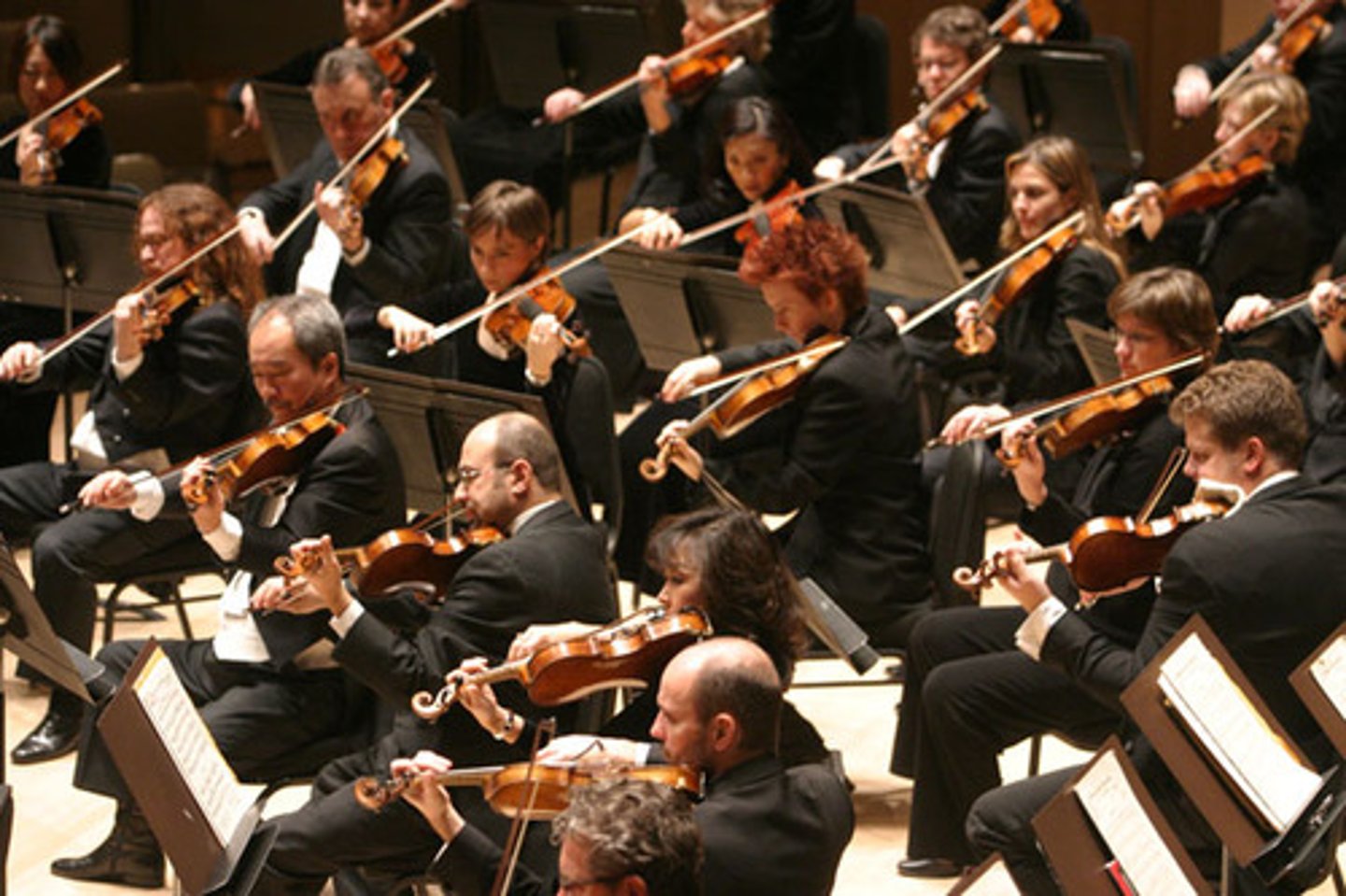
diction
word choice of the writer
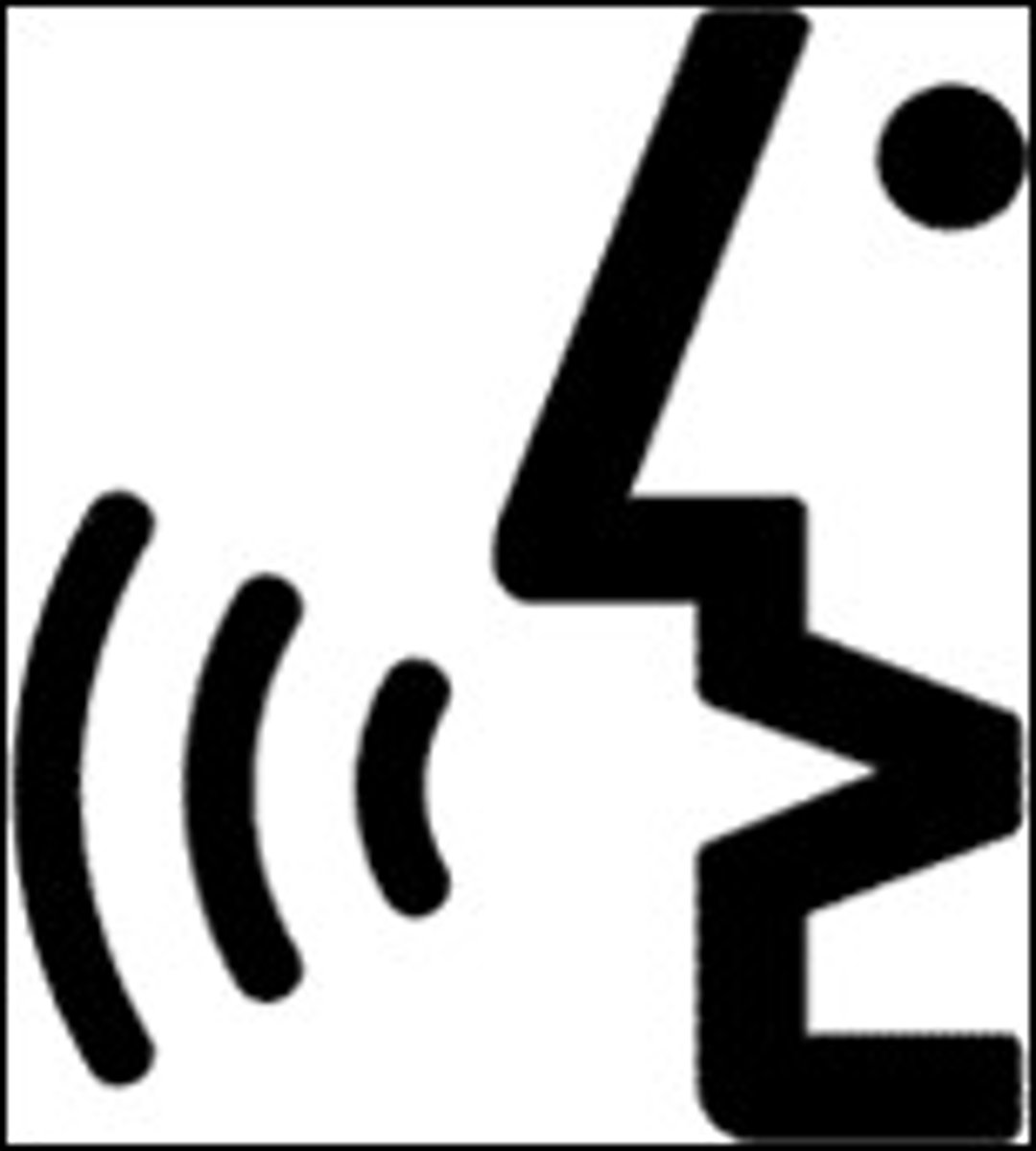
dramatic irony
when the reader or audience knows something a character does not

flashback
section that interrupts the sequence of events to relate an event from an earlier
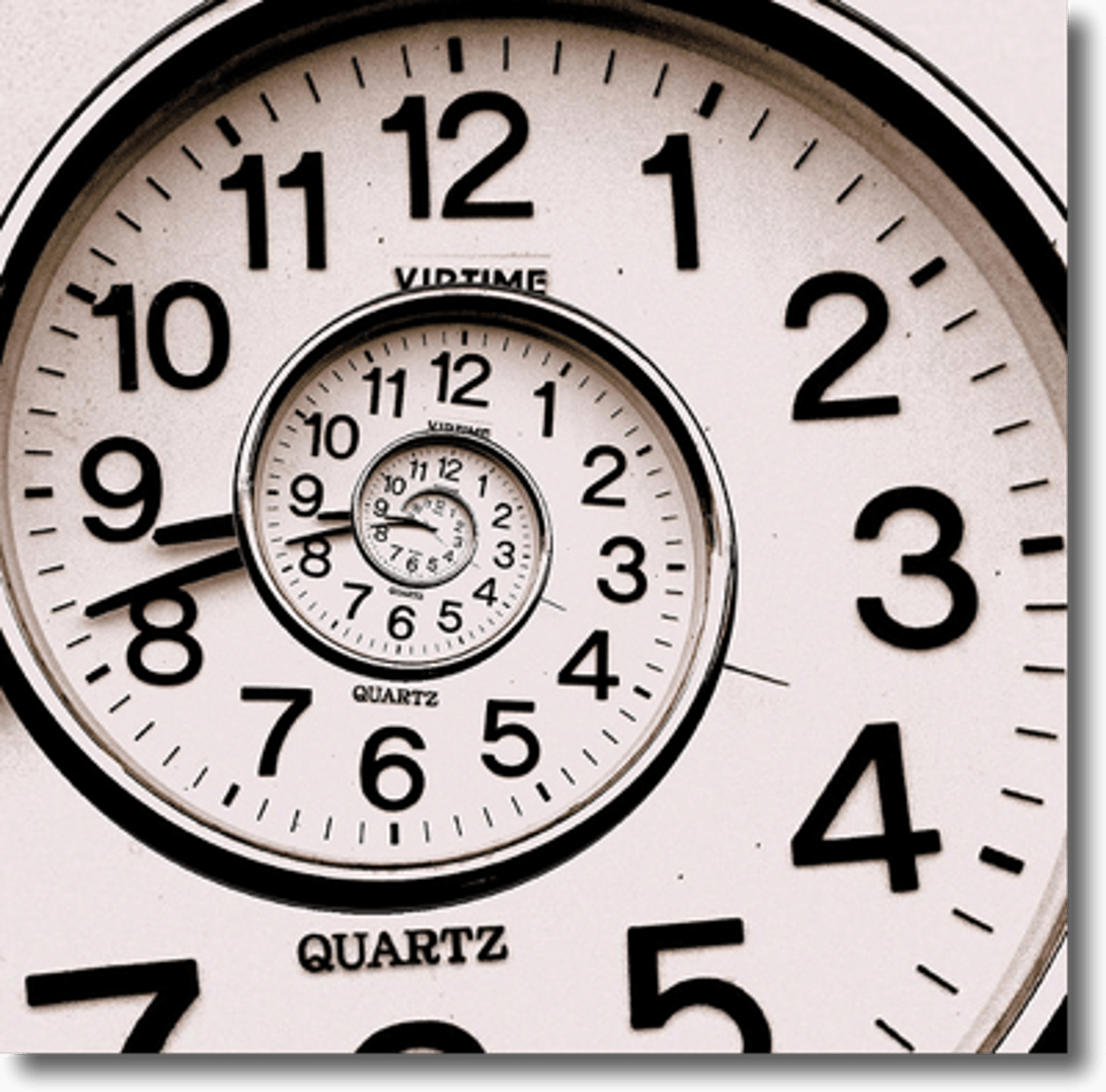
incongruity
a juxtaposition of incompatible or opposite elements

laureate
one especially singled out because of distinctive achievement
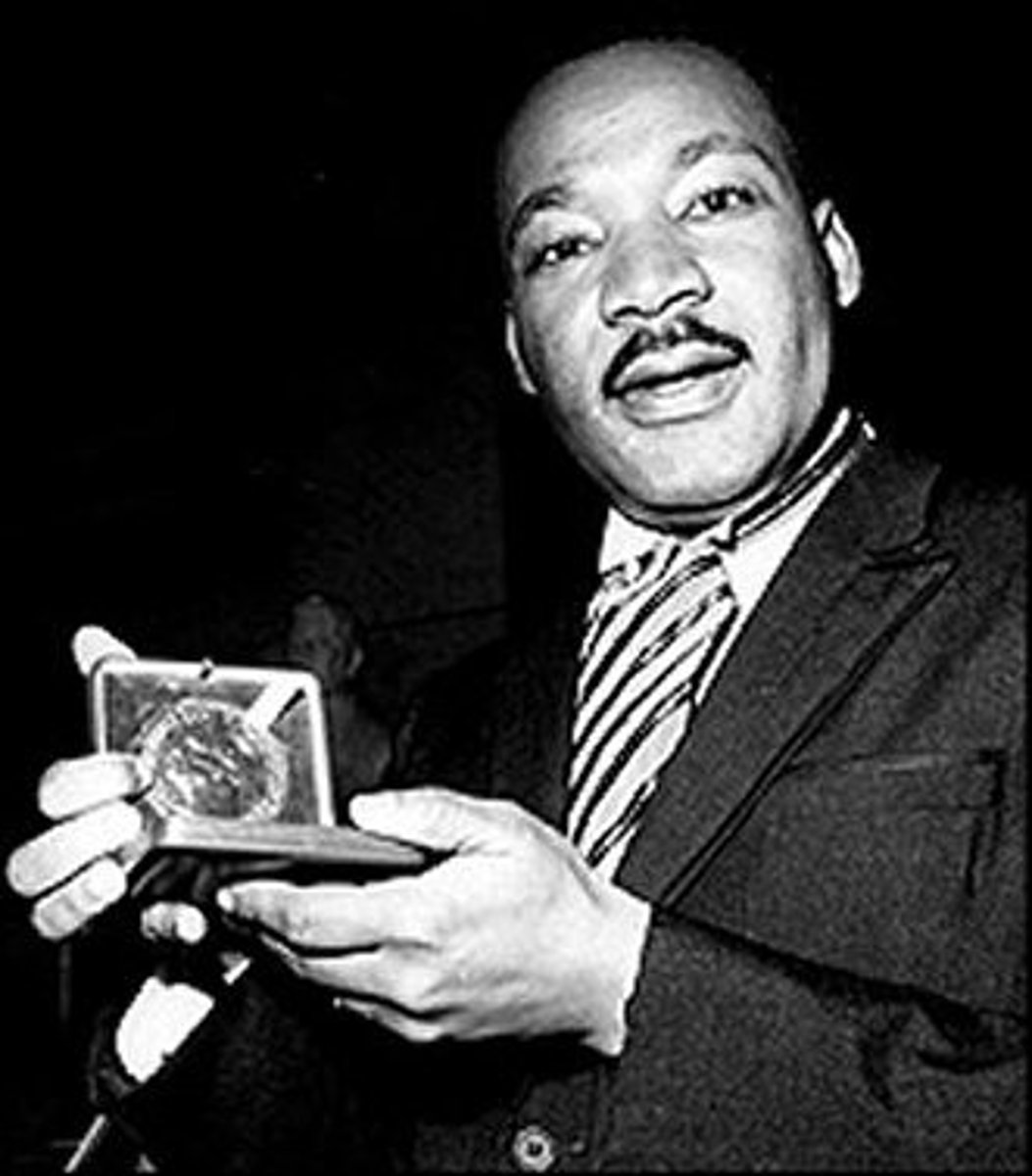
metaphor
comparison not using like or as
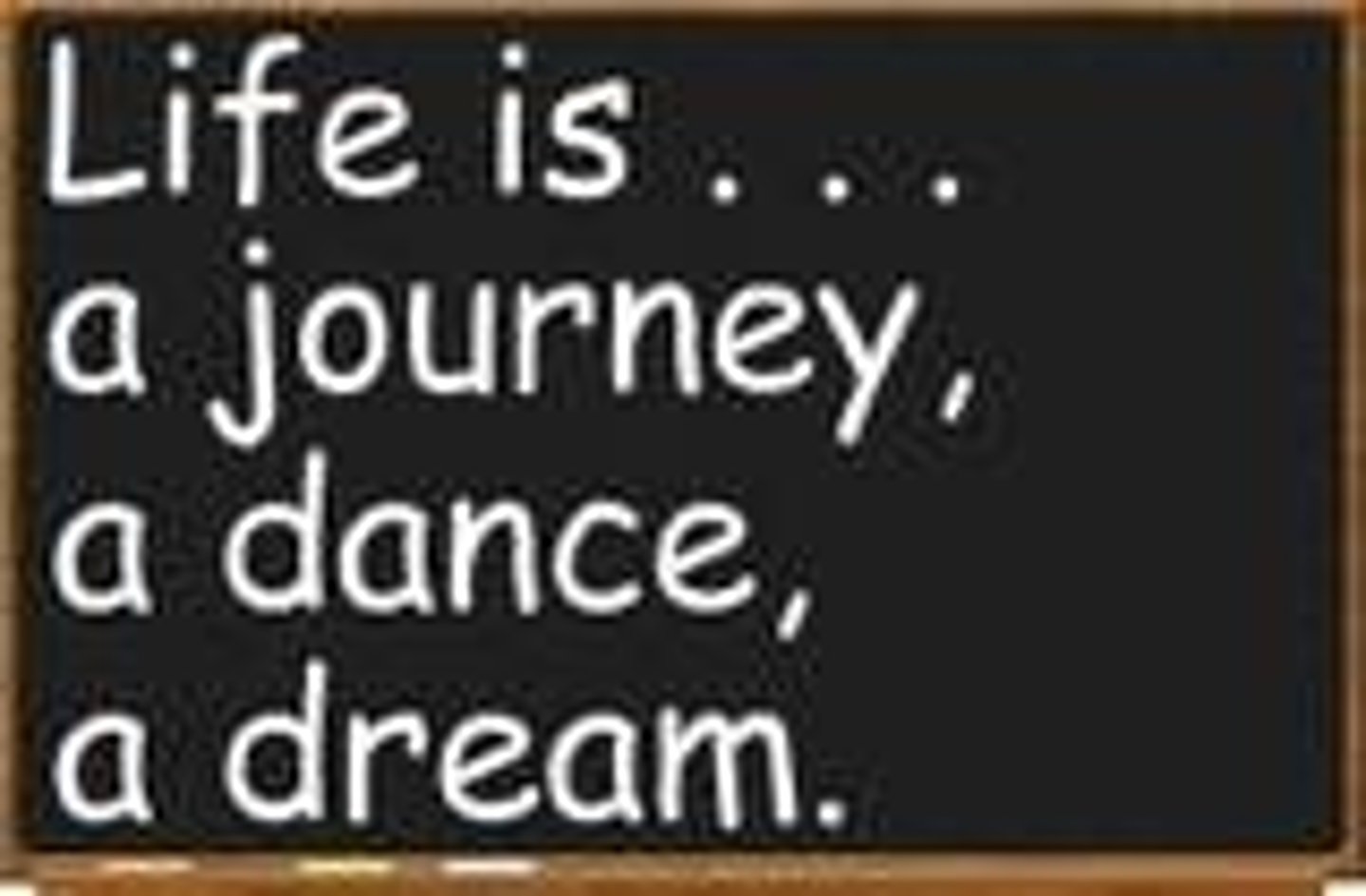
novella
a serious fictional form that is somewhere between the novel and the short story in length

parenthetical
a comment that interrupts the immediate subject, often to qualify or explain
rhyme
sounds accented vowels and all succeeding sounds that are identical
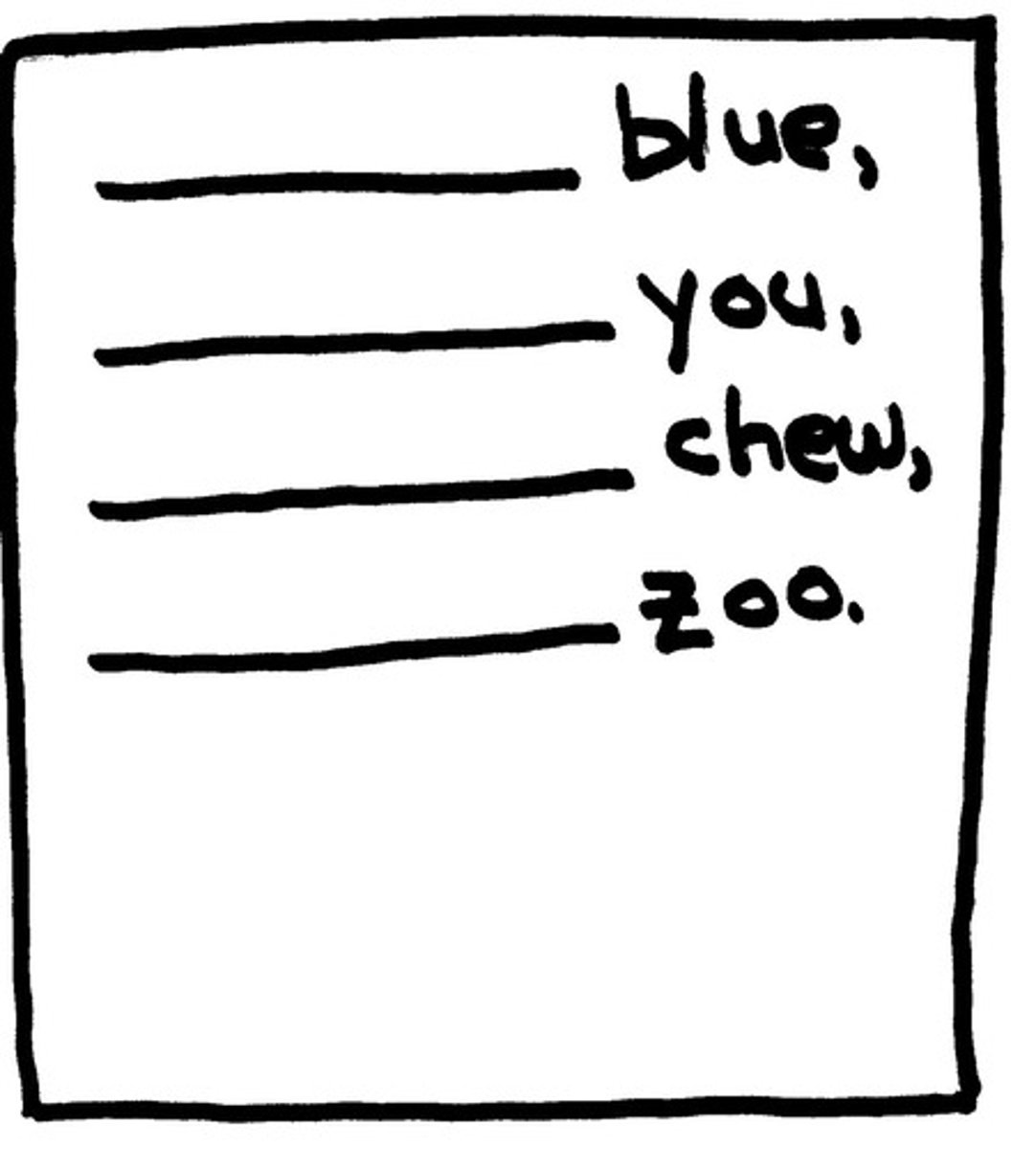
end rhyme scheme
a rhyme that occurs in the last syllables of verses
slant rhyme
rhyme in which the vowel sounds are nearly, but not exactly the same (i.e. the words "stress" and "kiss")
internal rhyme
rhyme that occurs within a line, rather than at the end
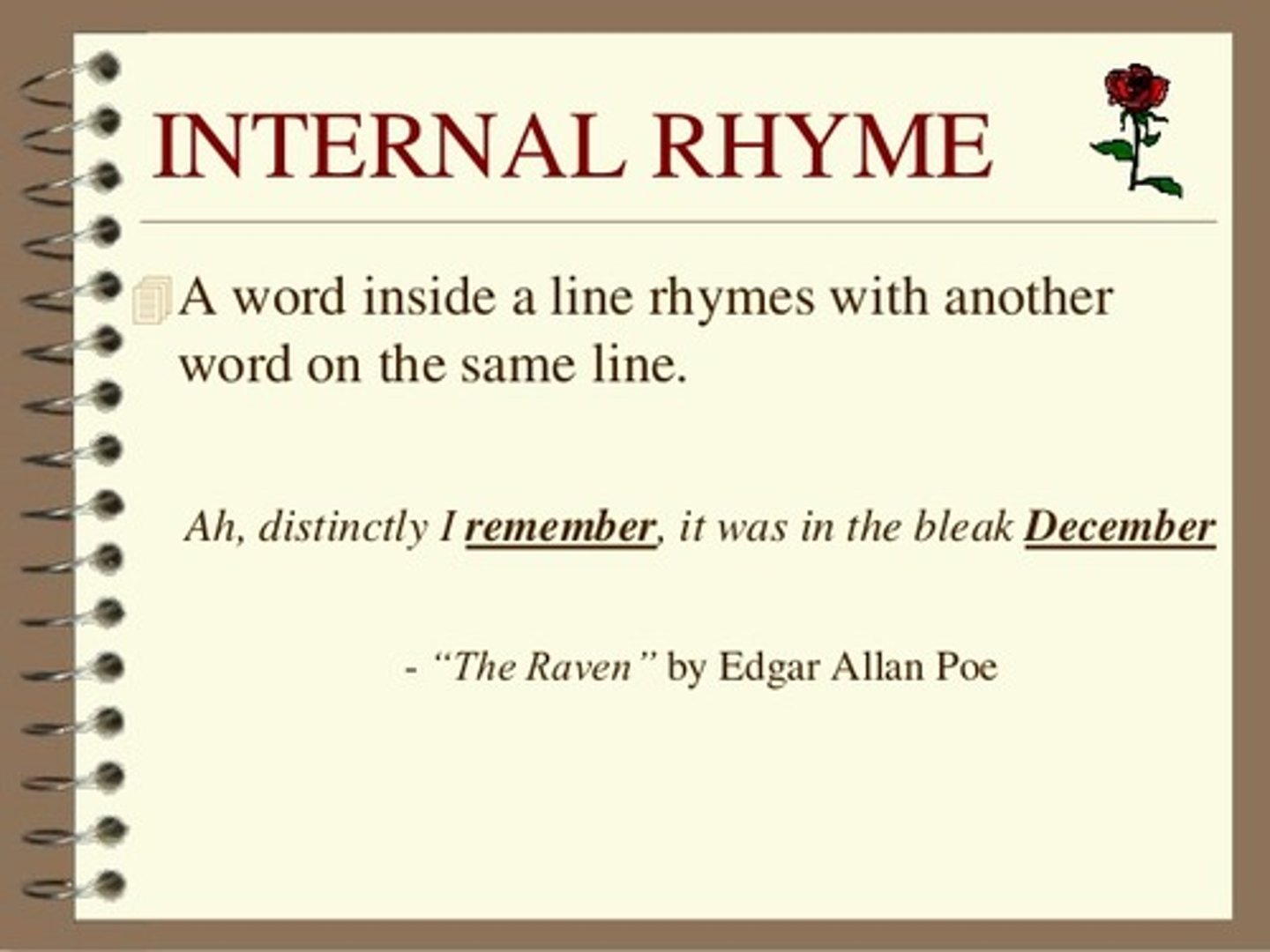
eye rhyme
a similarity between words in spelling but not in pronunciation
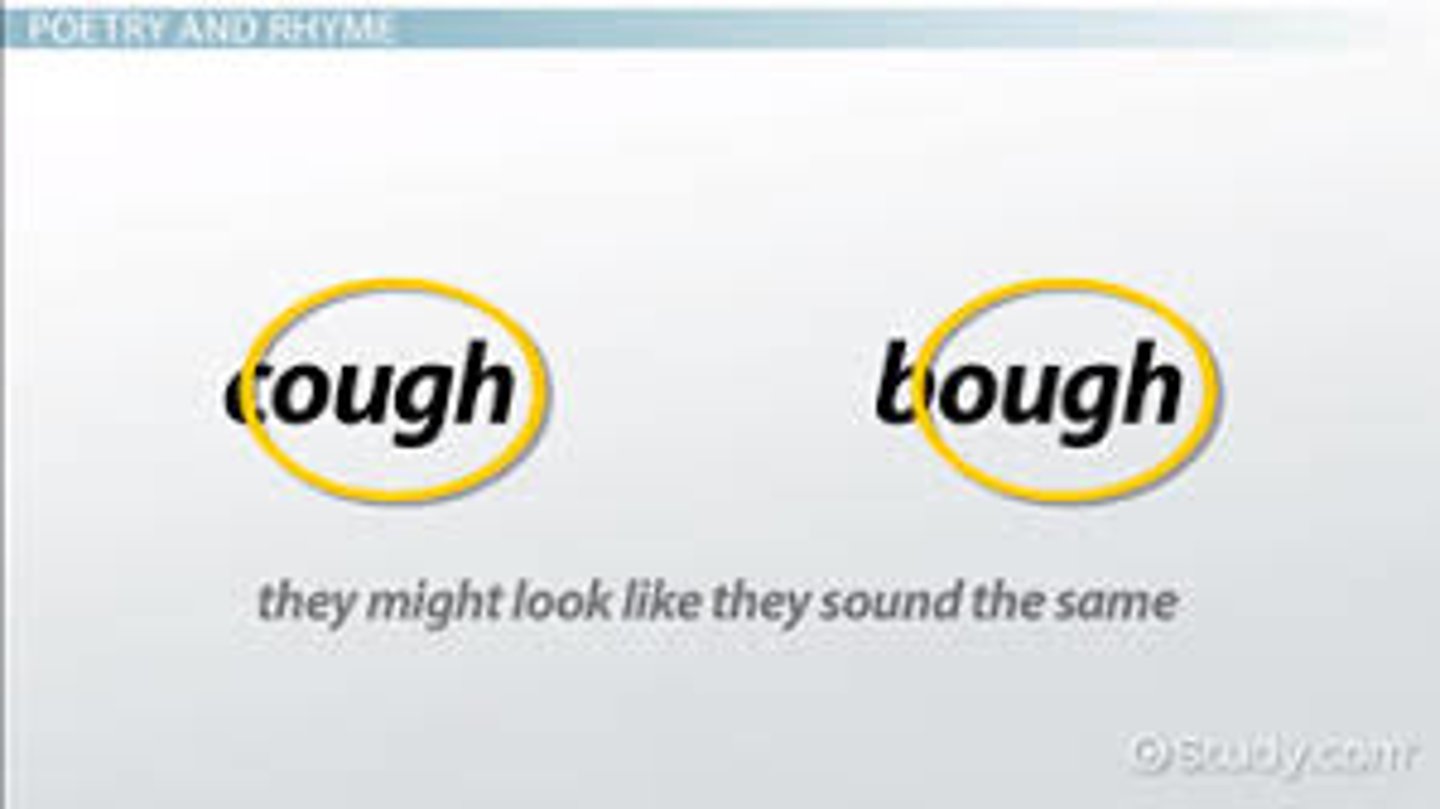
simile
A comparison using "like" or "as"
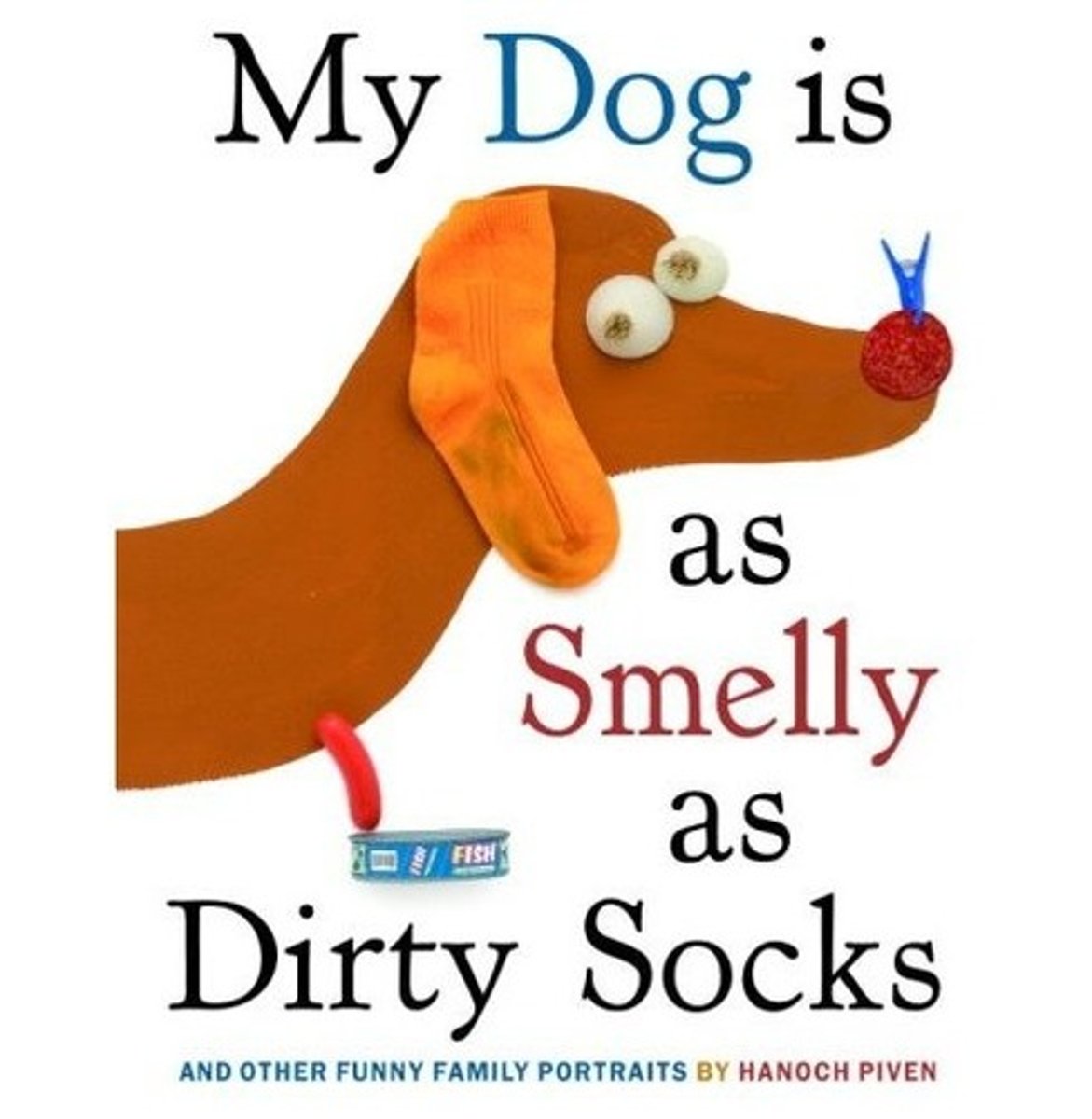
ambiguity
the intentional or unintentional use of a word or idea that implies more than one meaning leaving uncertainty

antipathy
a strong feeling of aversion; dislike
circular reasoning
fallacy when evidence given to support a claim is simply a restatement of the claim in other words
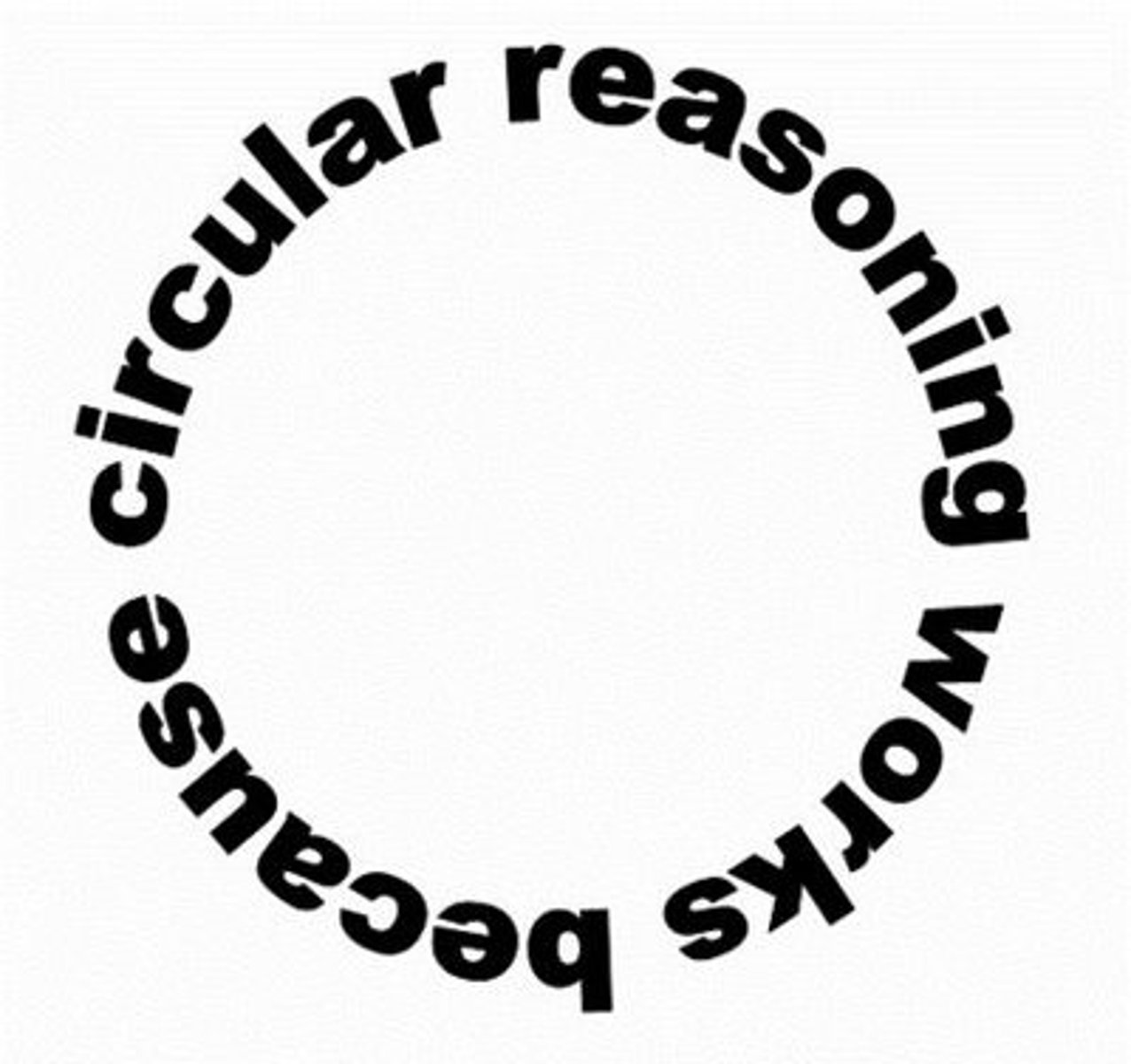
denoument
anything that happens after the resolution of the plot

dirge
lamentation sung or played at a funeral; sad song
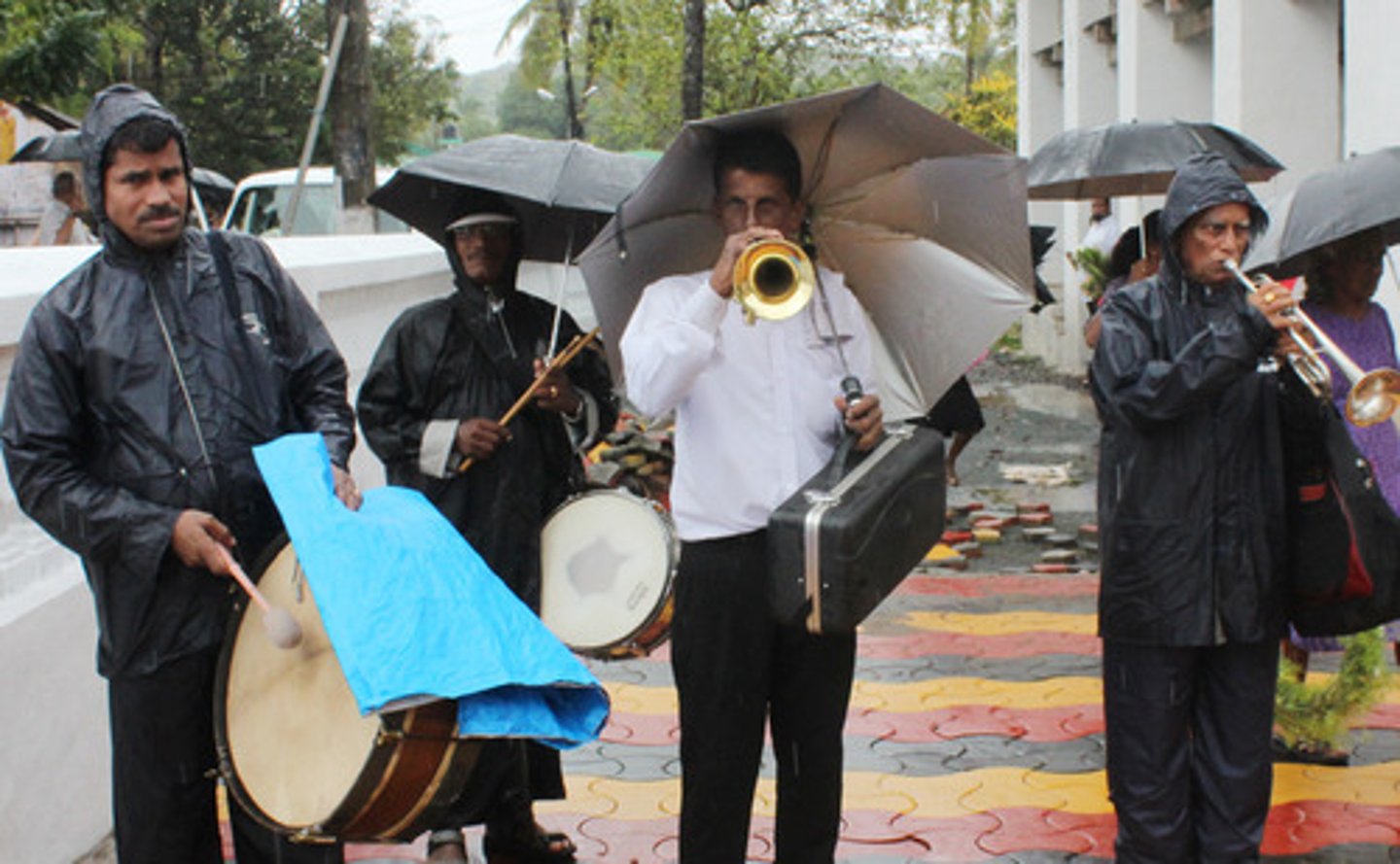
figurative language
writing or speech not meant to be taken literally
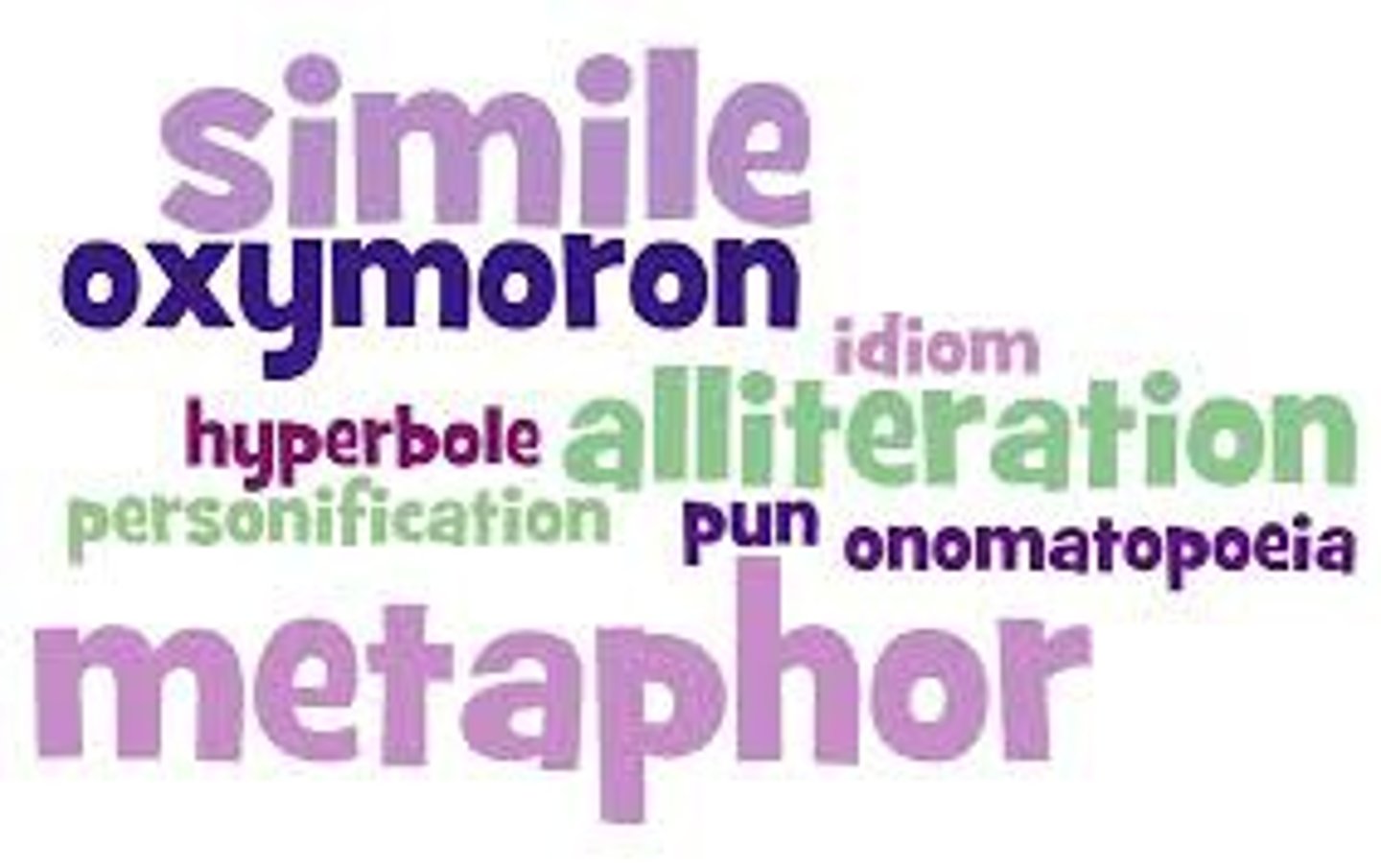
heroic couplet
in poetry, rhyming pair of lines written in iambic pentameter
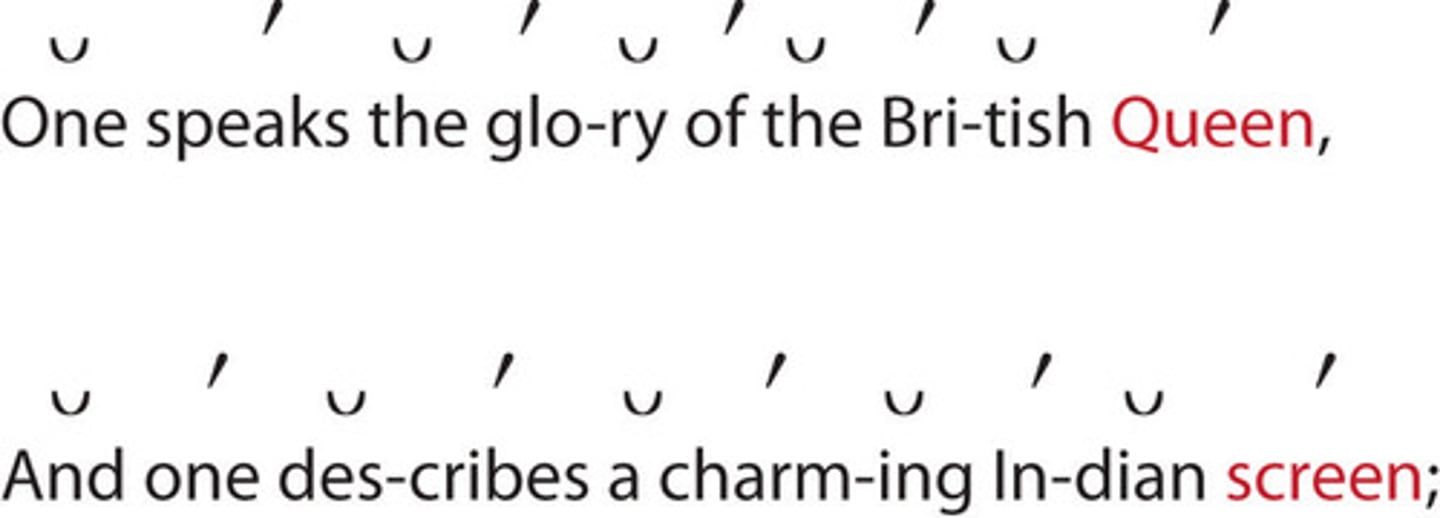
inciting incident
introduces the central or main conflict
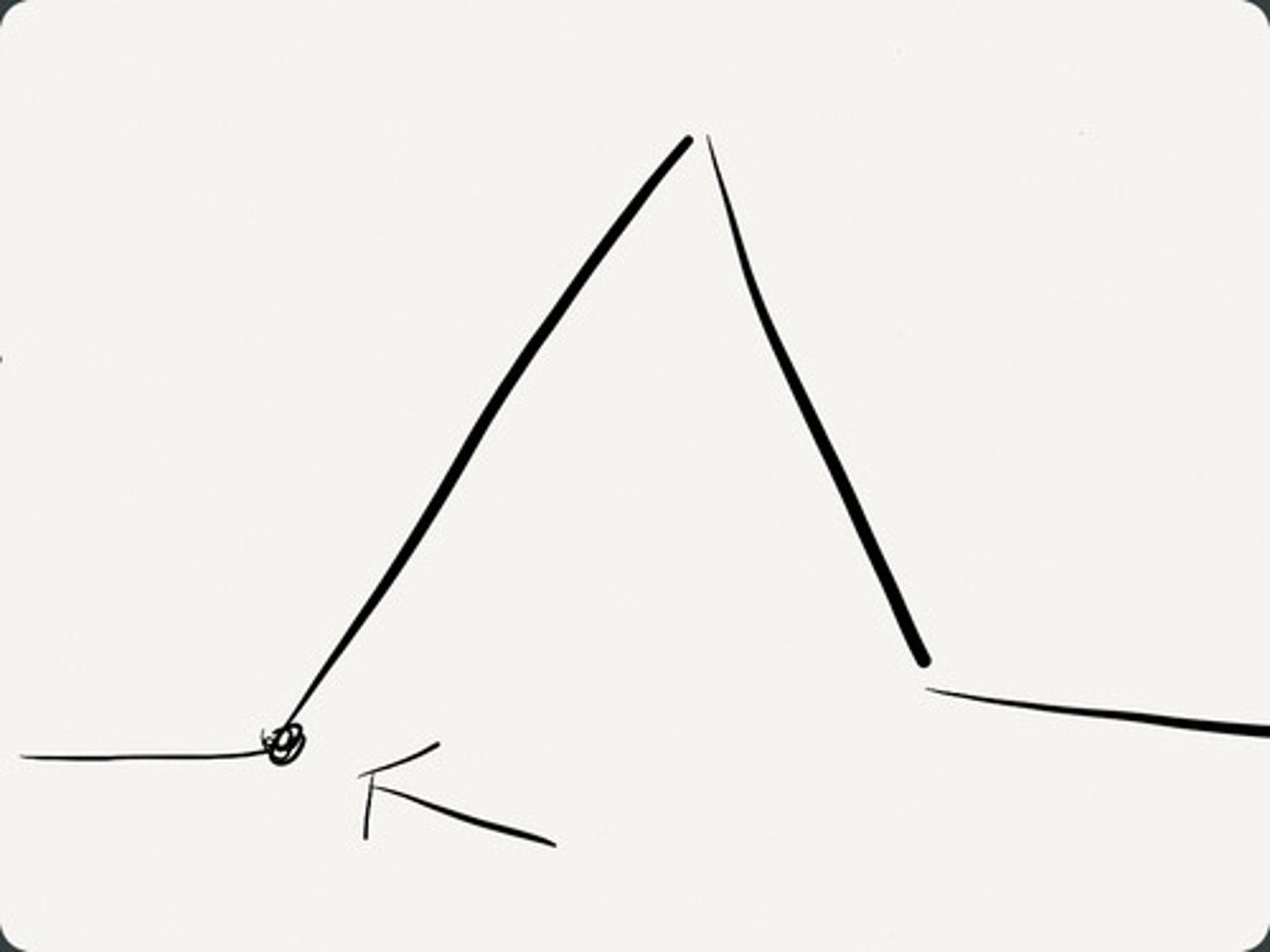
jargon
the special terminology or language of a profession or group
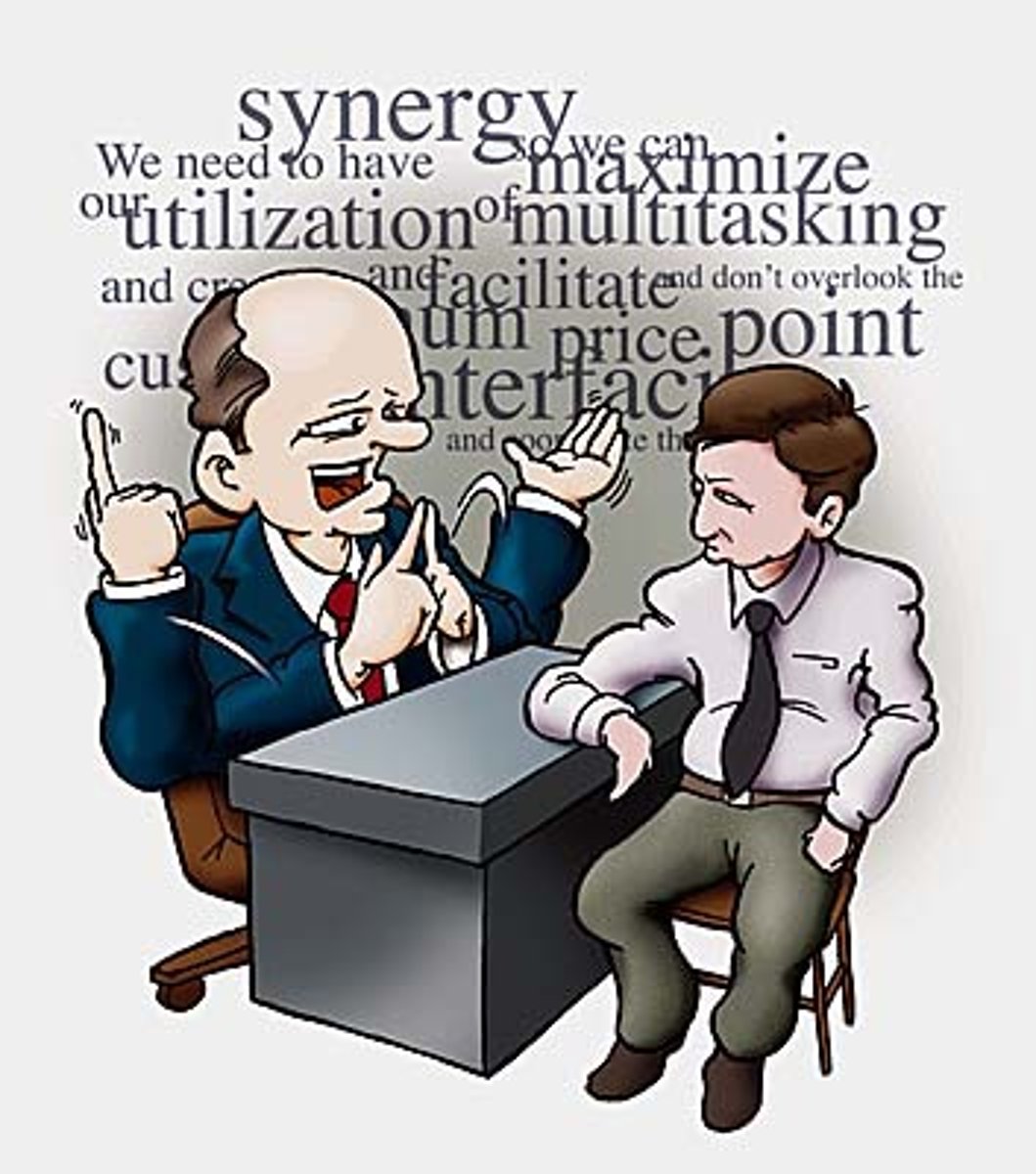
kenning
metaphorical phrase used to replace a concrete noun
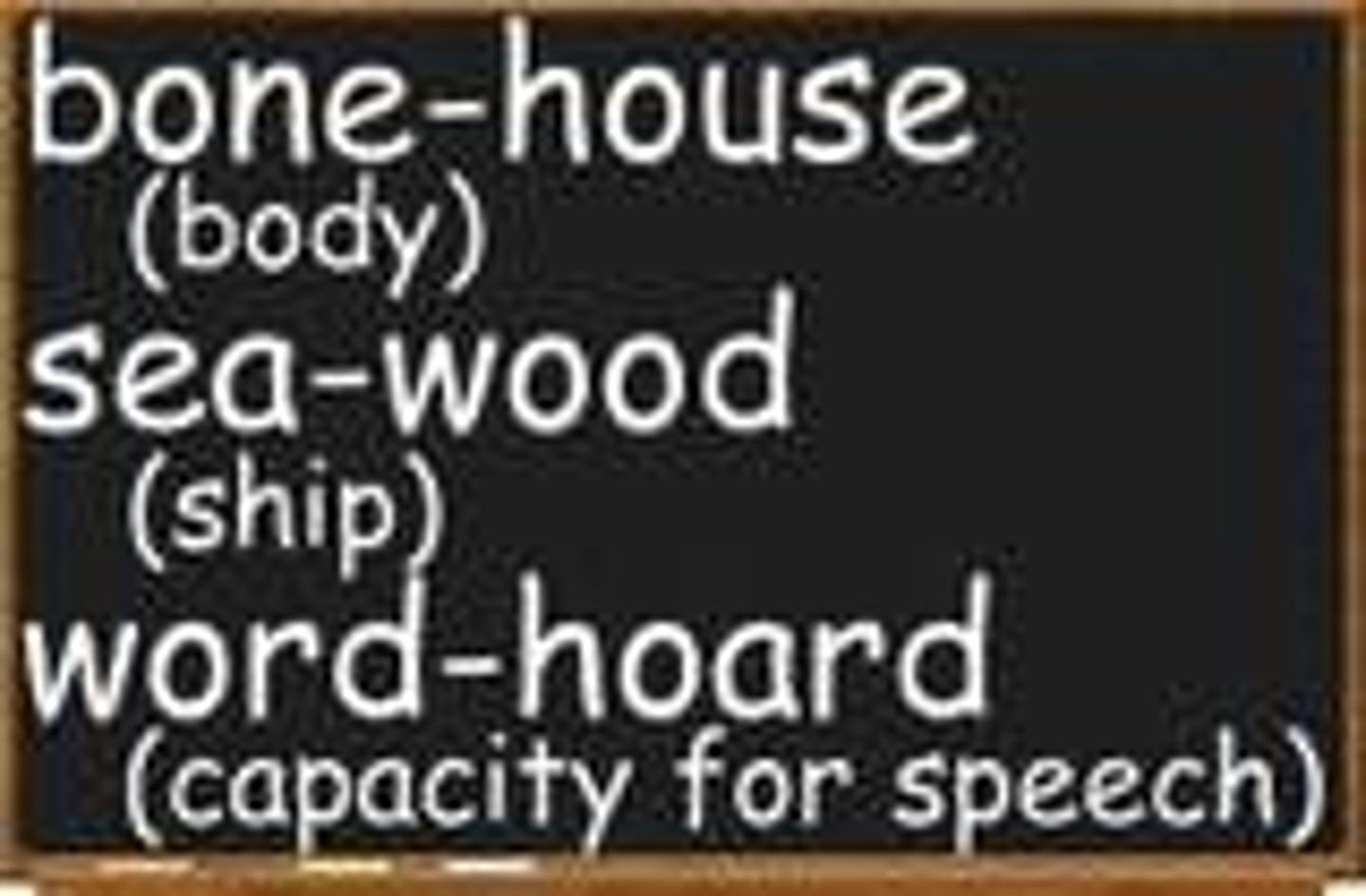
narrative
writing that tells a story
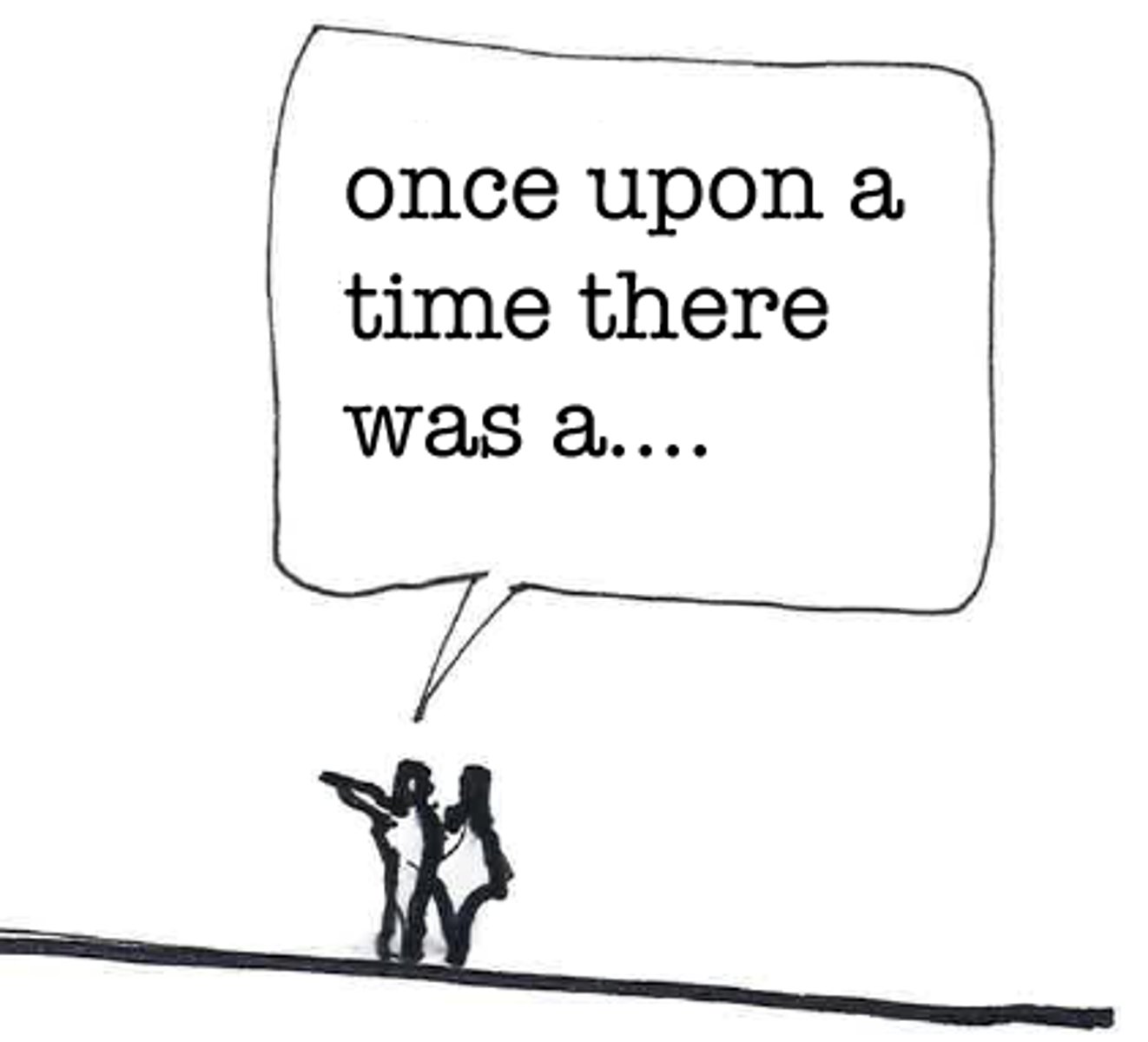
paraphrase
a restatement in different words; to put one's own words
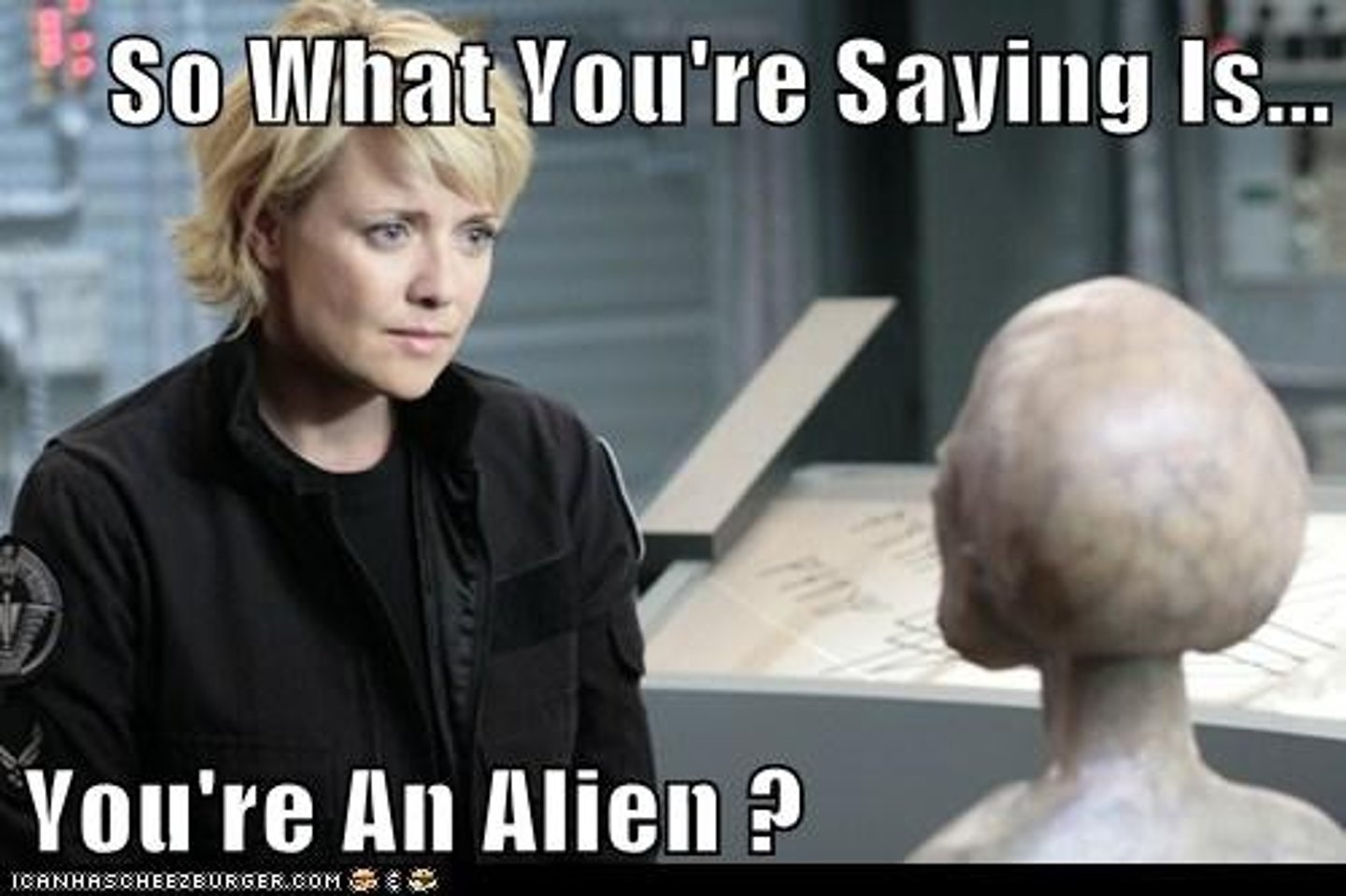
prose
ordinary form of written language

resolution
when the conflict is resolved
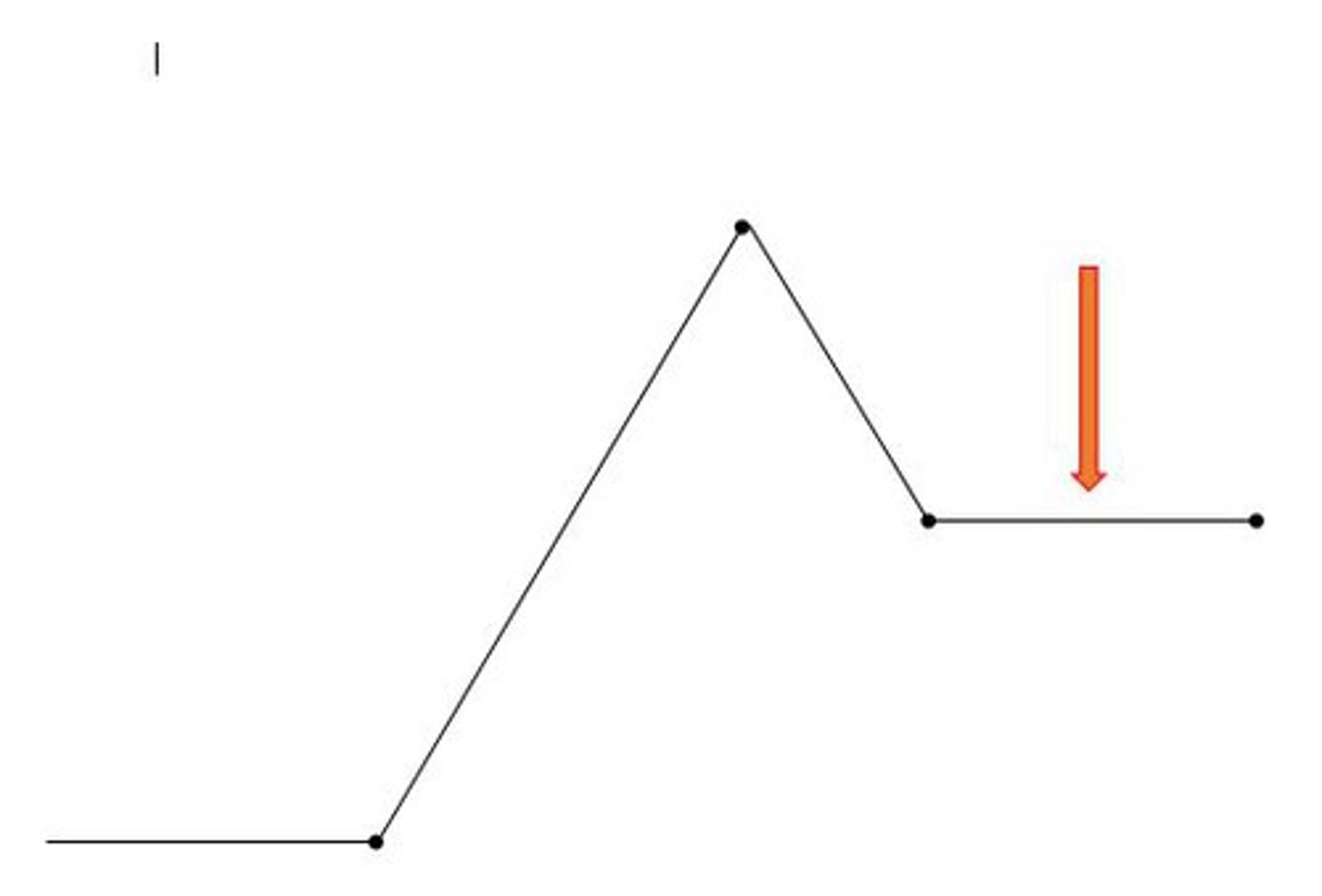
setting
The time and place of a story

allusion
A reference to a well-known person, place, event, literary work, or work of art
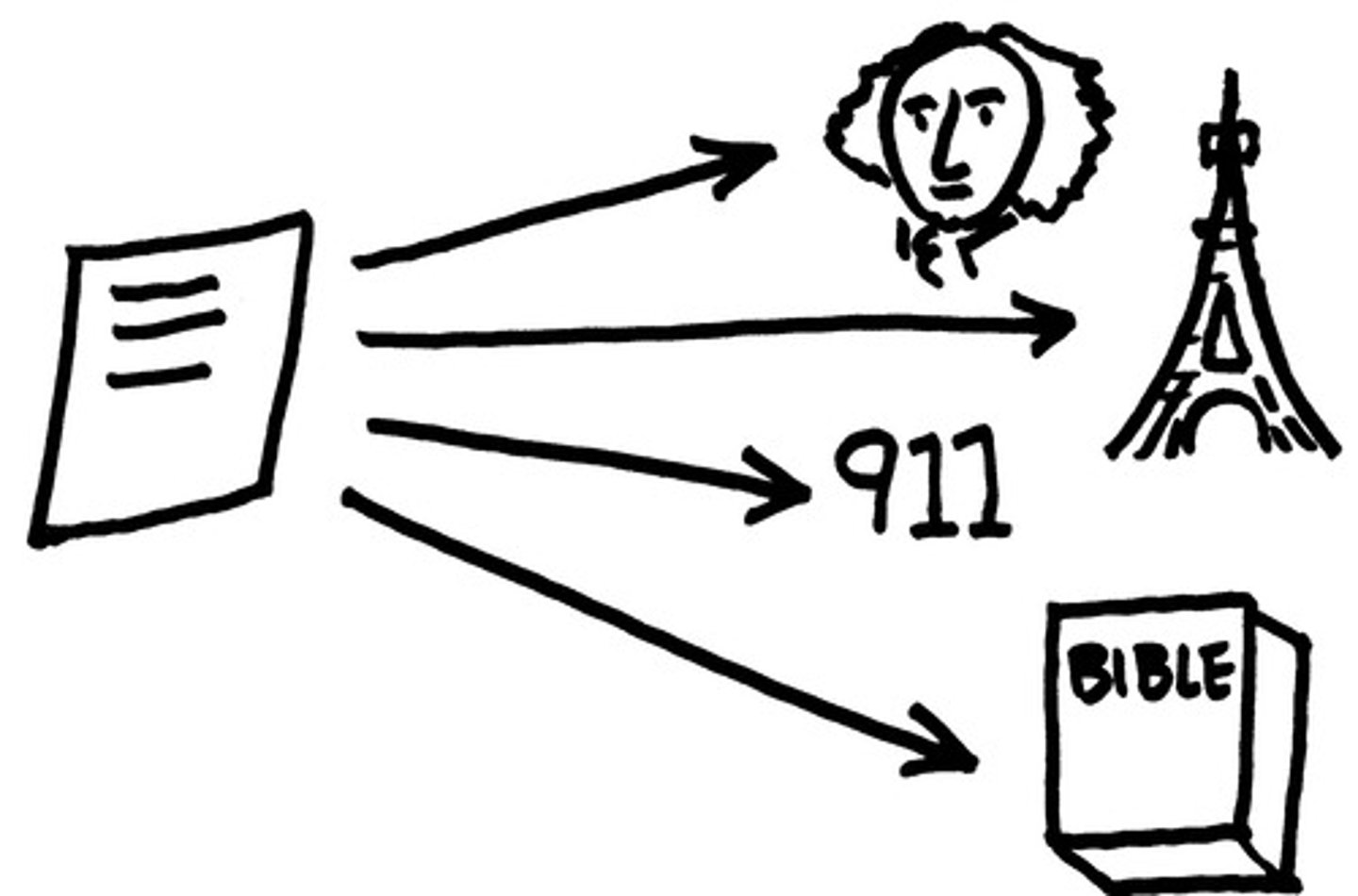
anaphora
the deliberate repetition of a word or phrase at the beginning of several successive verses, clauses, or paragraphs
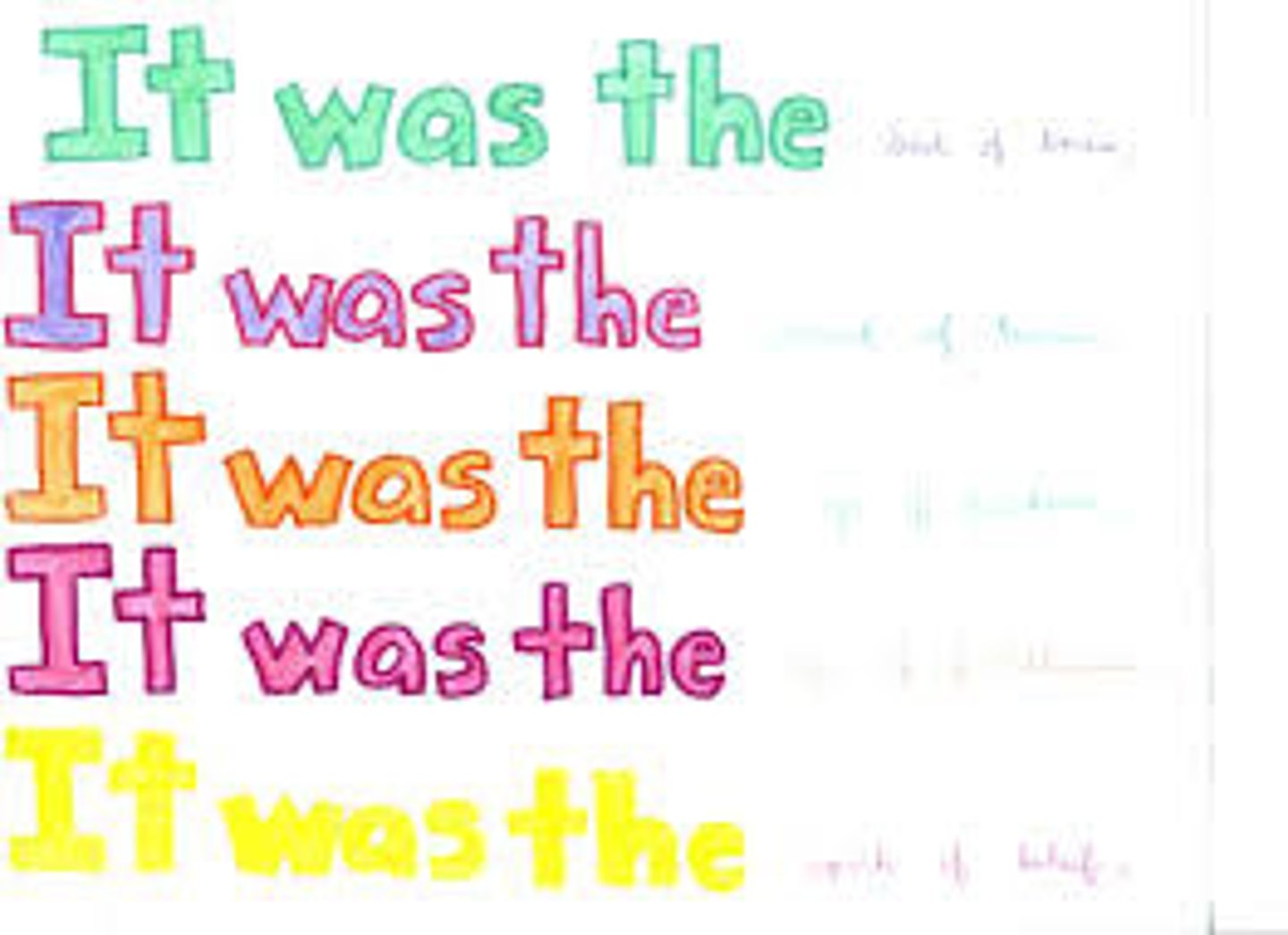
bandwagon
a propaganda technique that encourages people to think or act in some way simply because other people are doing so

chiasmus
reversal or inversion of syntax or word order for effect
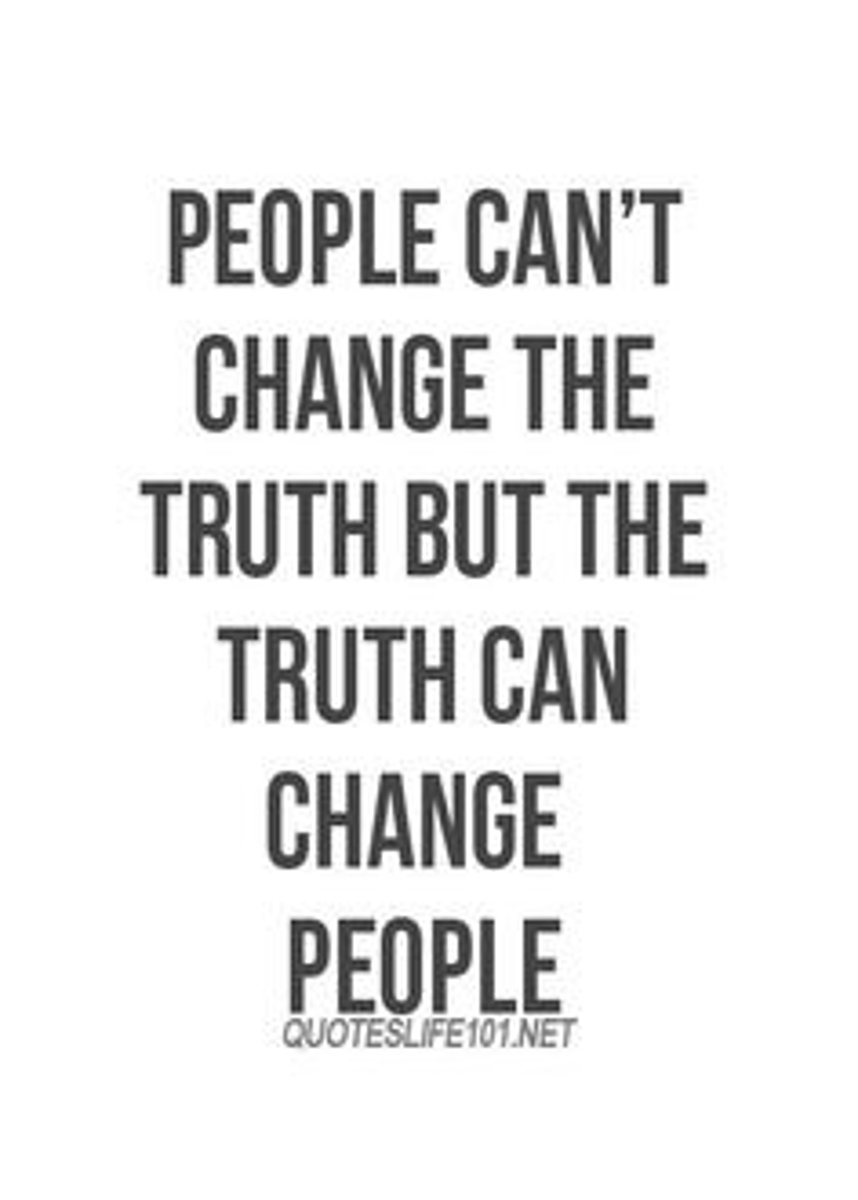
dactyl
in poetry- metric foot with one accented syllable and two unaccented syllables- example: ten/der/ly
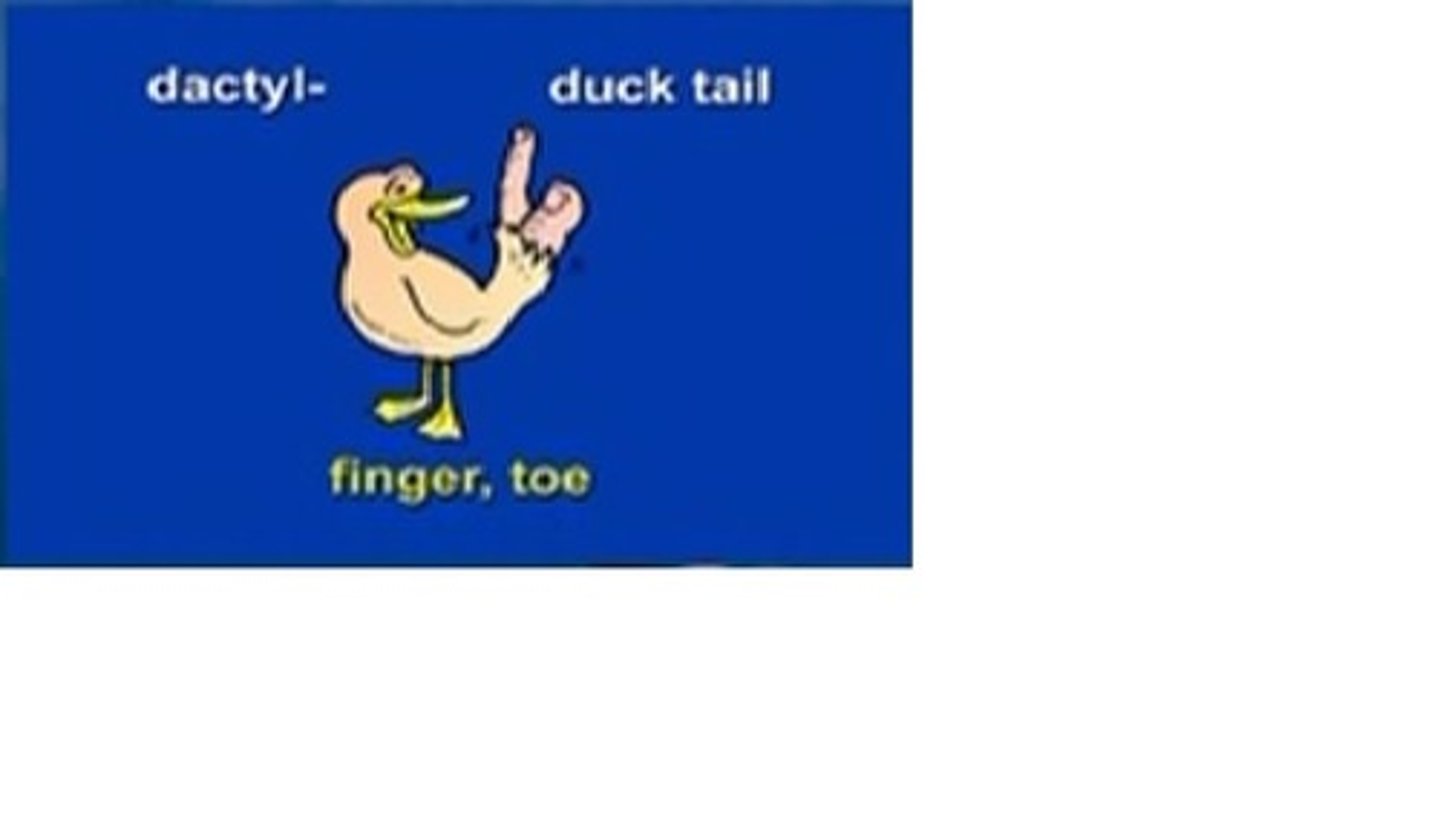
dialect
speech with particular grammar or pronunciation associated with a geographic region
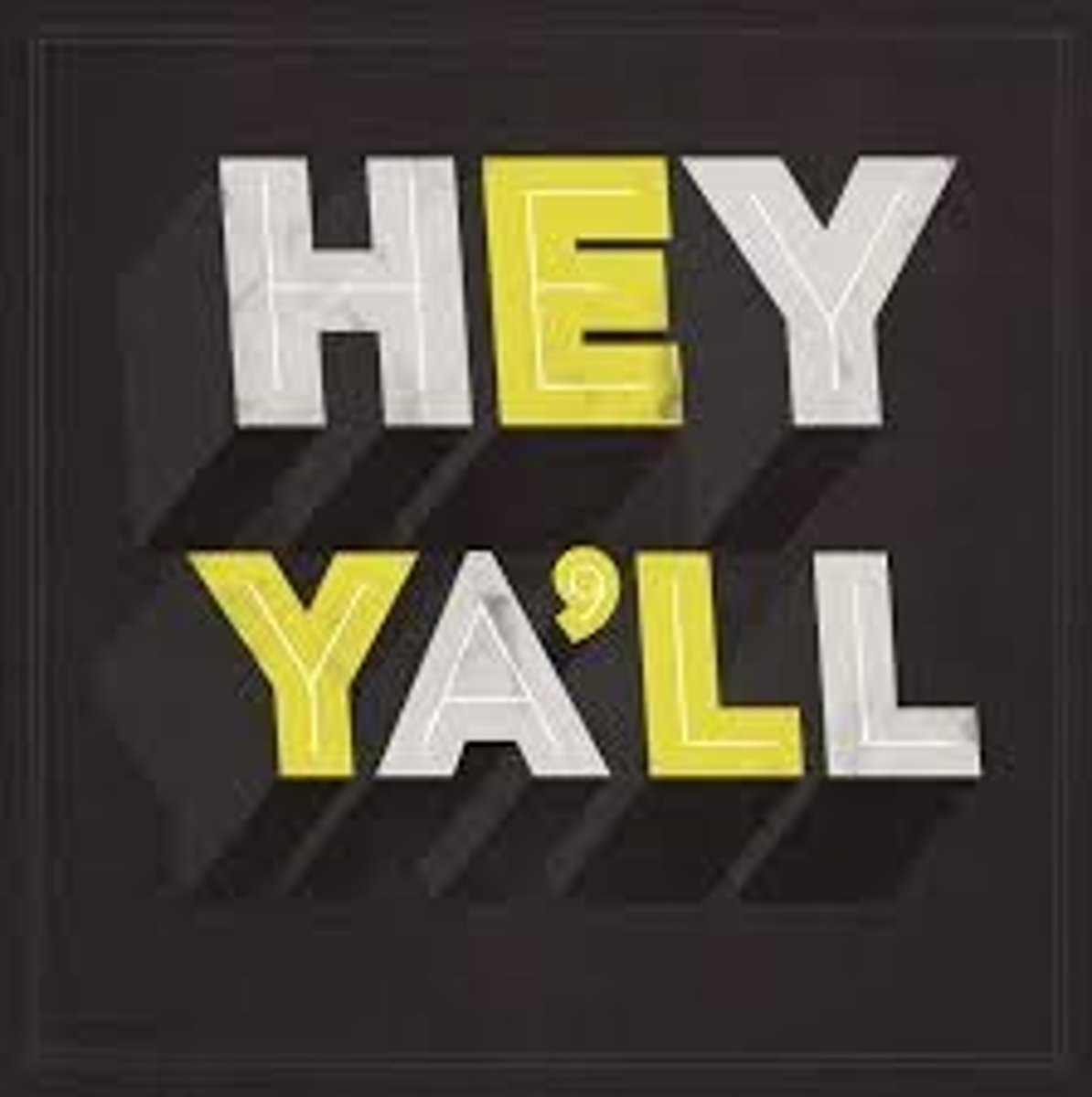
fantasy
highly imaginative writing that contains elements not found in real life

hubris
extreme pride

implication
suggestion made without stating directly

inversion
reversal or change in regular word order
narcissism
an obsession with one's own person (self)

parallelism
repetition of grammatical pattern to express ideas that are related or equal in importance
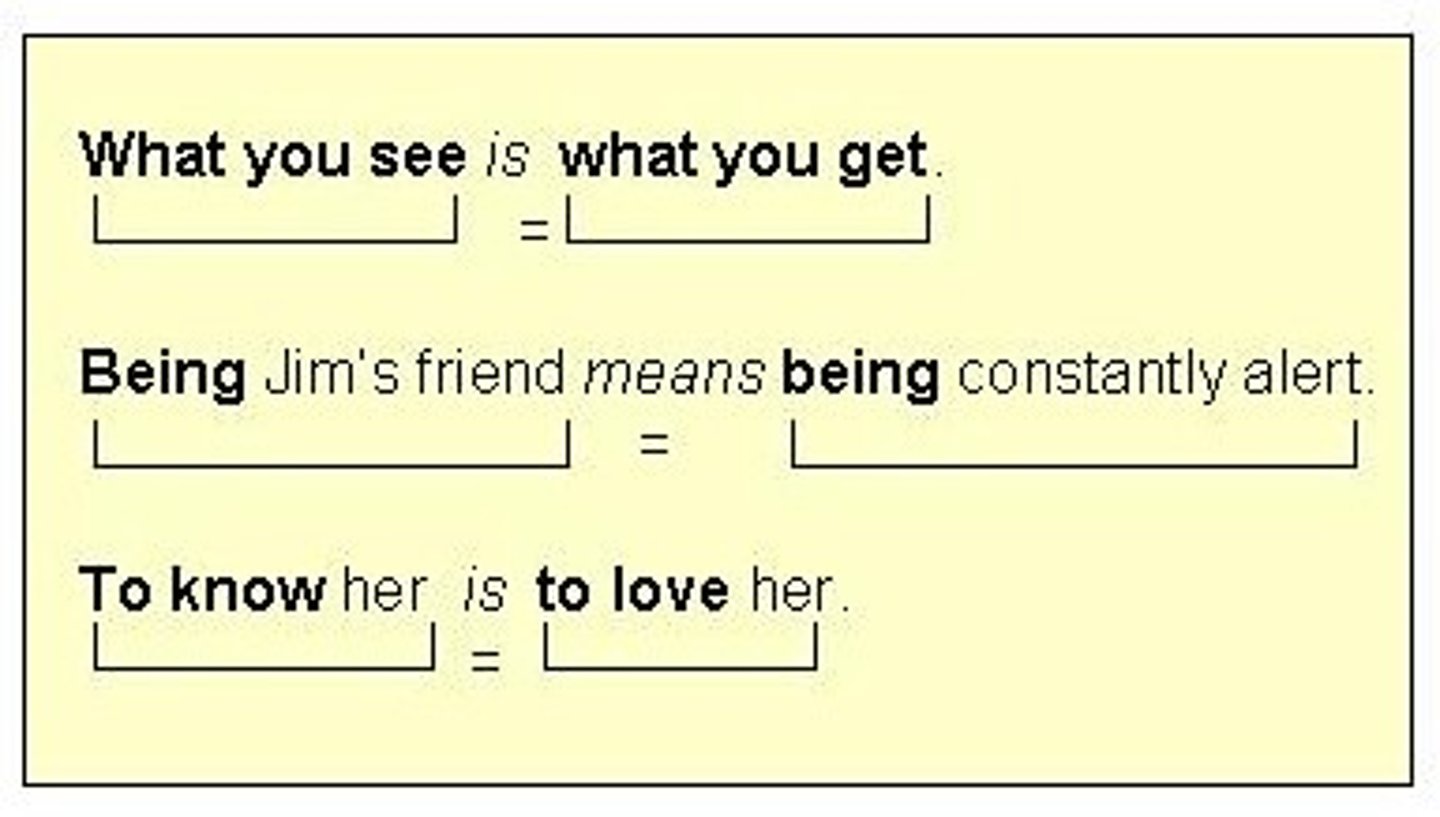
repetition
a sound, word, phrase, or line that is repeated for emphasis and unity
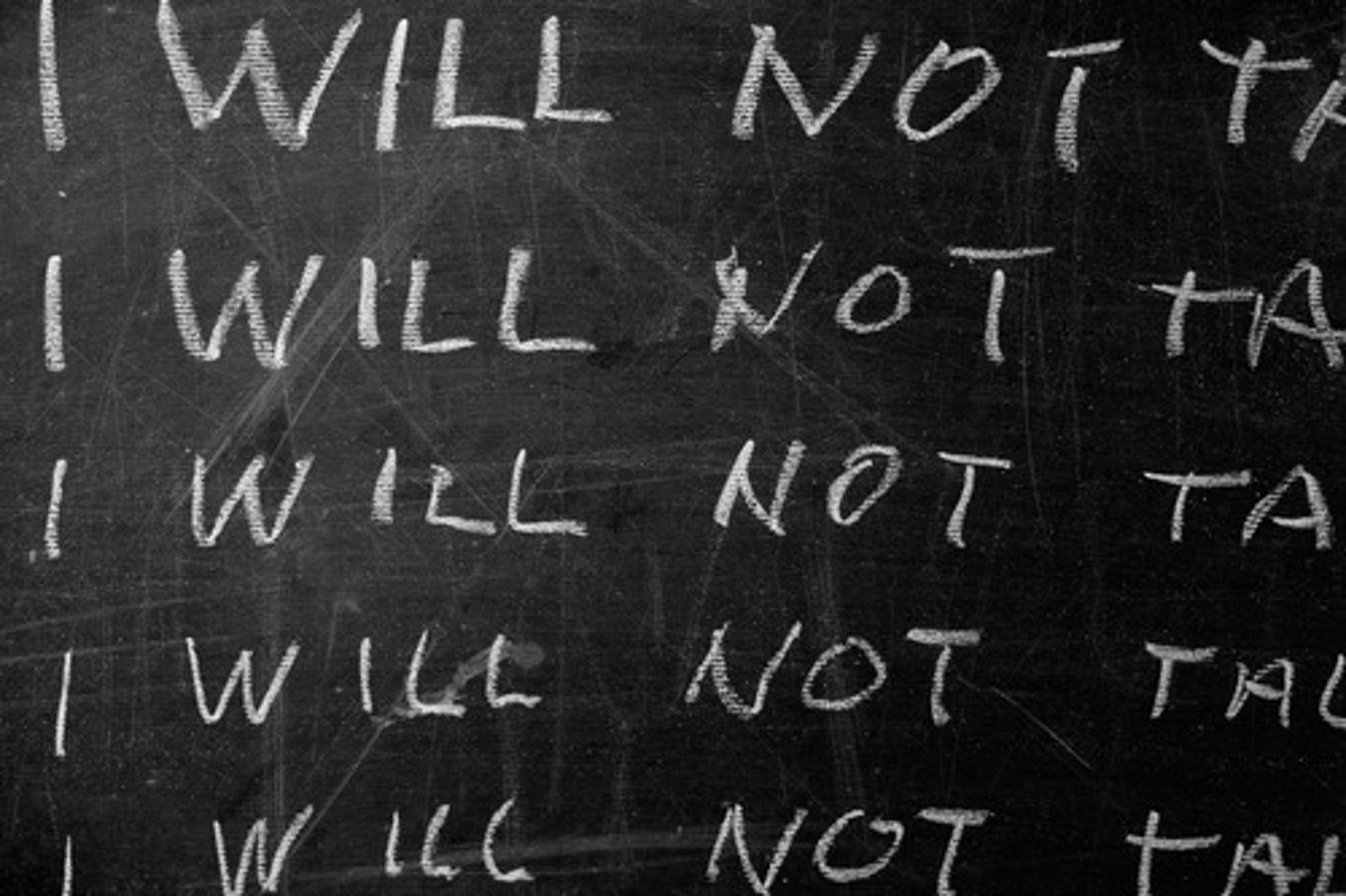
scapegoat
a person or group that bears the blame for another

trite
lacking originality or freshness from overuse and consequently of little import
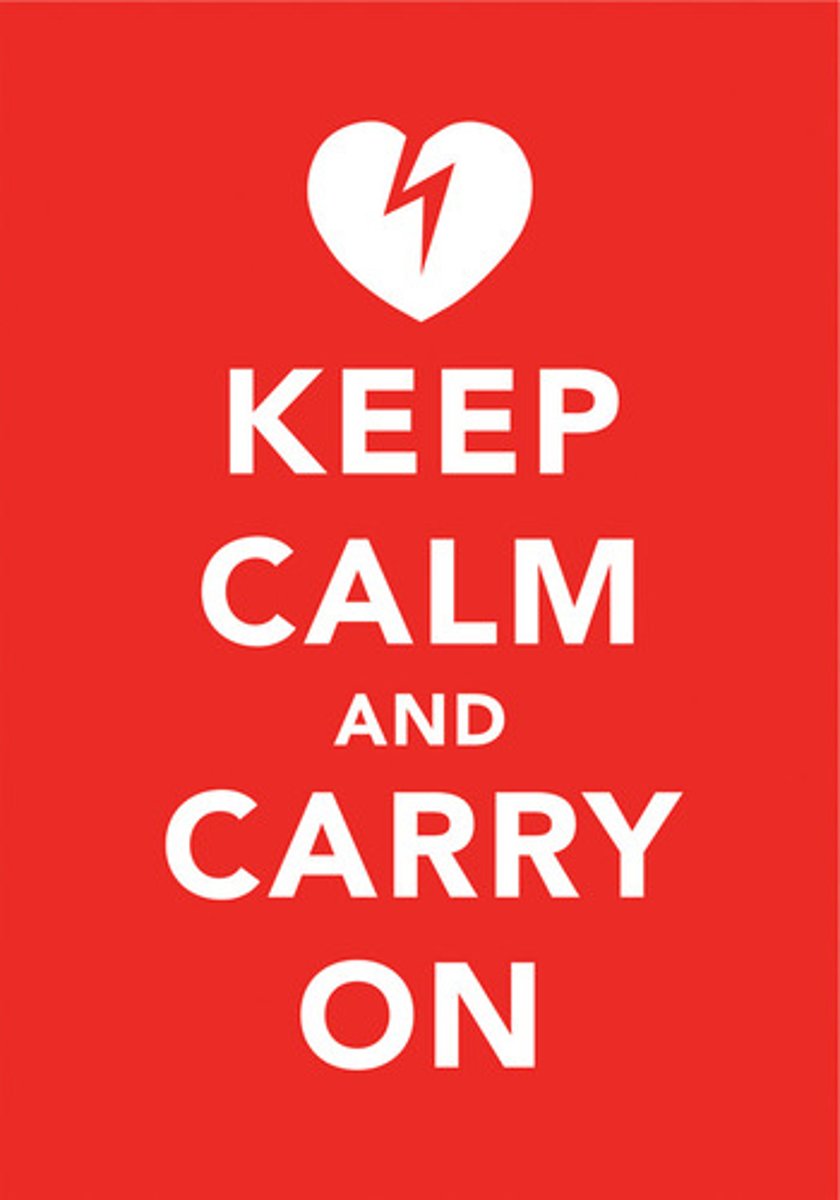
Alliteration
Repetition of consonant sounds
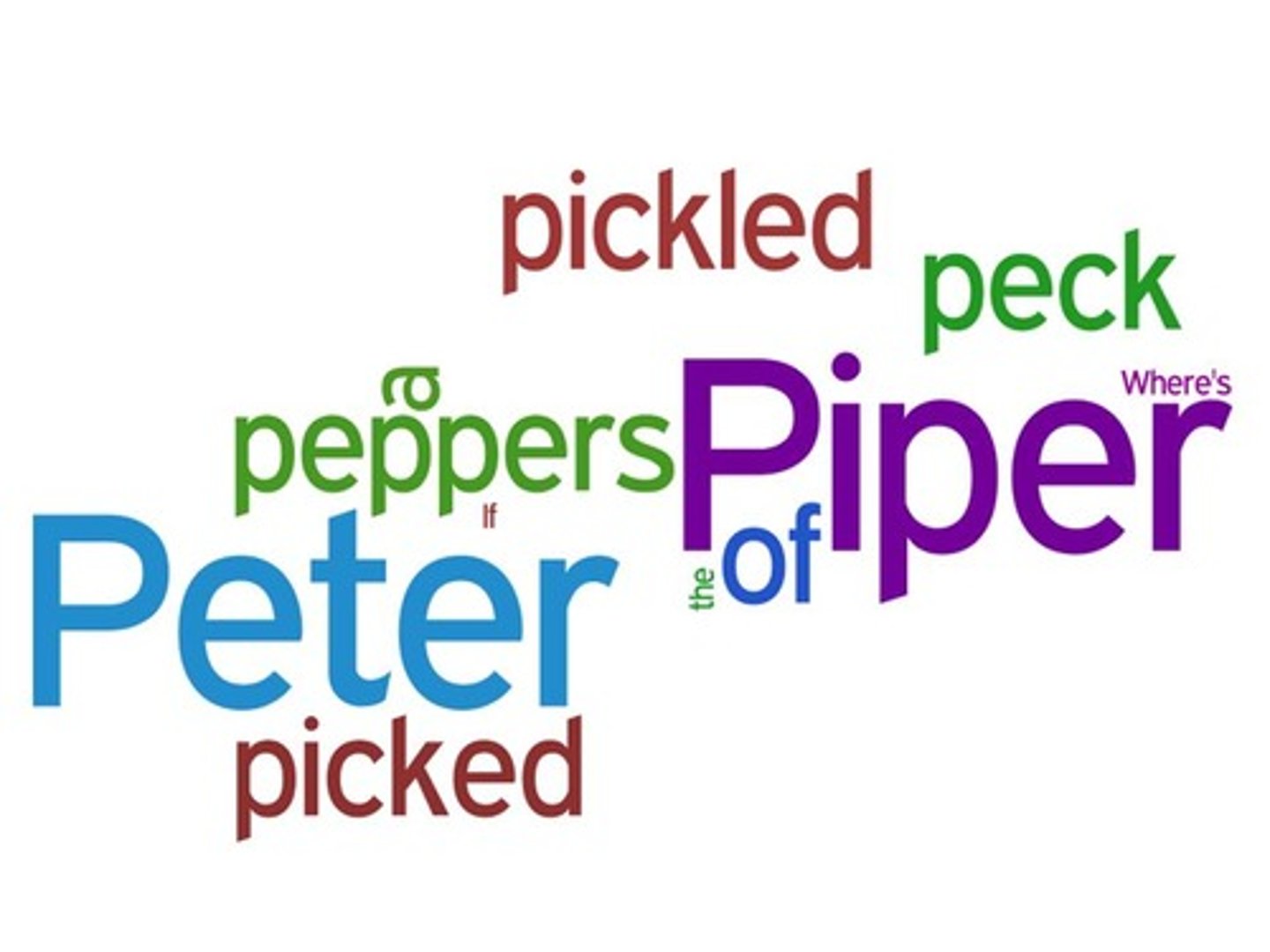
anagram
the rearrangement of the letters in a word or phrase to make another word or phrase
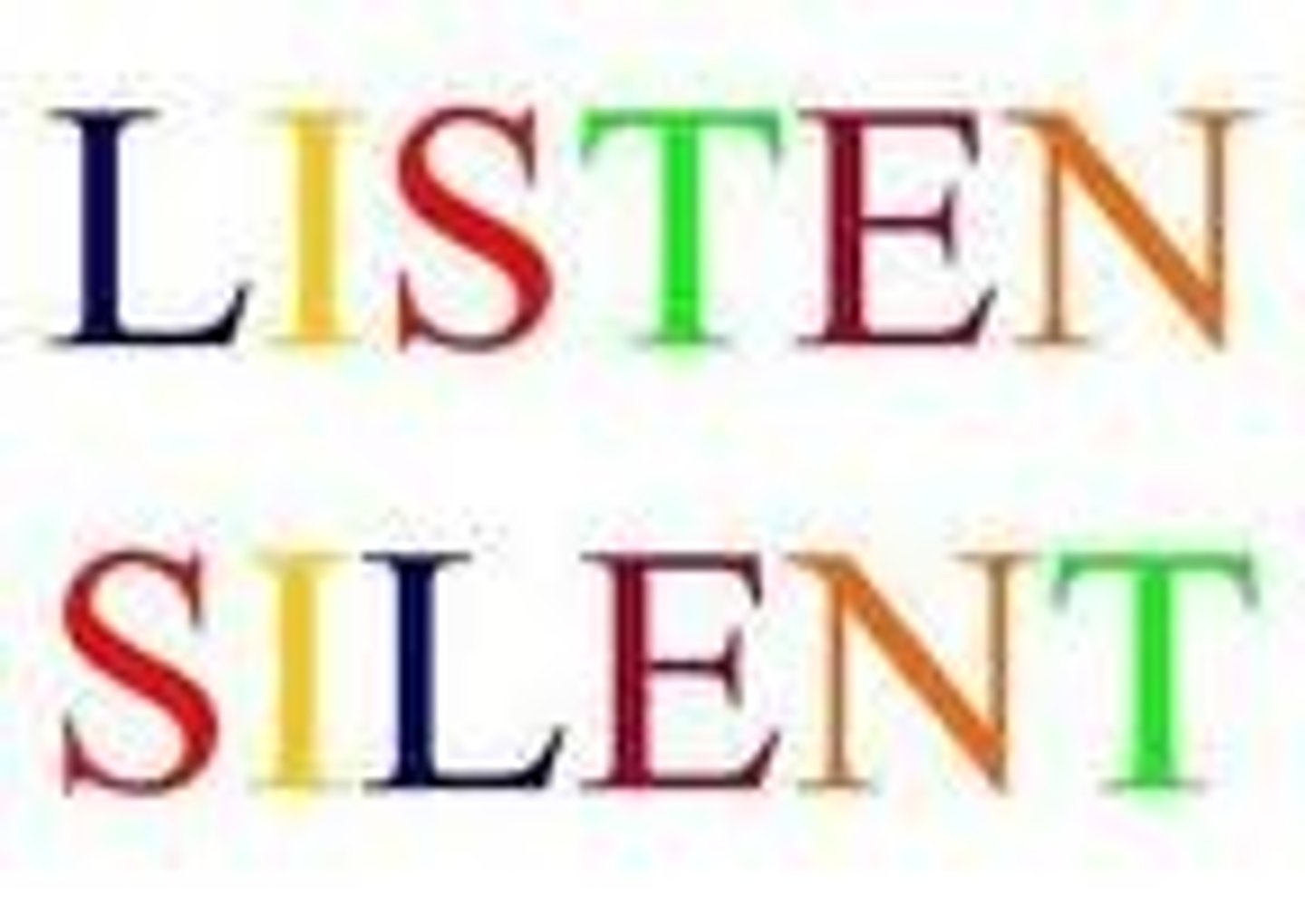
character
A person, animal, or thing that takes part in the action of a literary work

crisis
the internal struggle of the protagonist that serves as a catalyst to determine how the conflict will be resolved often serves
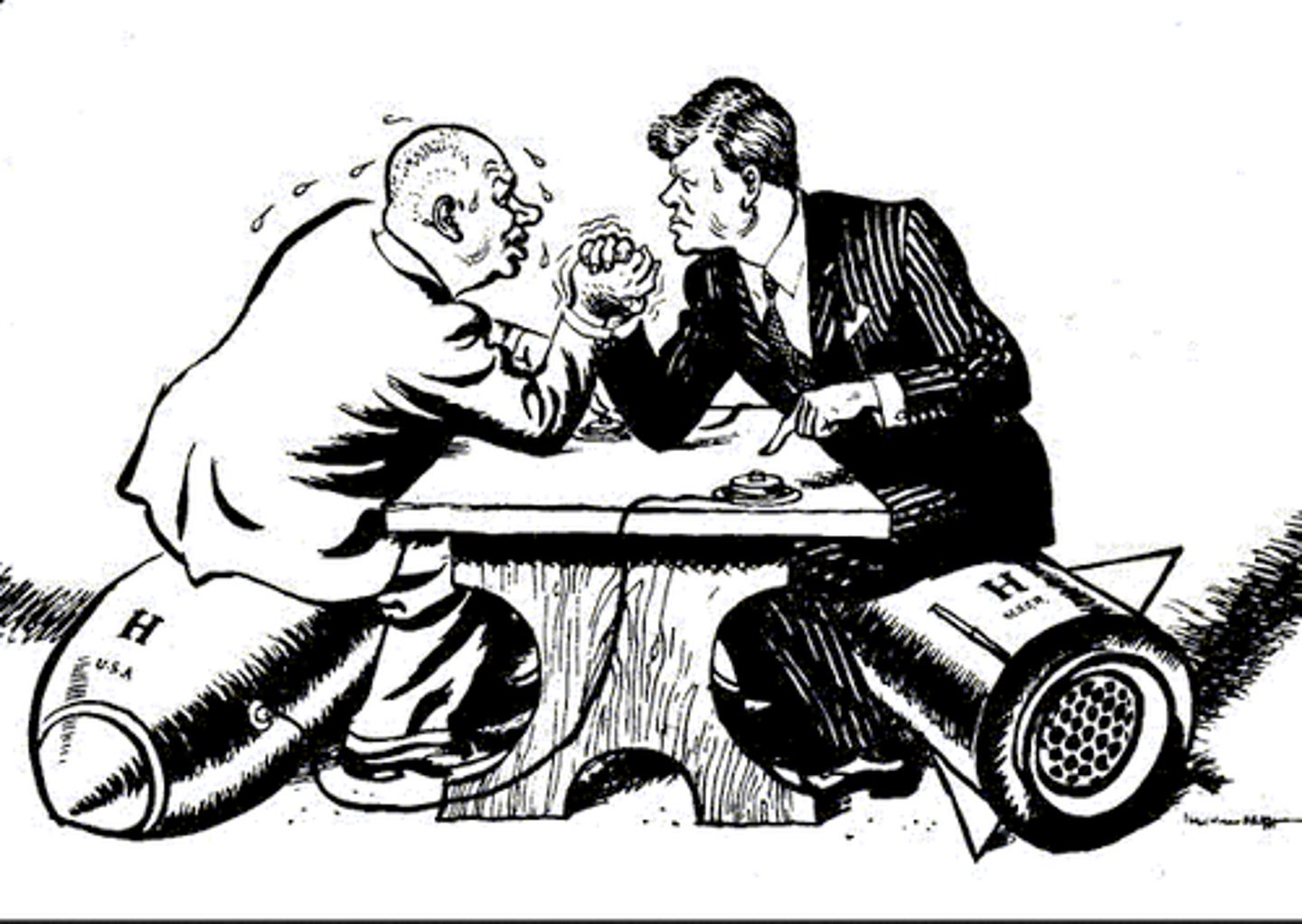
denotation
a word's dictionary definition
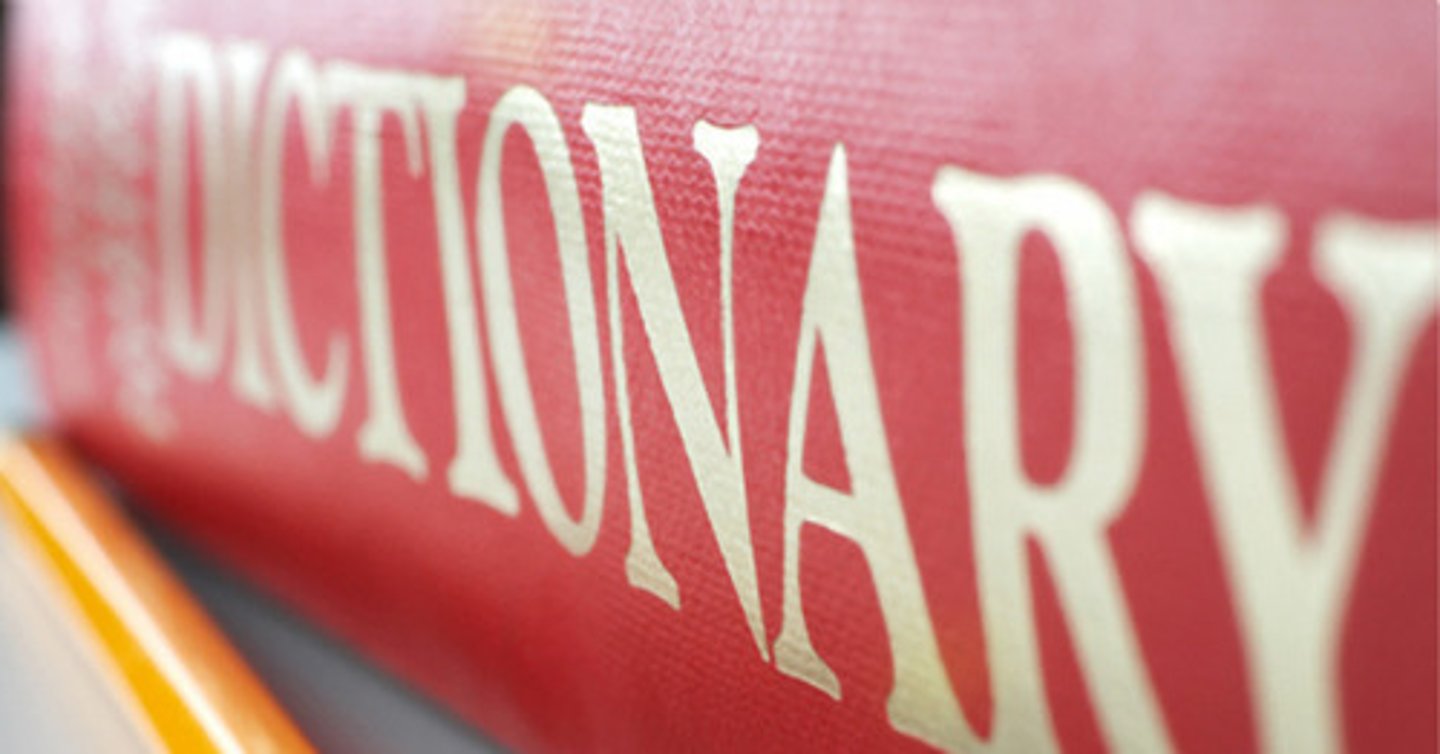
devil's advocate
one who expresses contentious opinion in order to provoke debate or test the strength of the opposing arguments
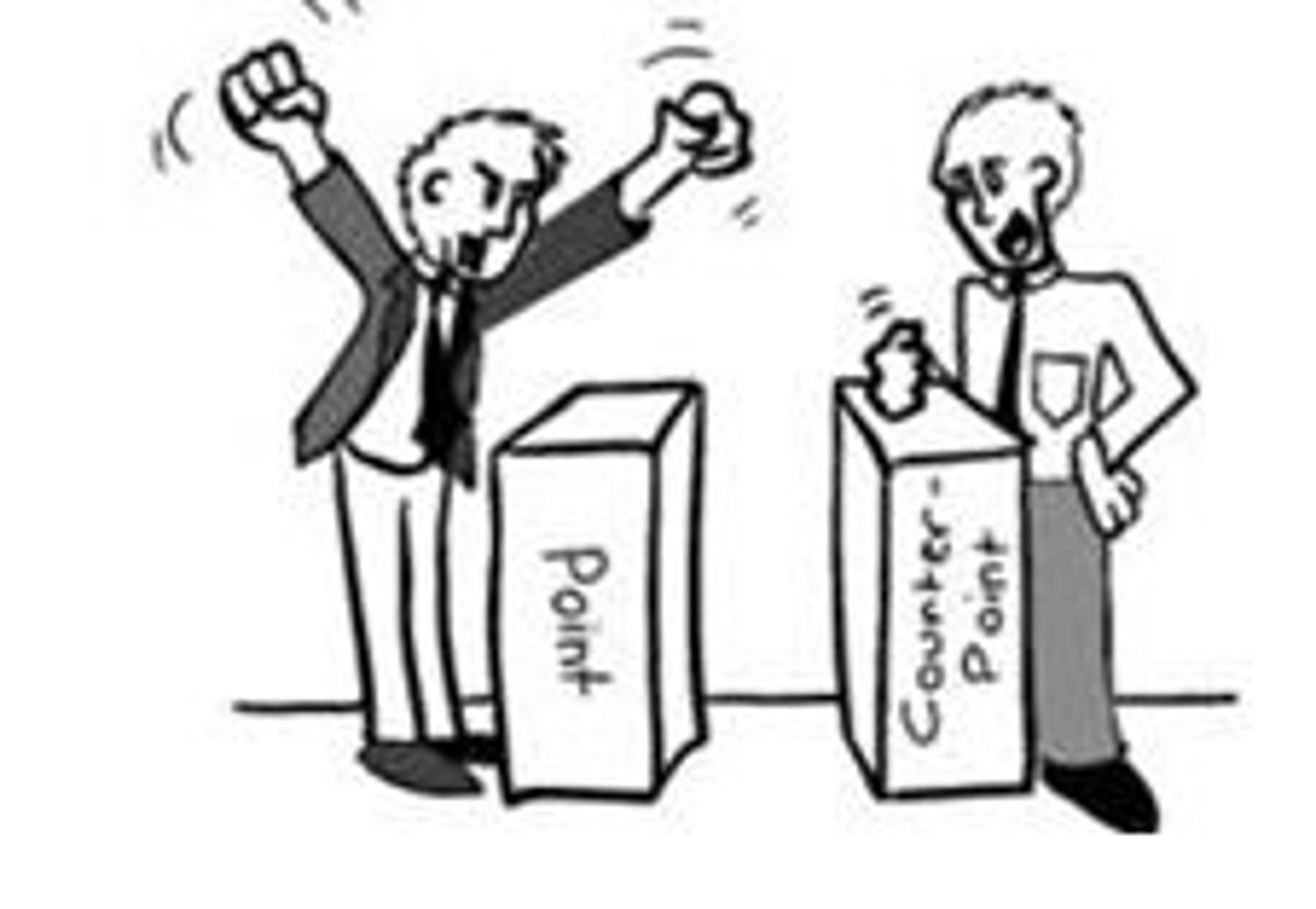
falling action
action that takes place after the climax
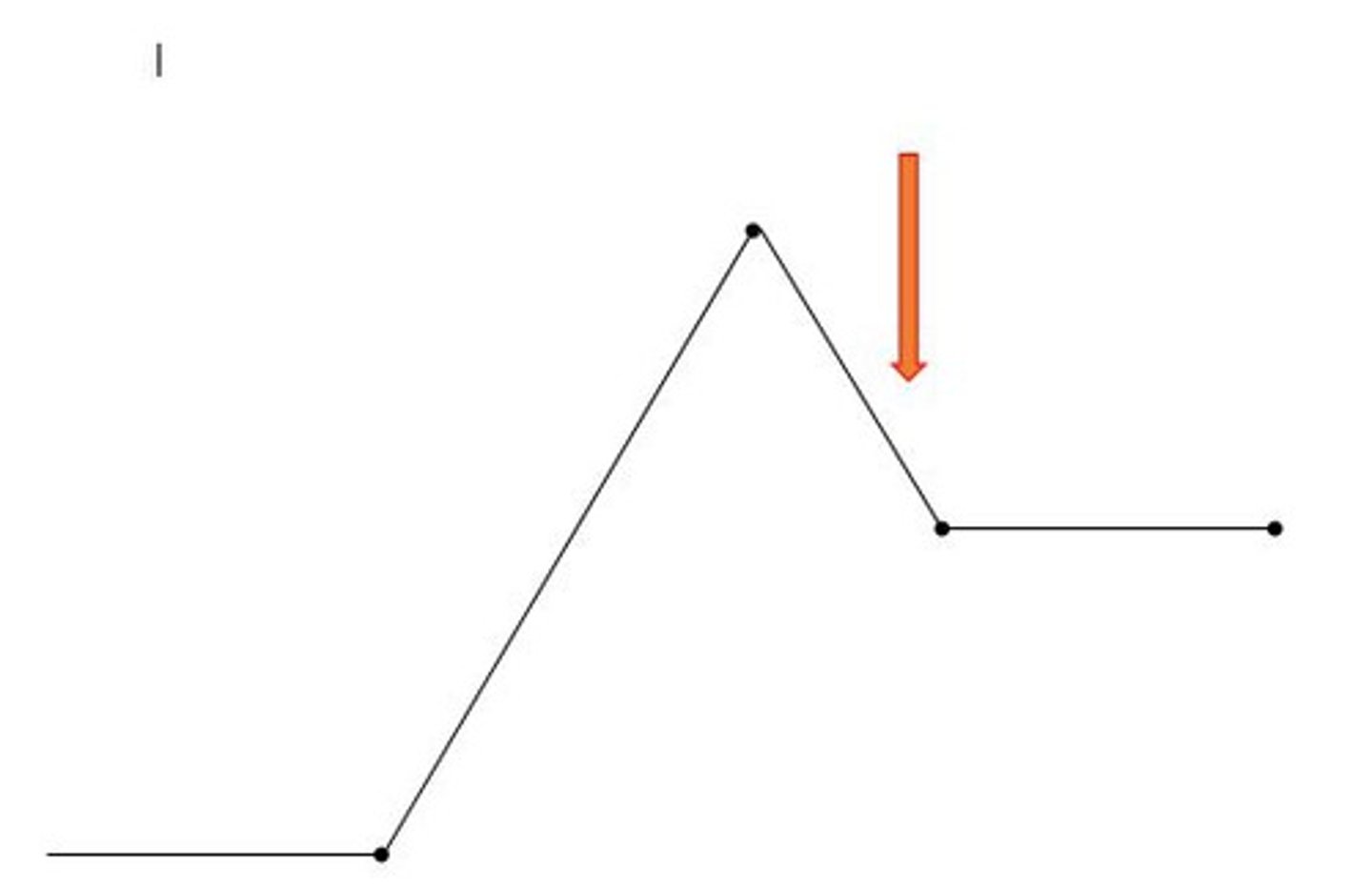
genre
distinct types or categories into which literary works are grouped
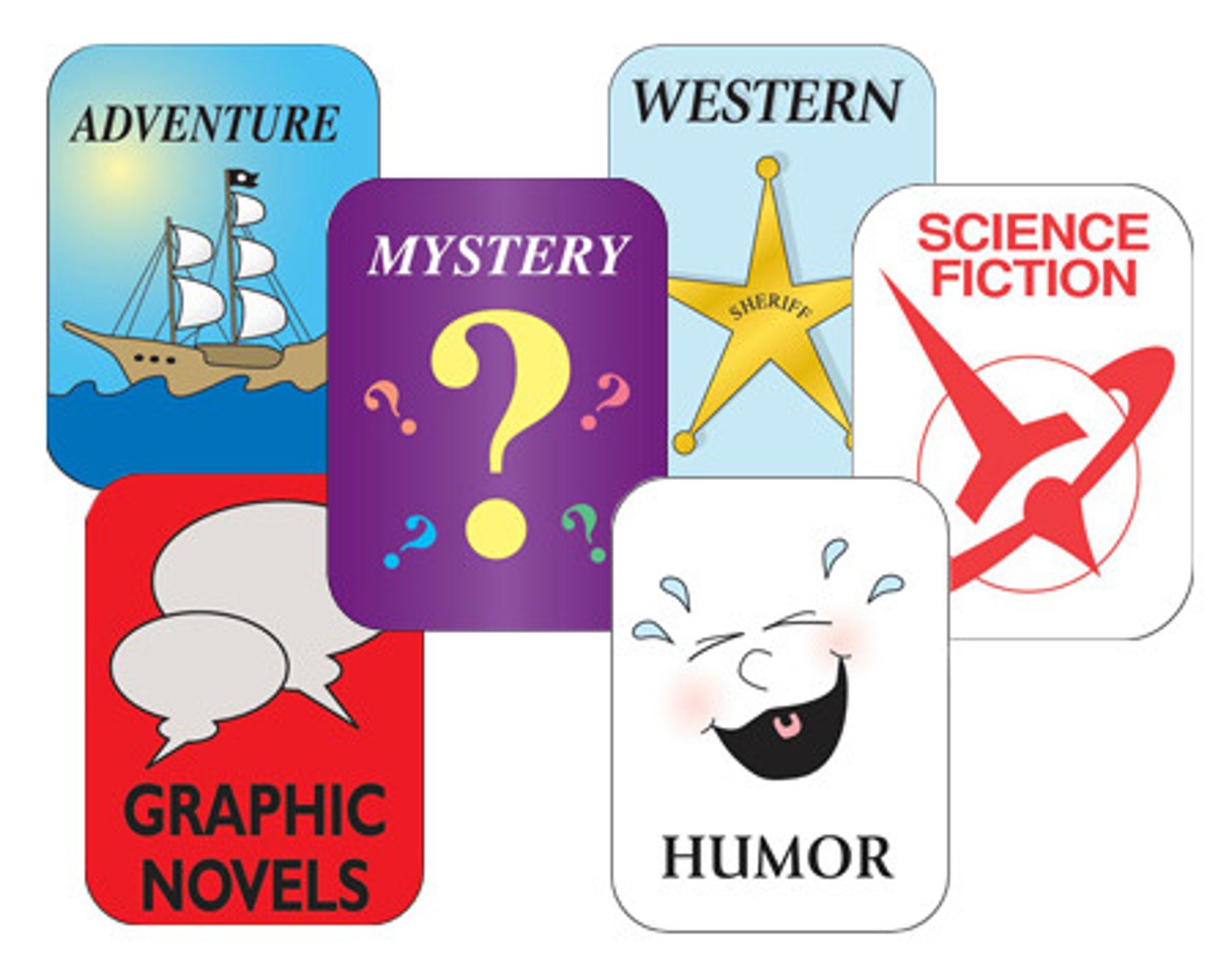
imperative
mood that expresses a command or request
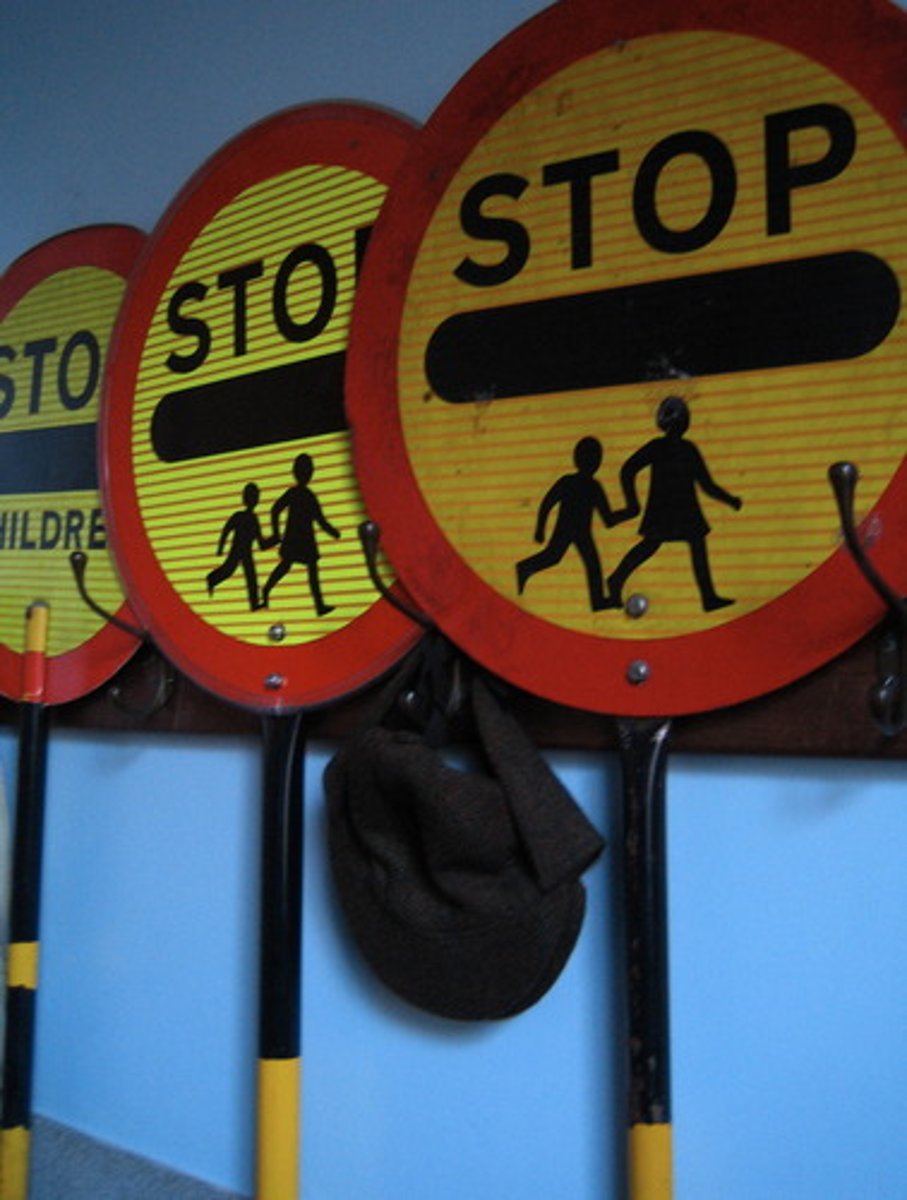
invective
intensely vehement, highly emotional verbal attack
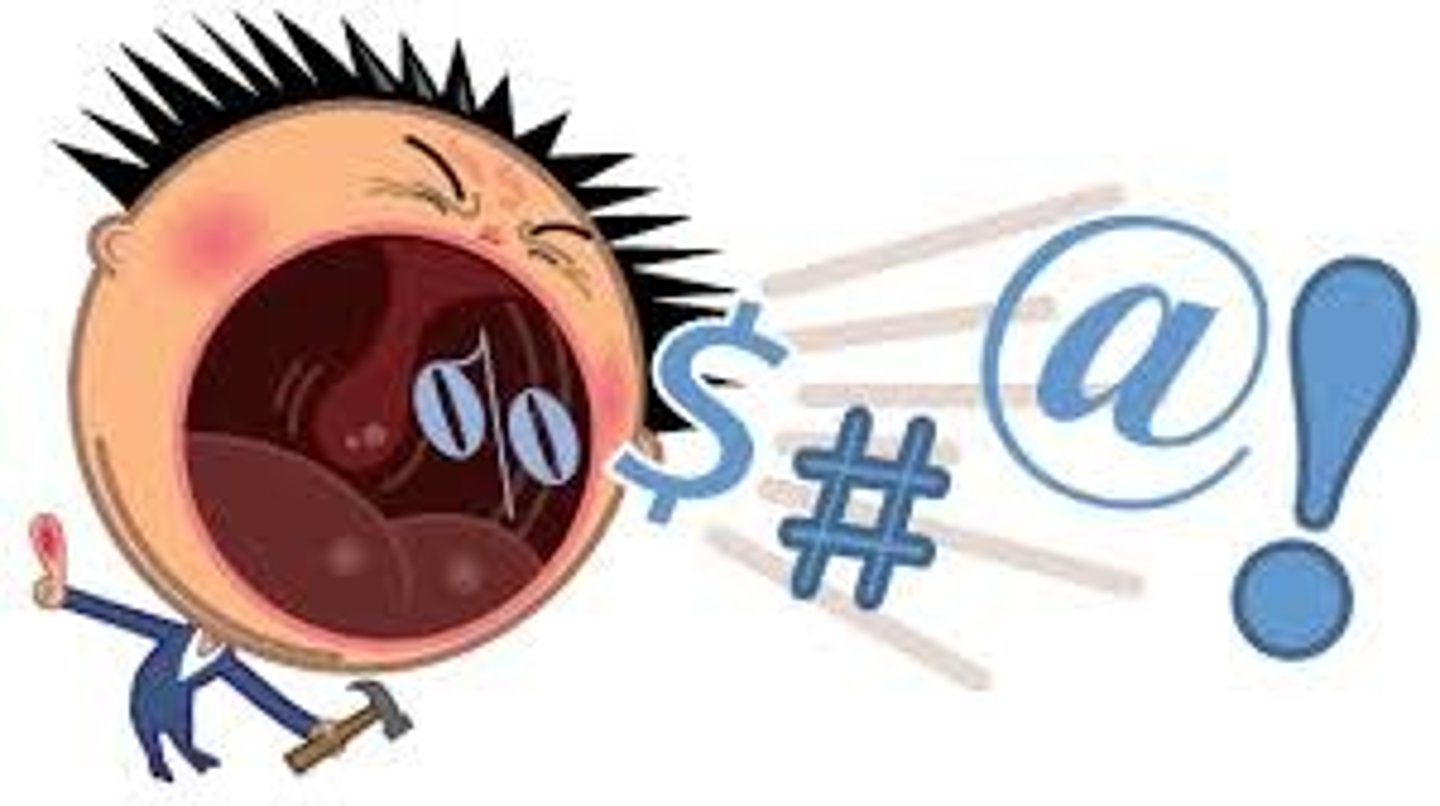
motivation
a reason that explains or partially explains a character's thoughts, feelings, actions or speech
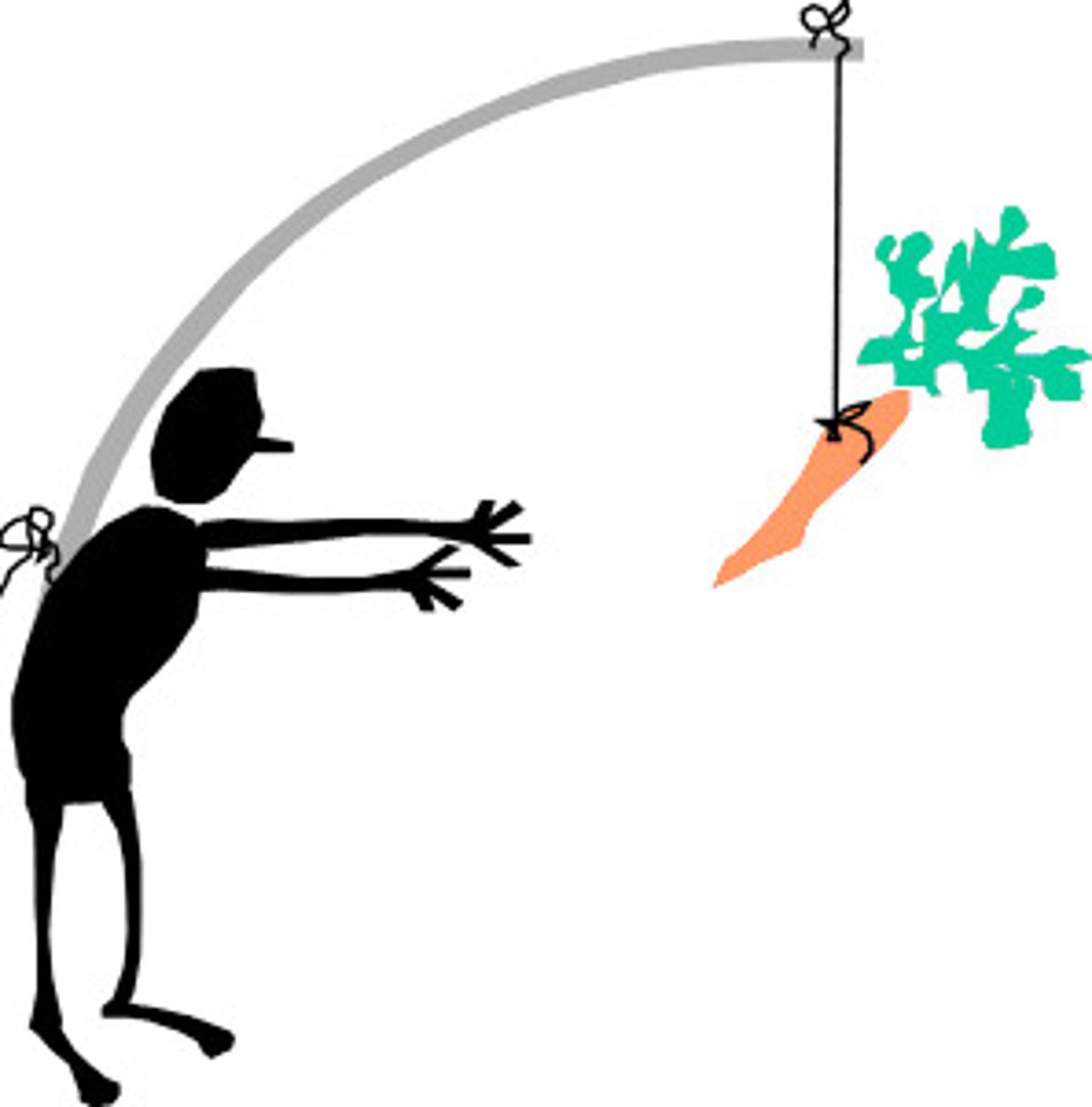
paradox
a statement that seems to be contradictory but actually reveals some element of truth
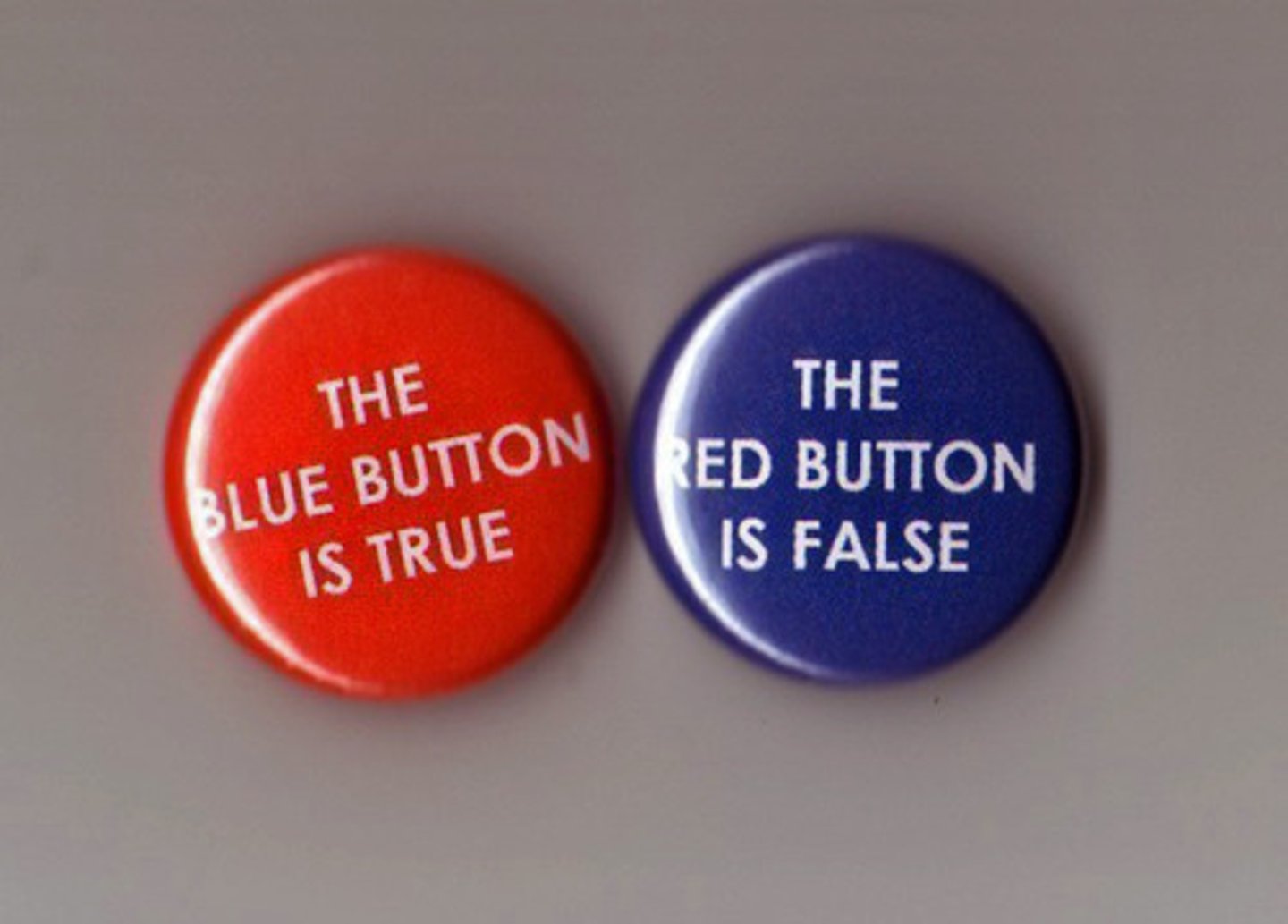
refrain
a regularly repeated line or group of lines in a poem or song
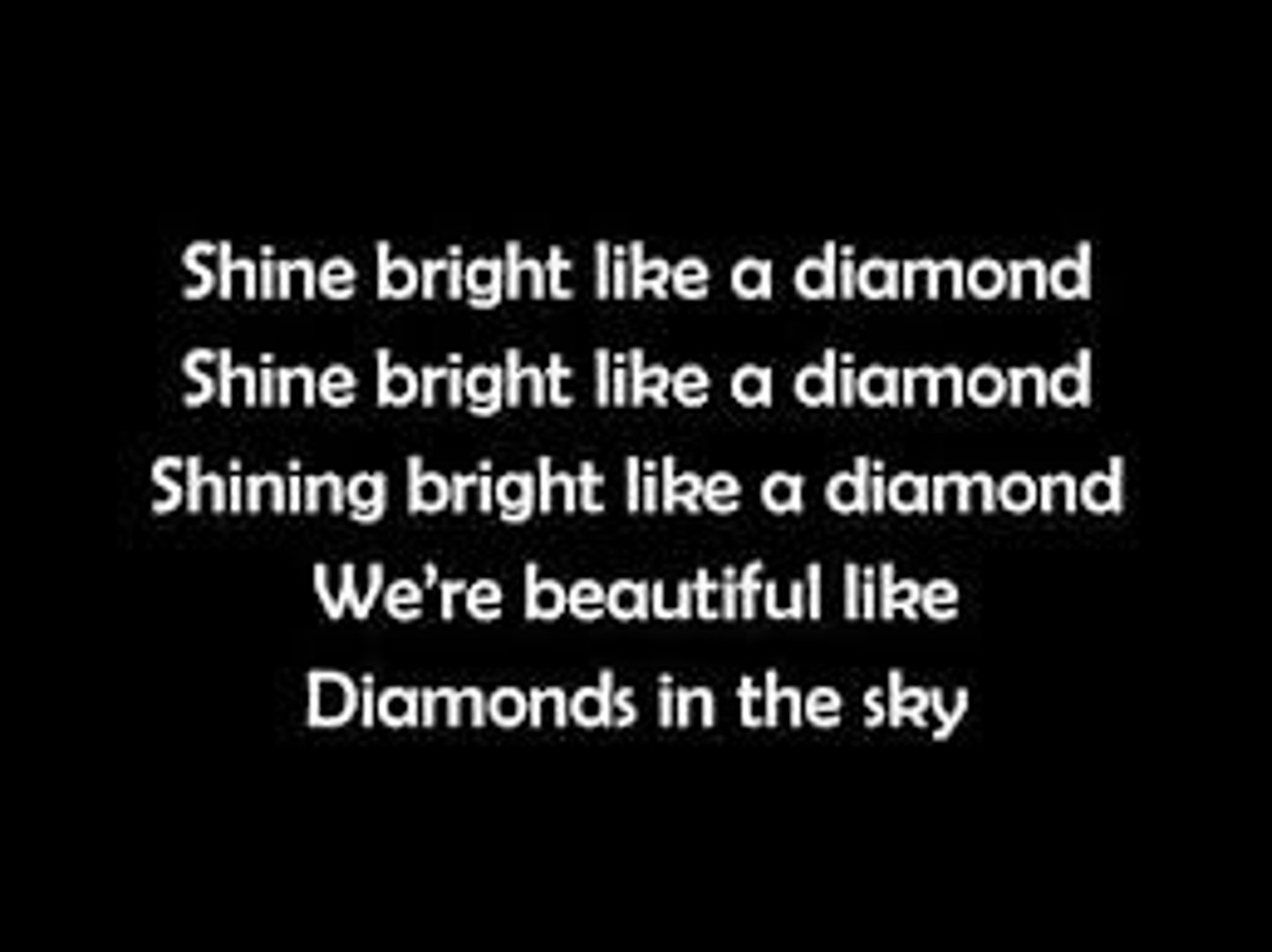
satire
writing that ridicules or holds up for contempt the faults of individuals or groups in order to improve them
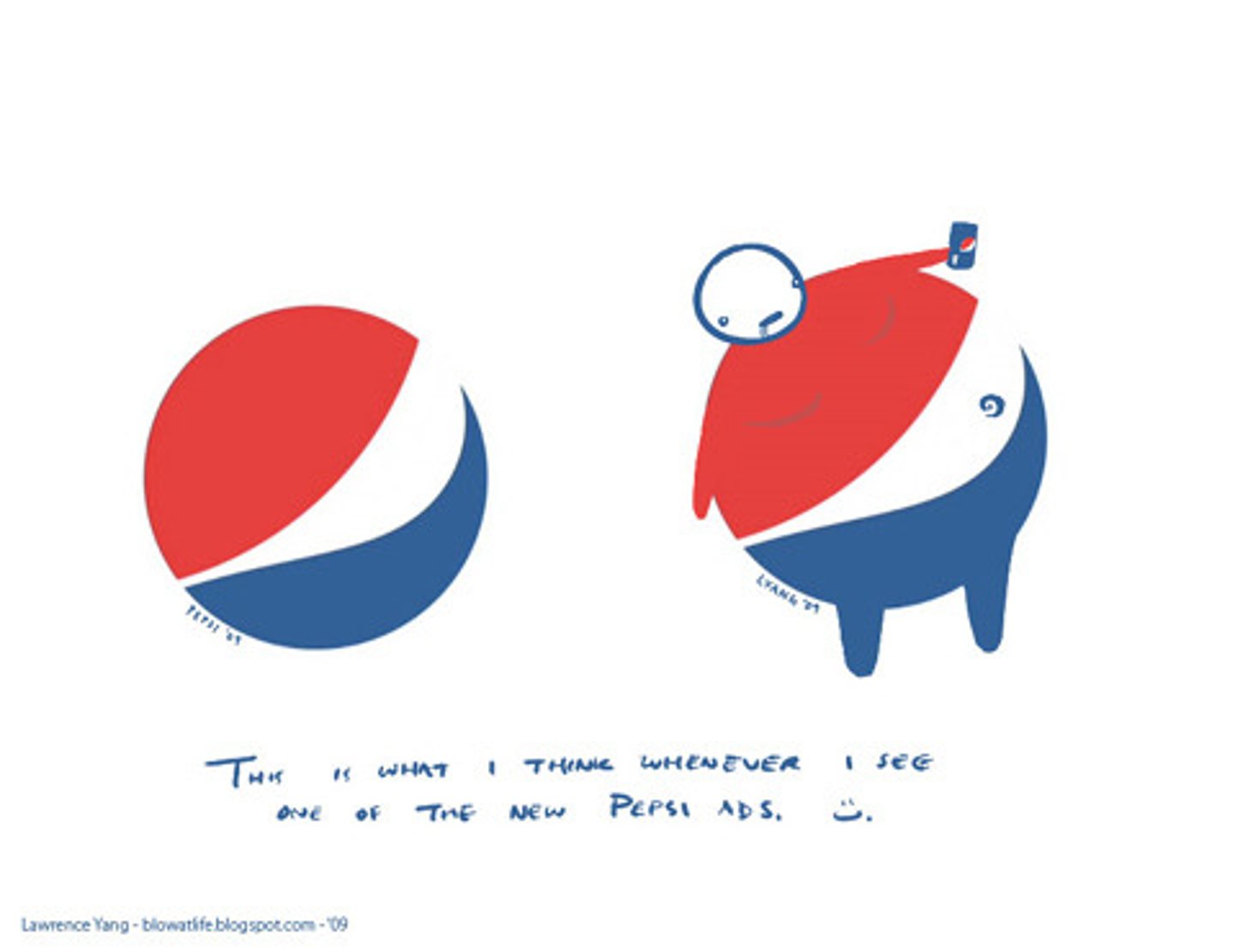
tragic hero
a literary character who makes a judgment error that inevitably leads to his/her own destruction

allegory
a literary work with two or more levels of meaning - literally and symbolic

anadiplosis
repetition where the last word, phrase, or clause of a line is repeated at the beginning of the next line

ballad
A song like poem that tells a story
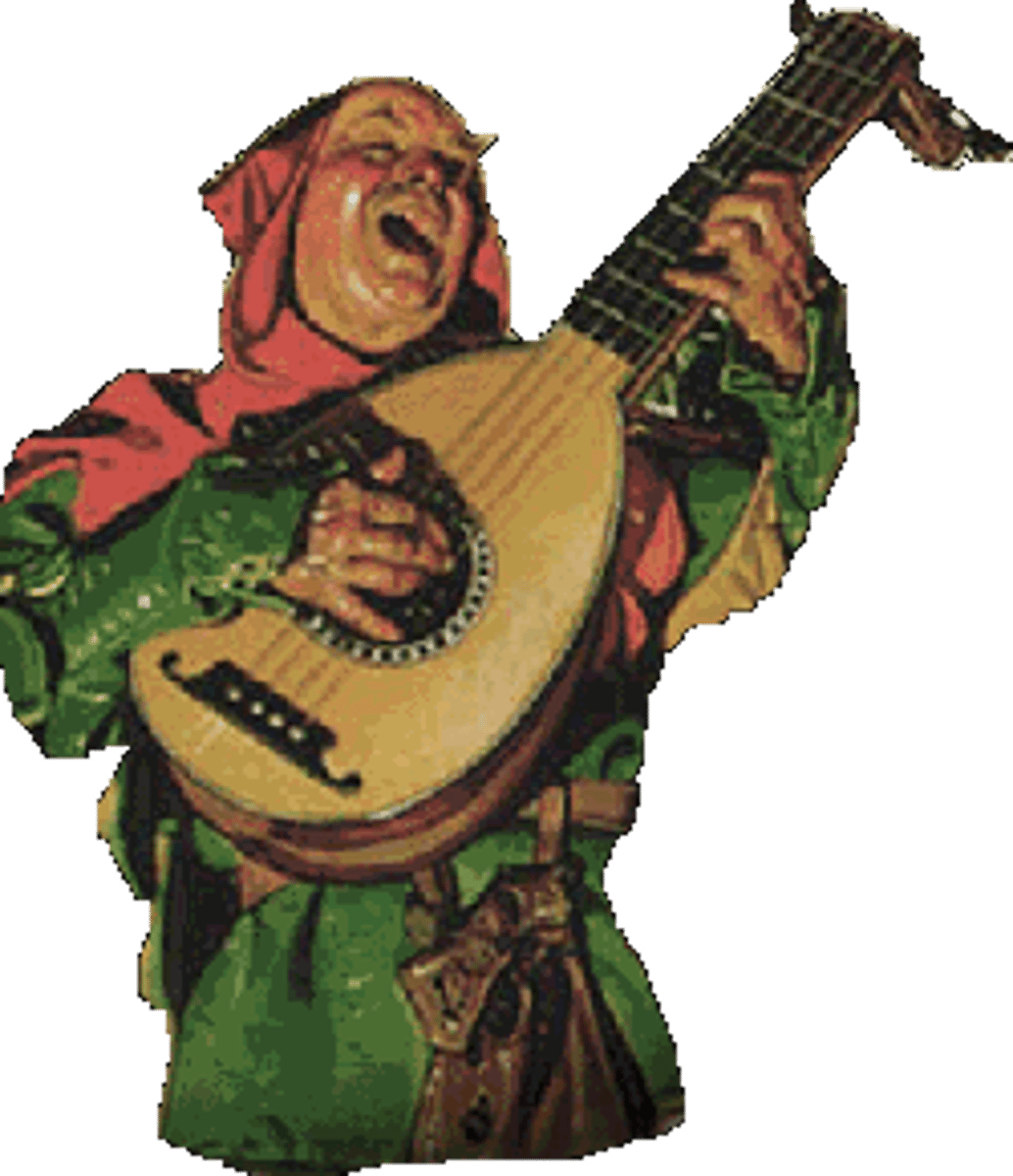
caricature
a distorted or exaggerated portrayal of a person

decorum
deals with the ideal of propriety
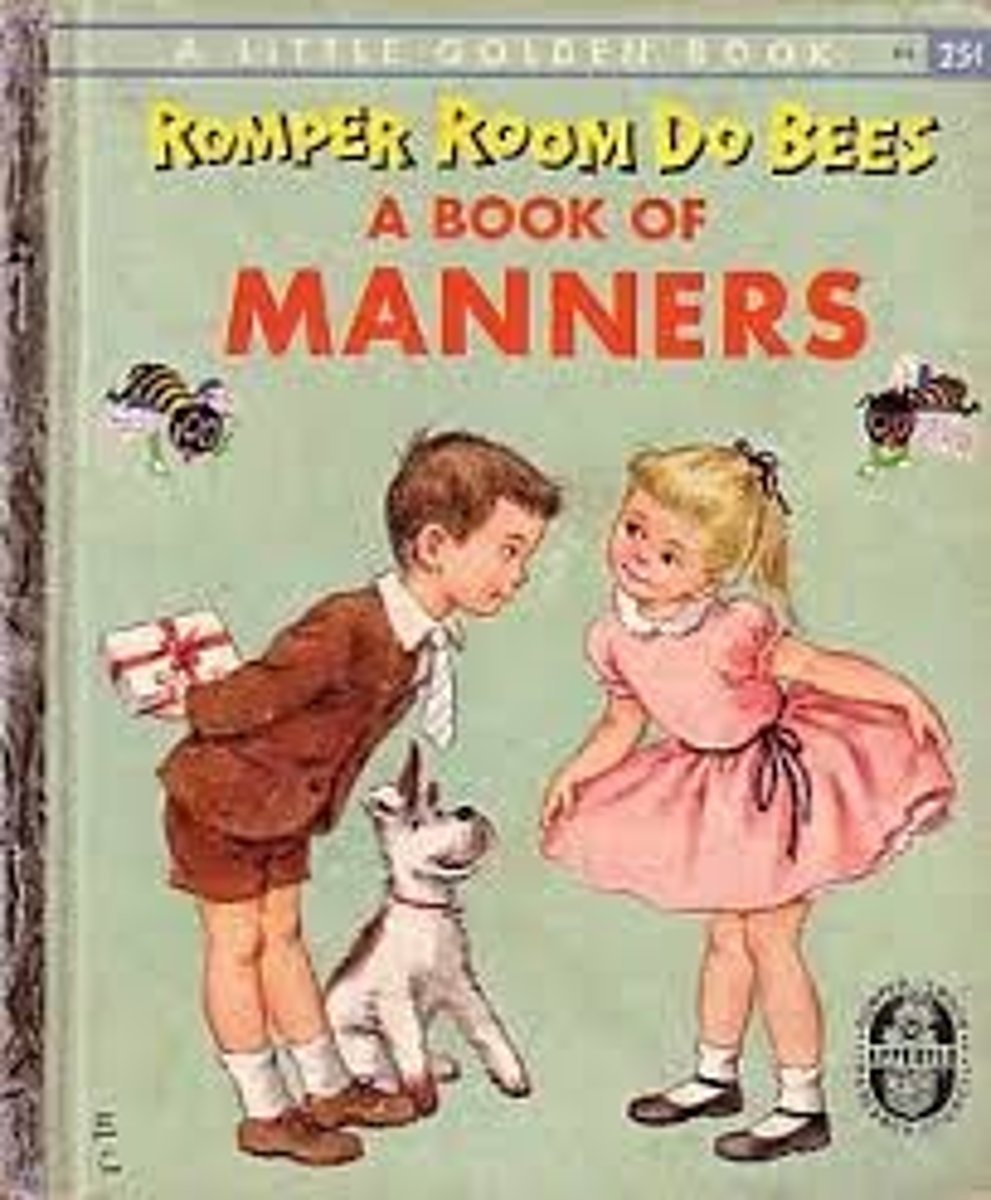
dèjá vu
"already seen"; the experience of thinking that a new situation had happened before

ellipsis
the omission of words or phrases
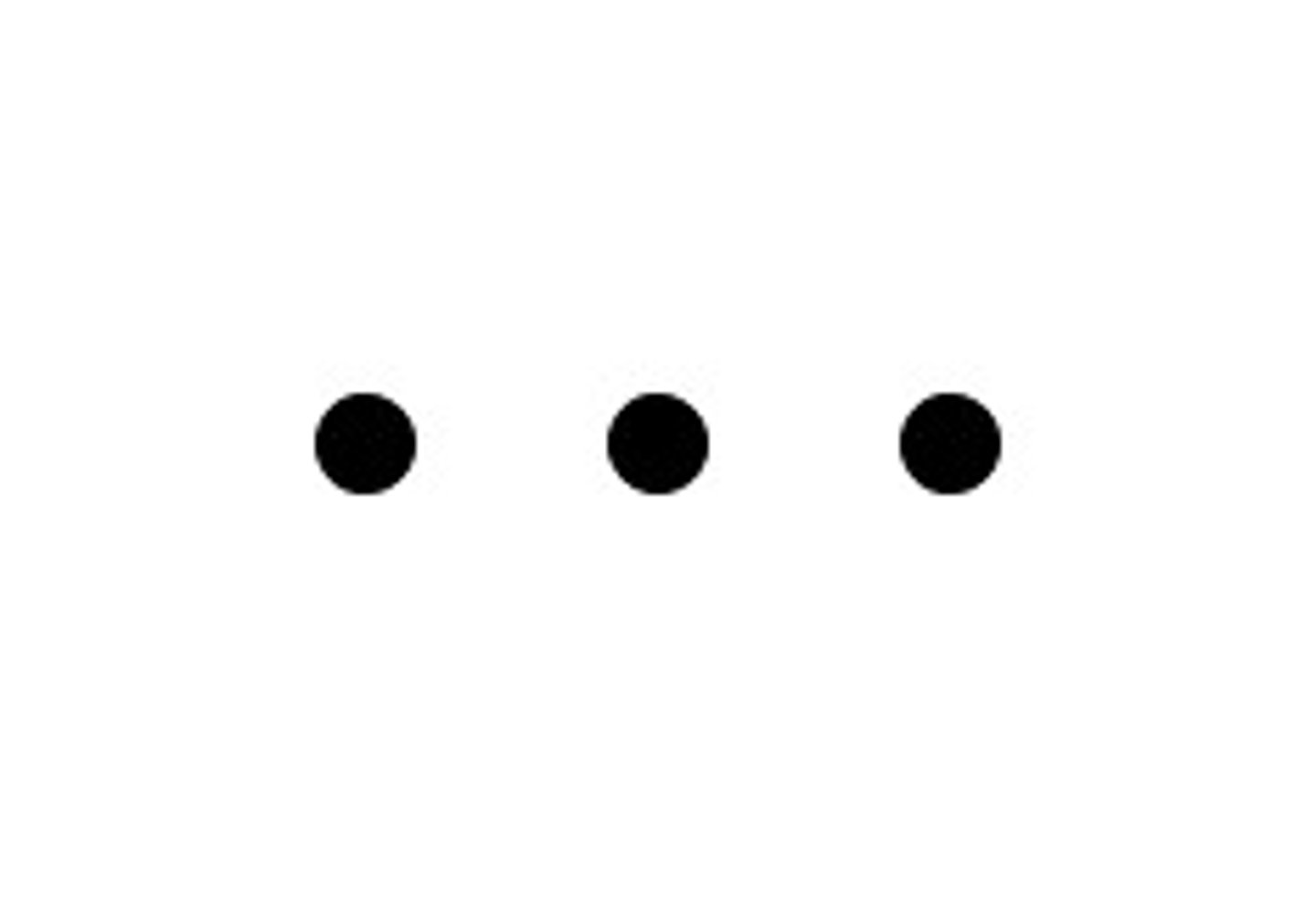
fact
a statement that can be proven true or false by evidence
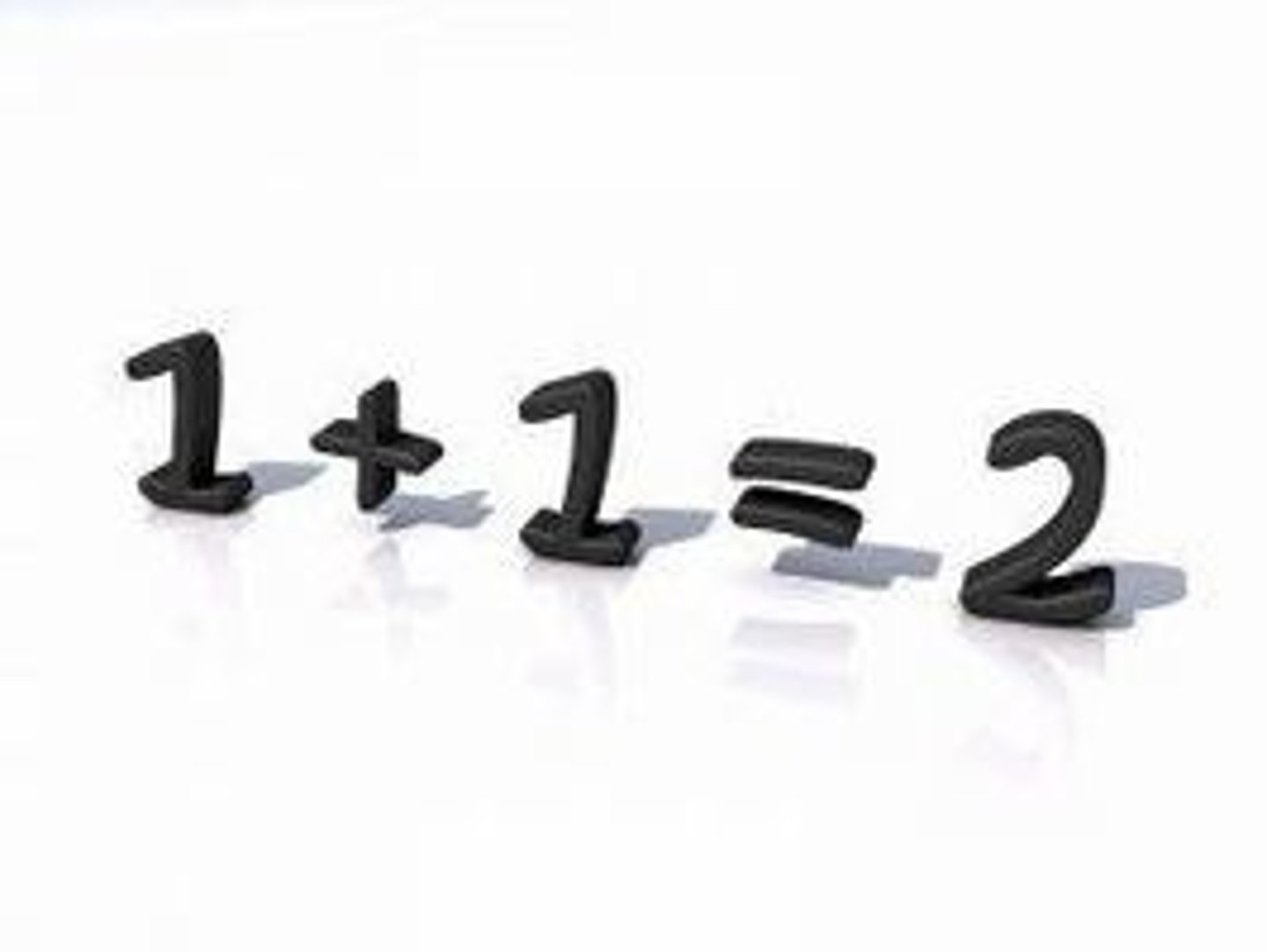
fallacy
an error in reasoning
